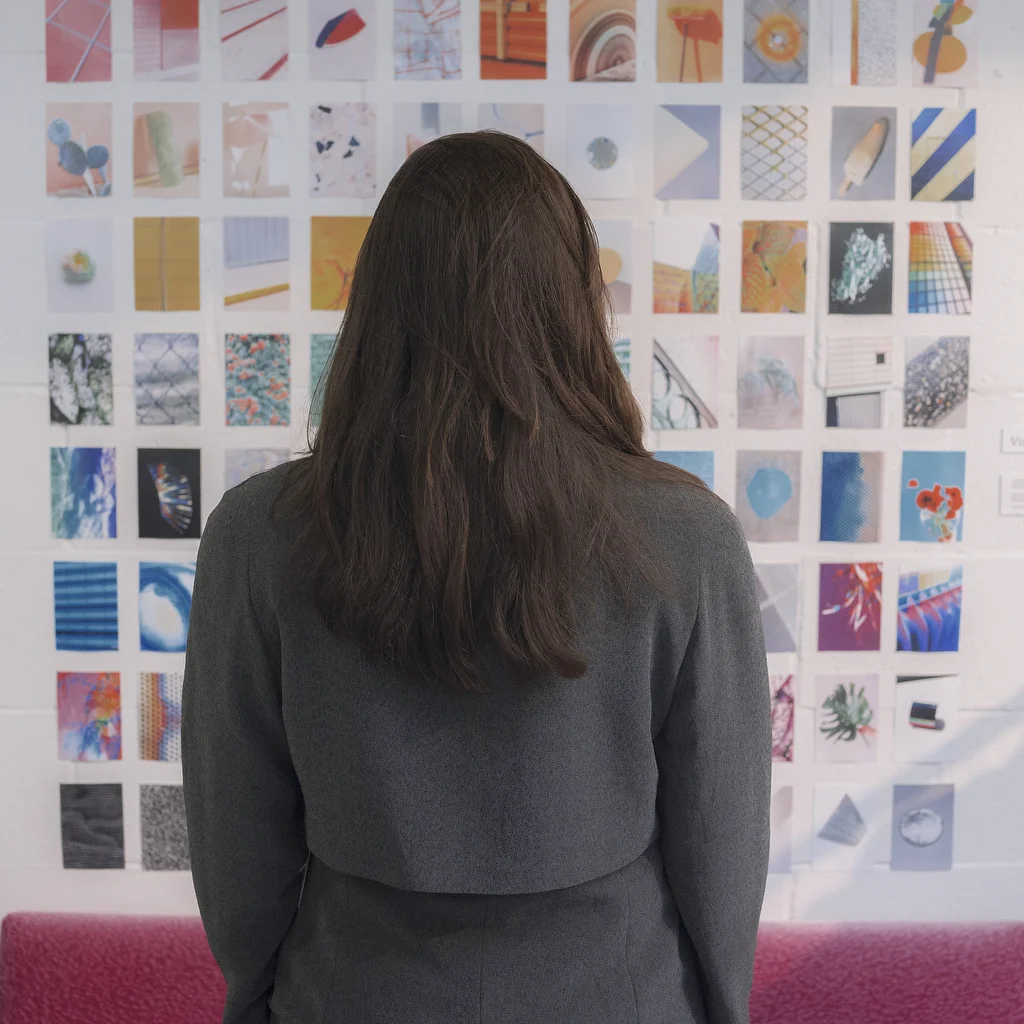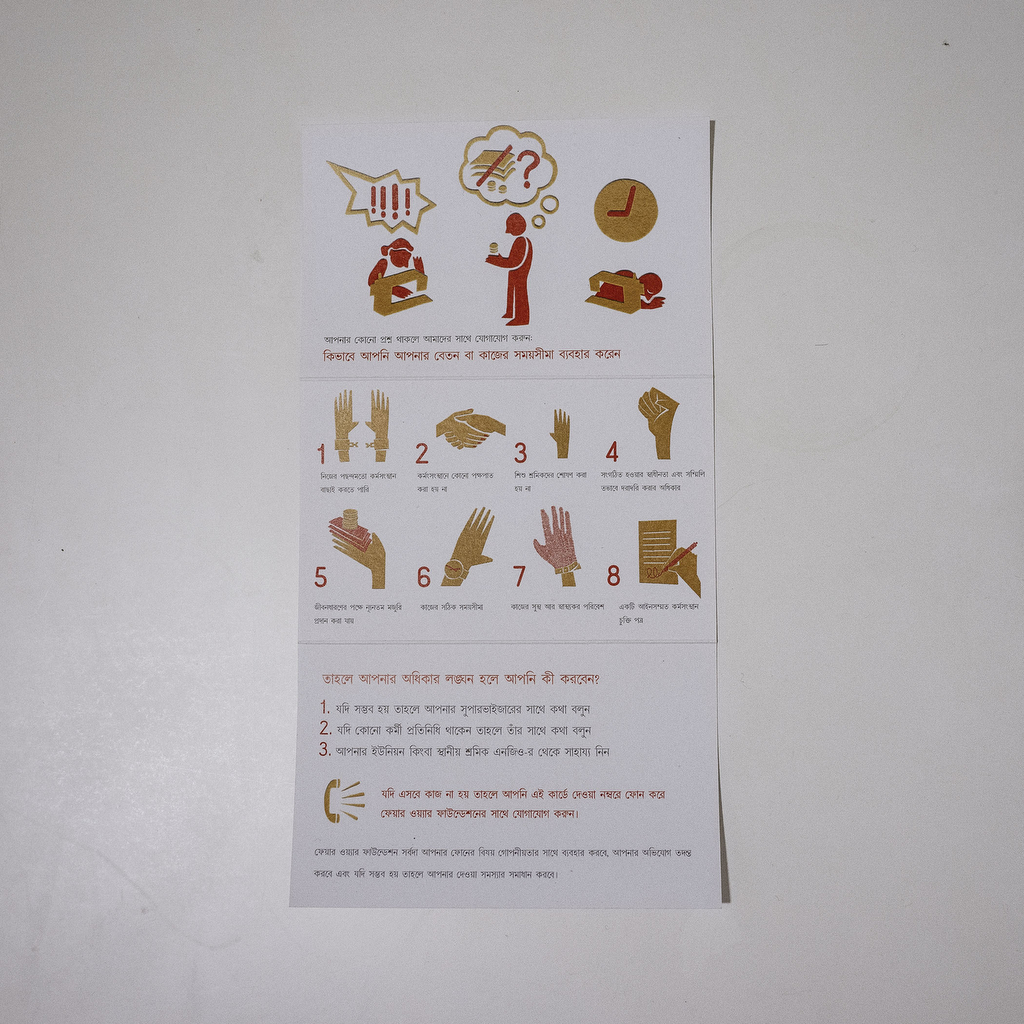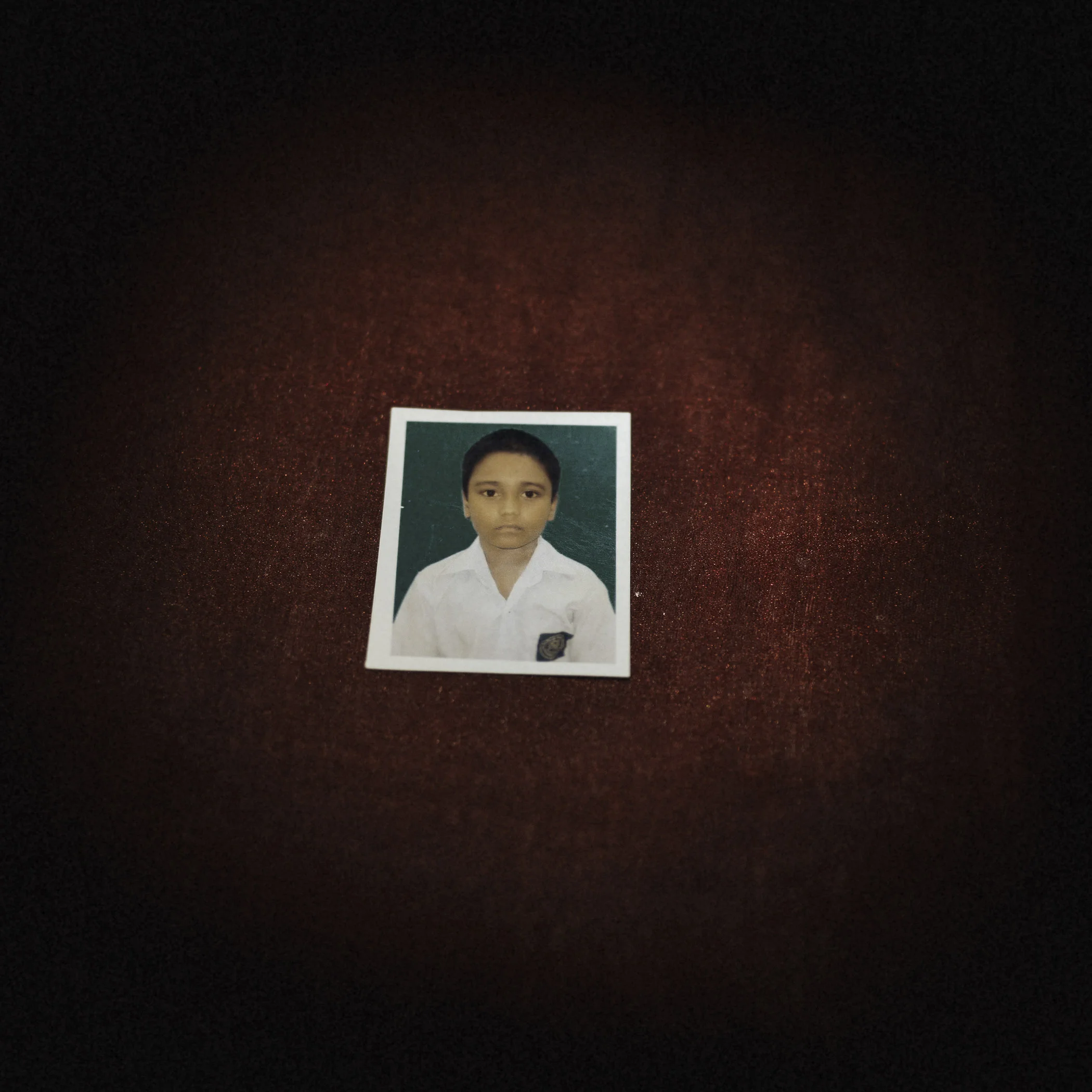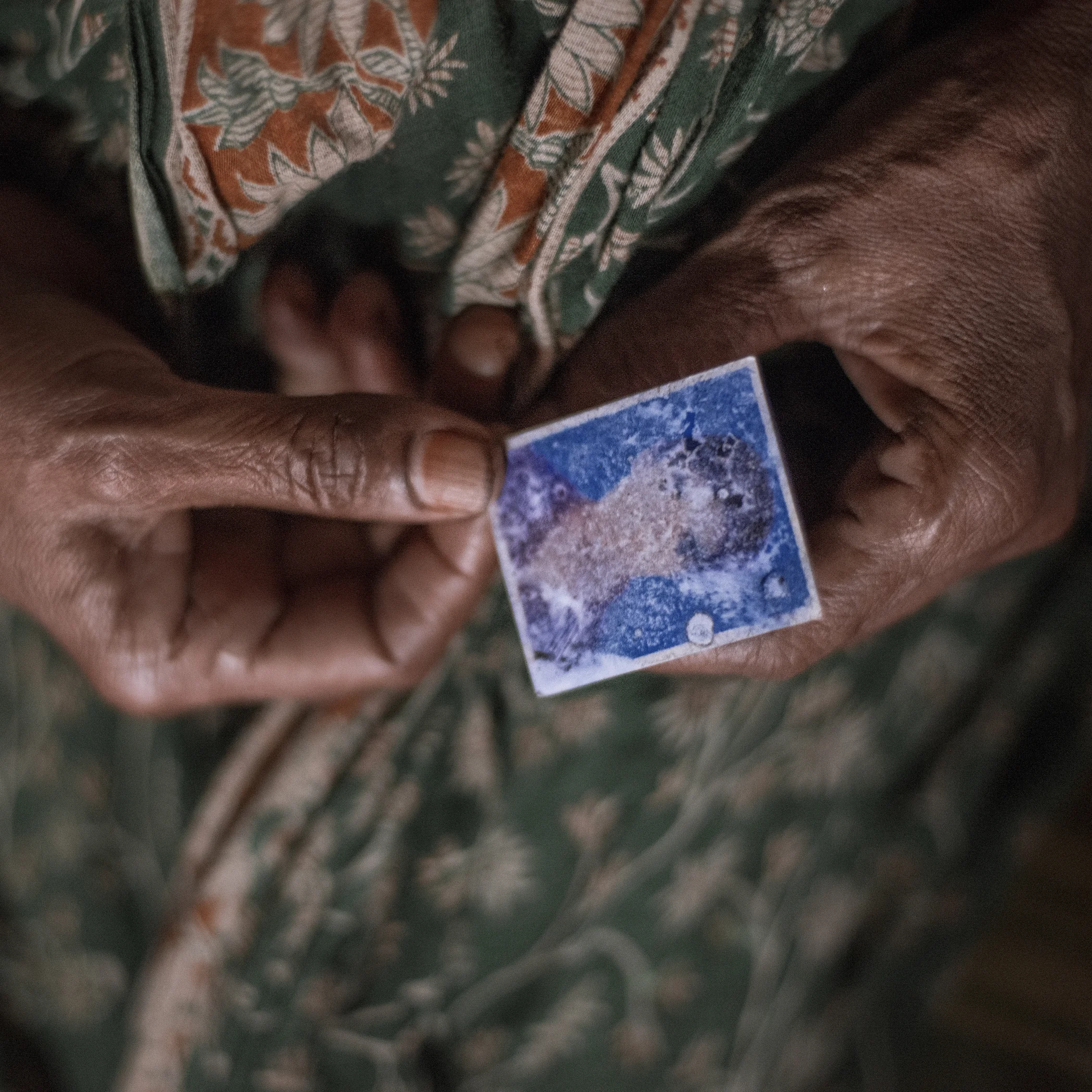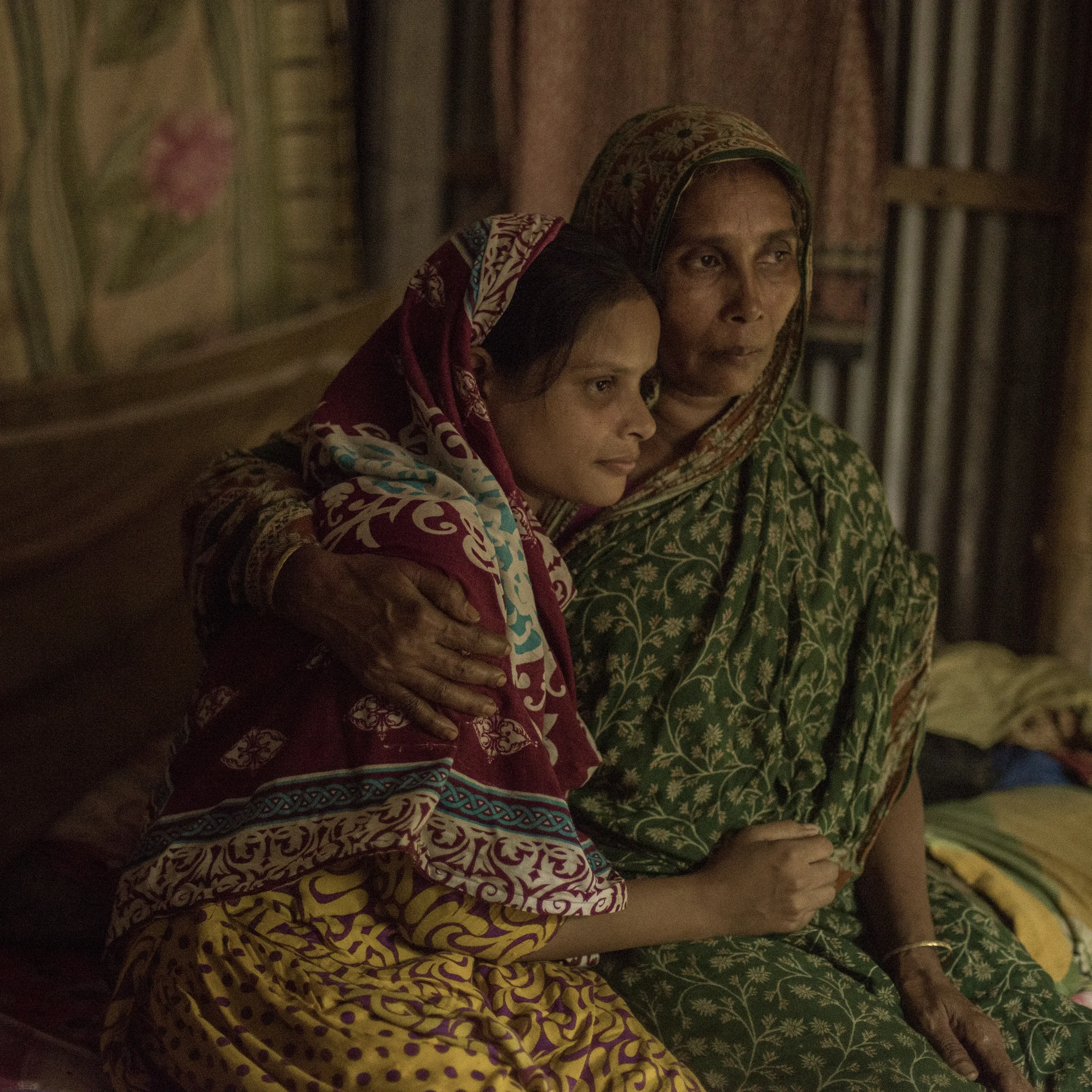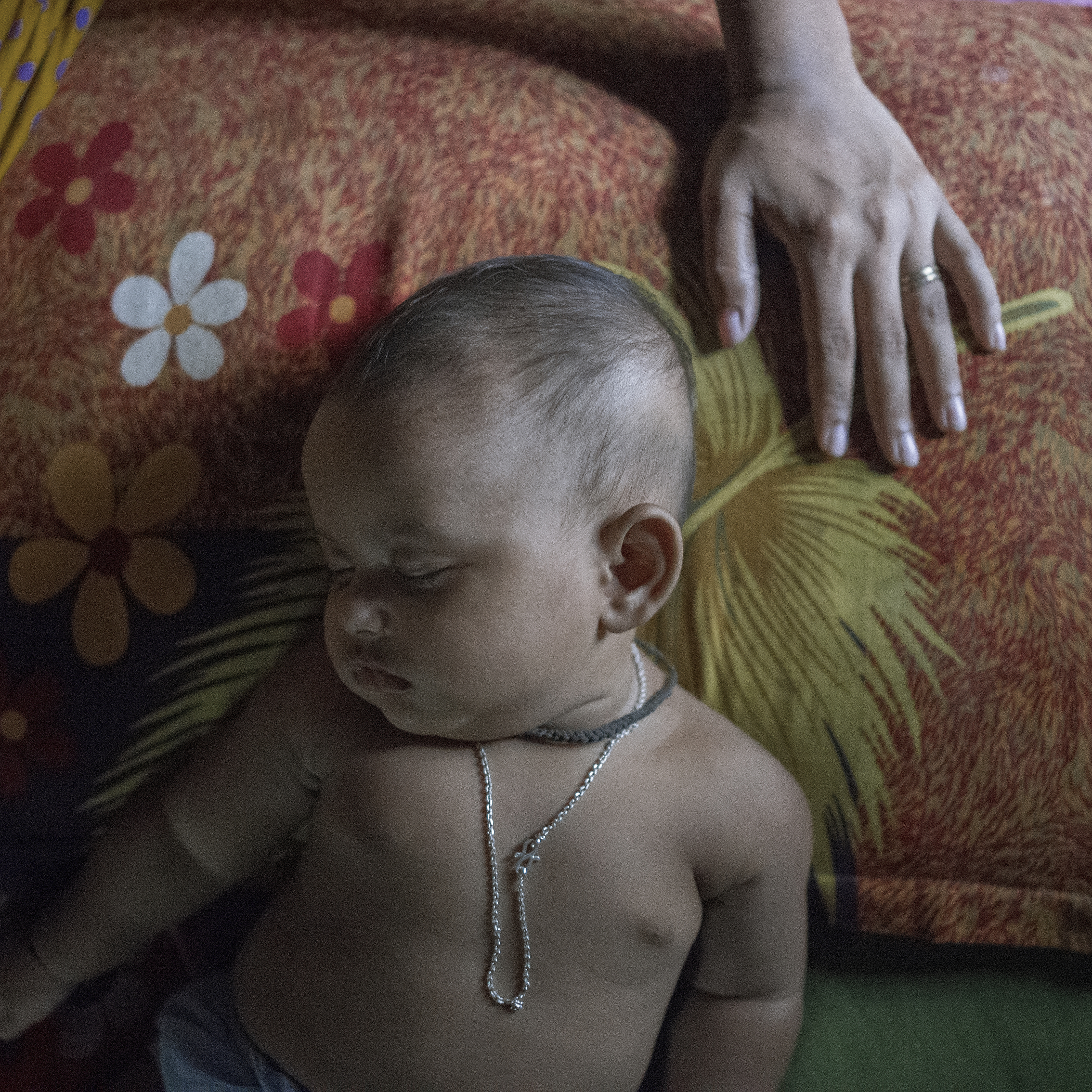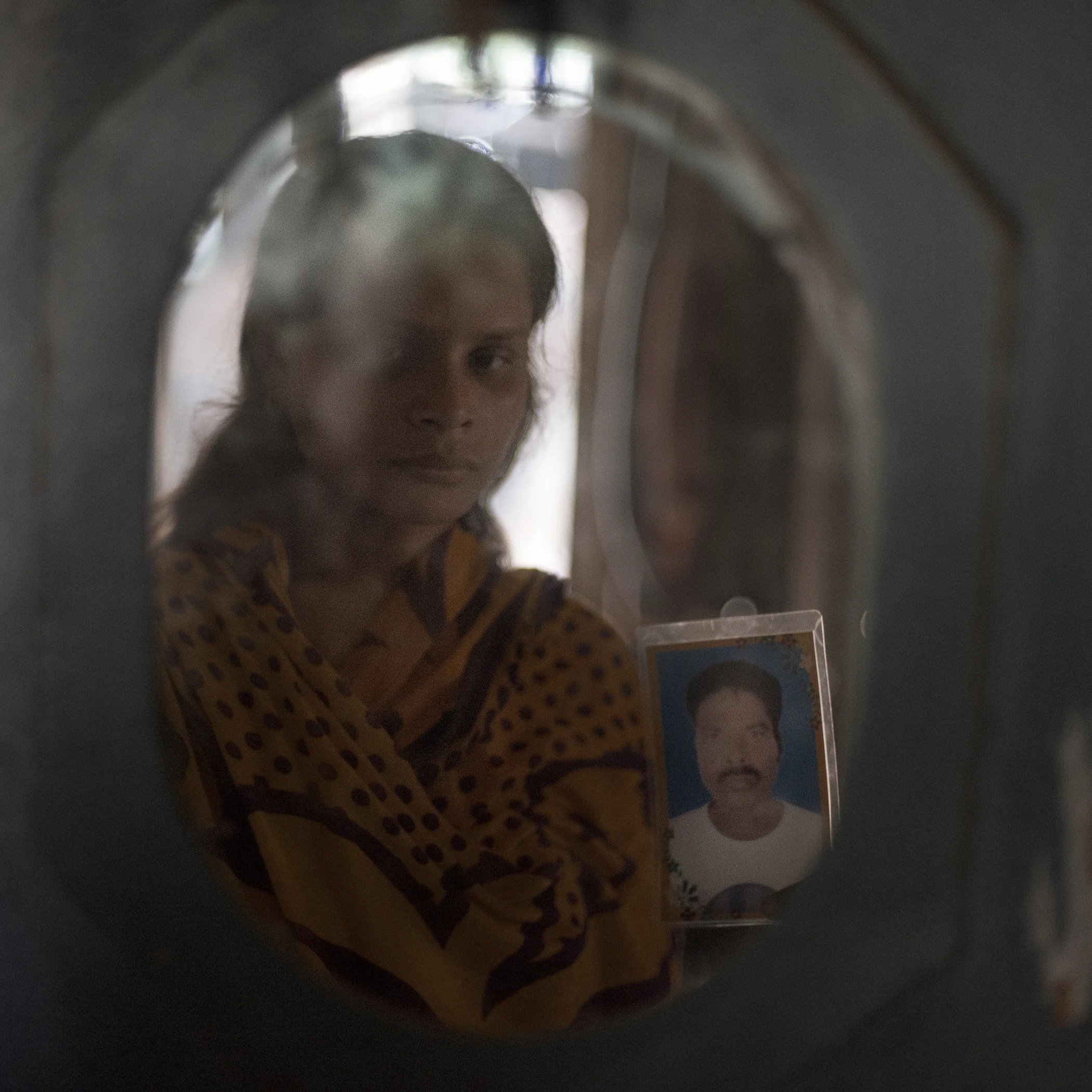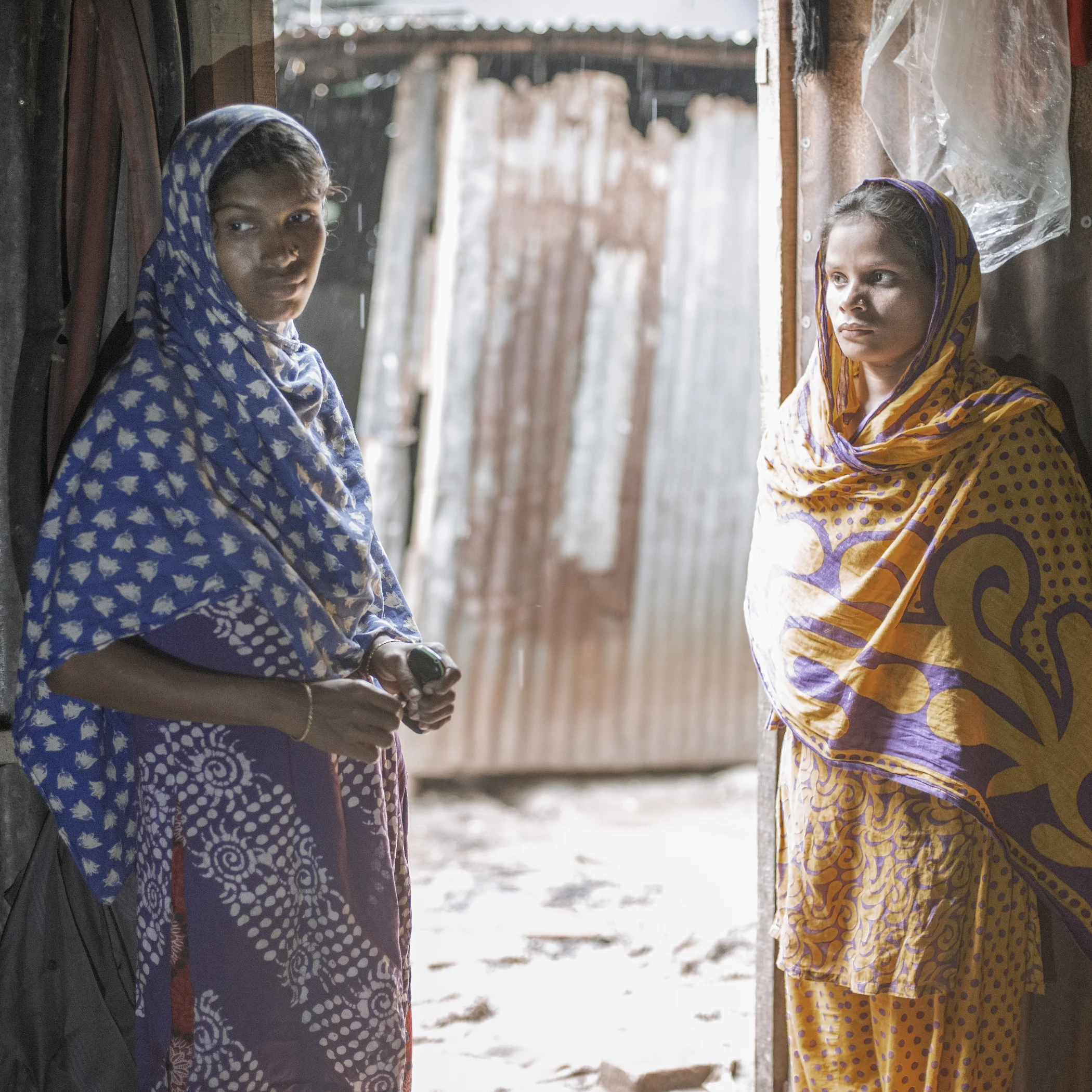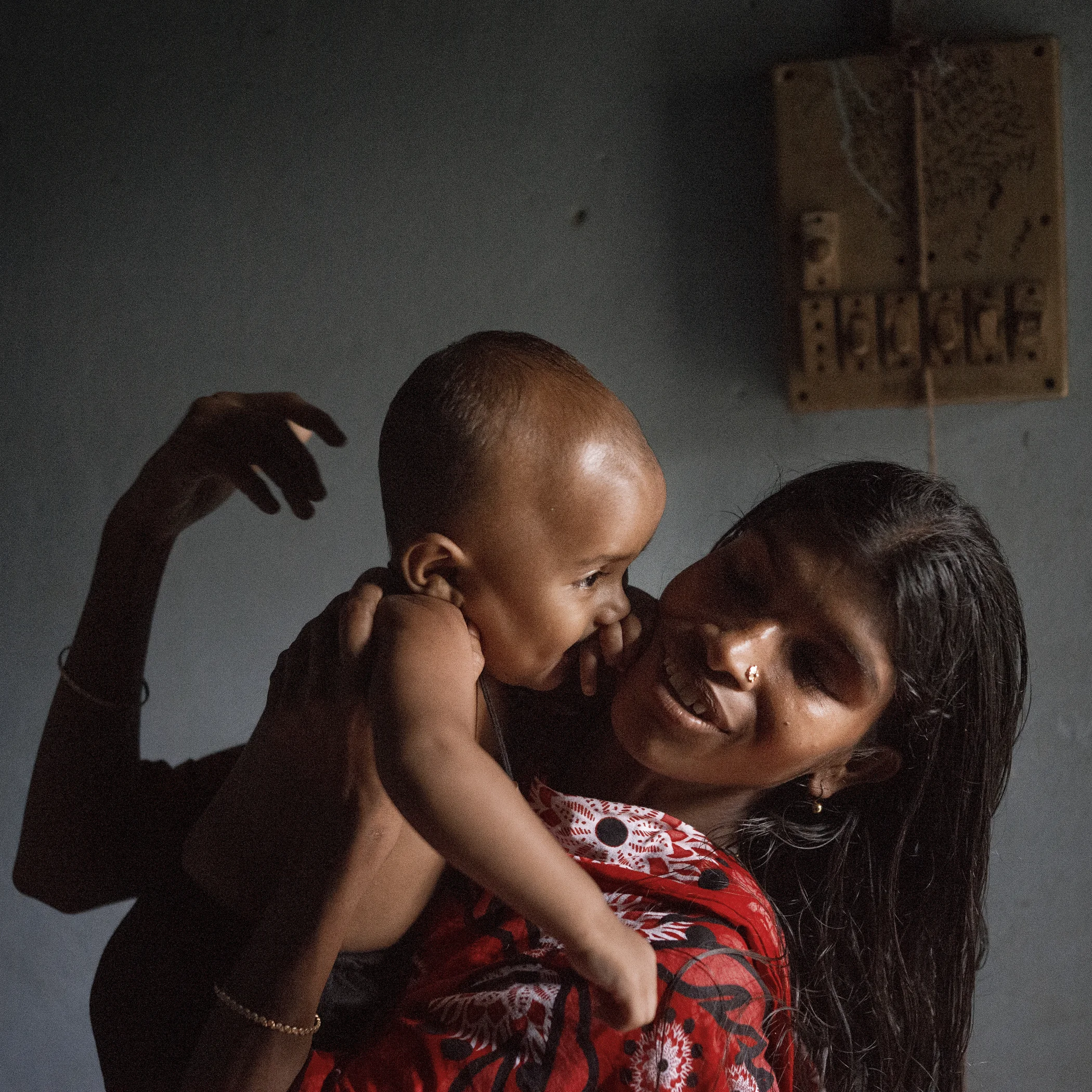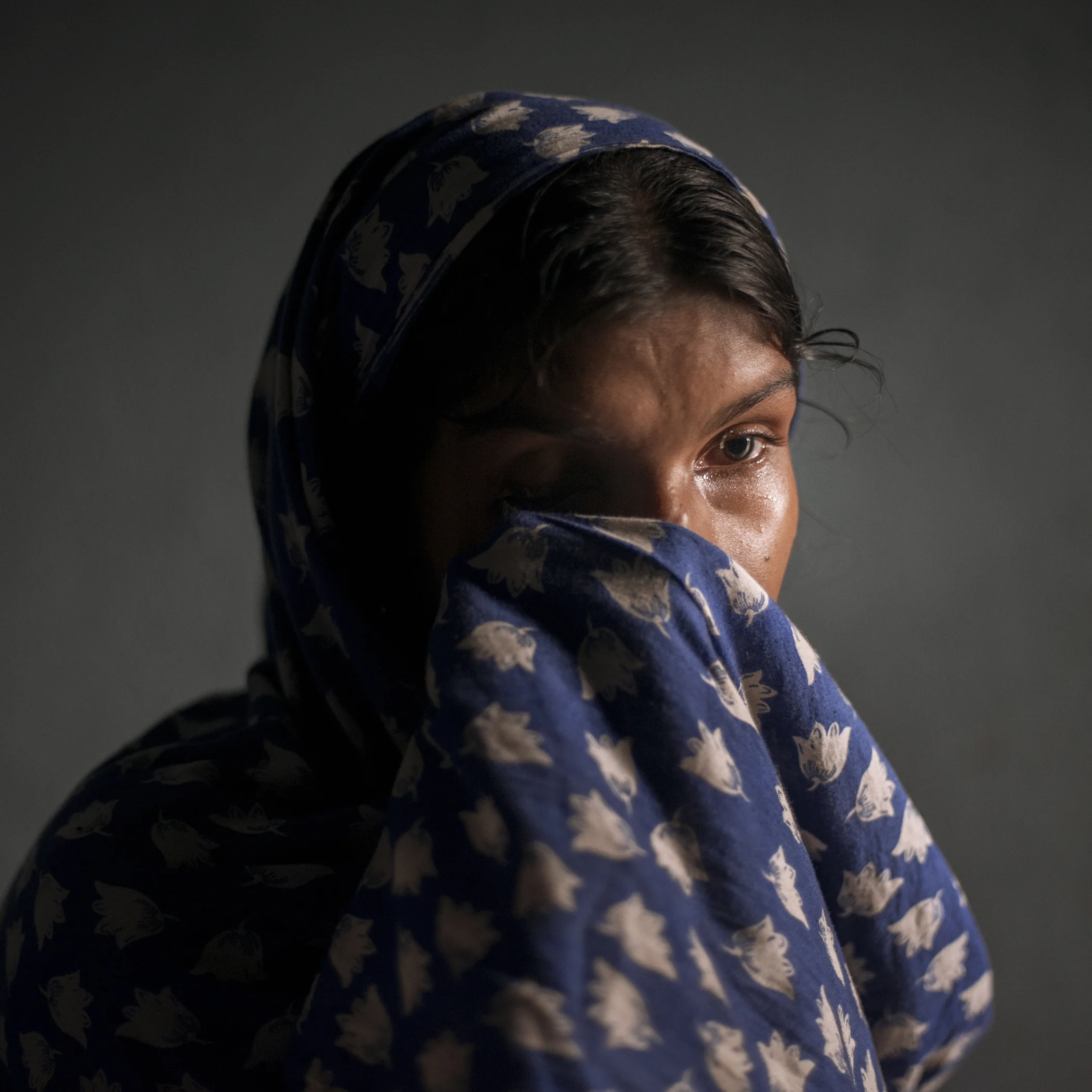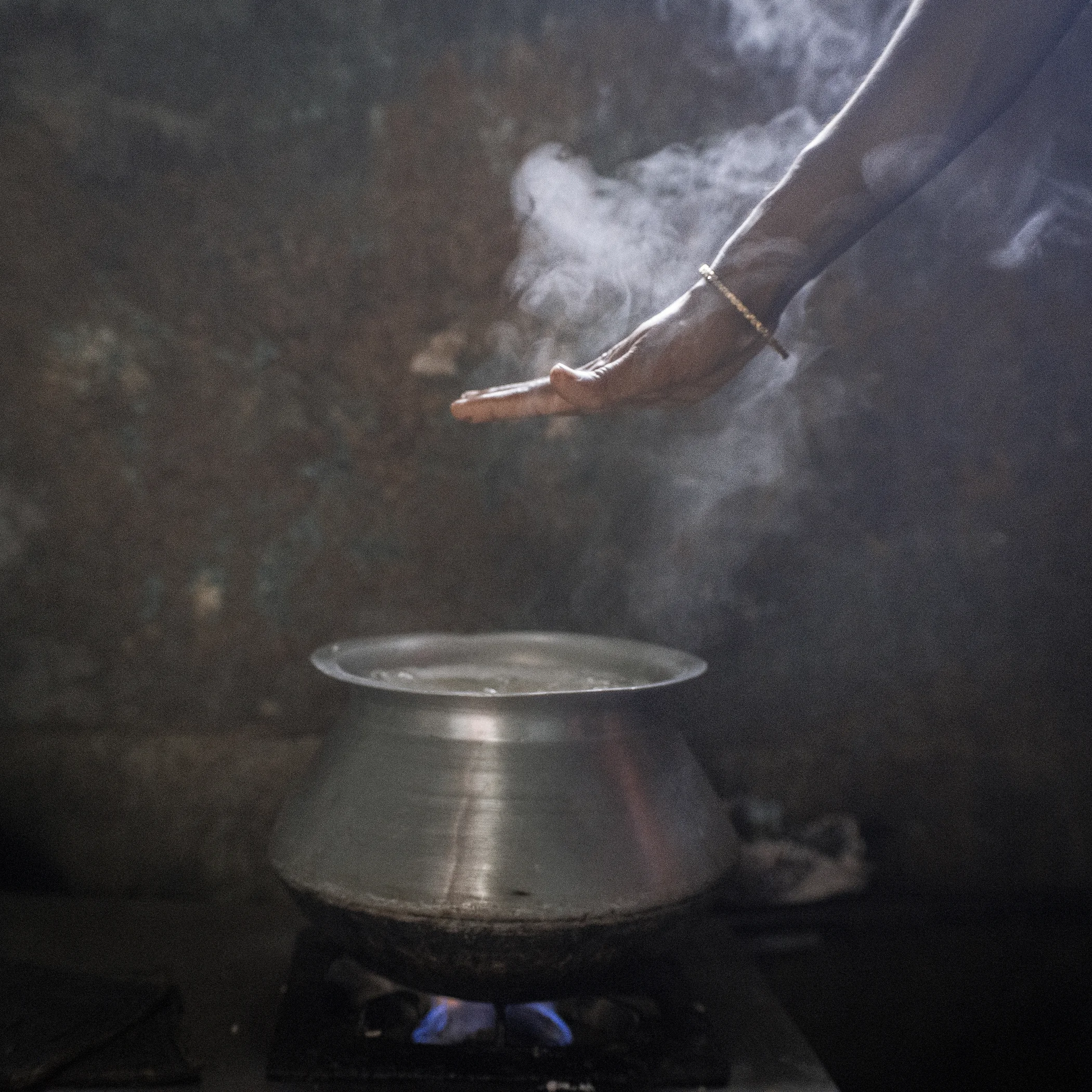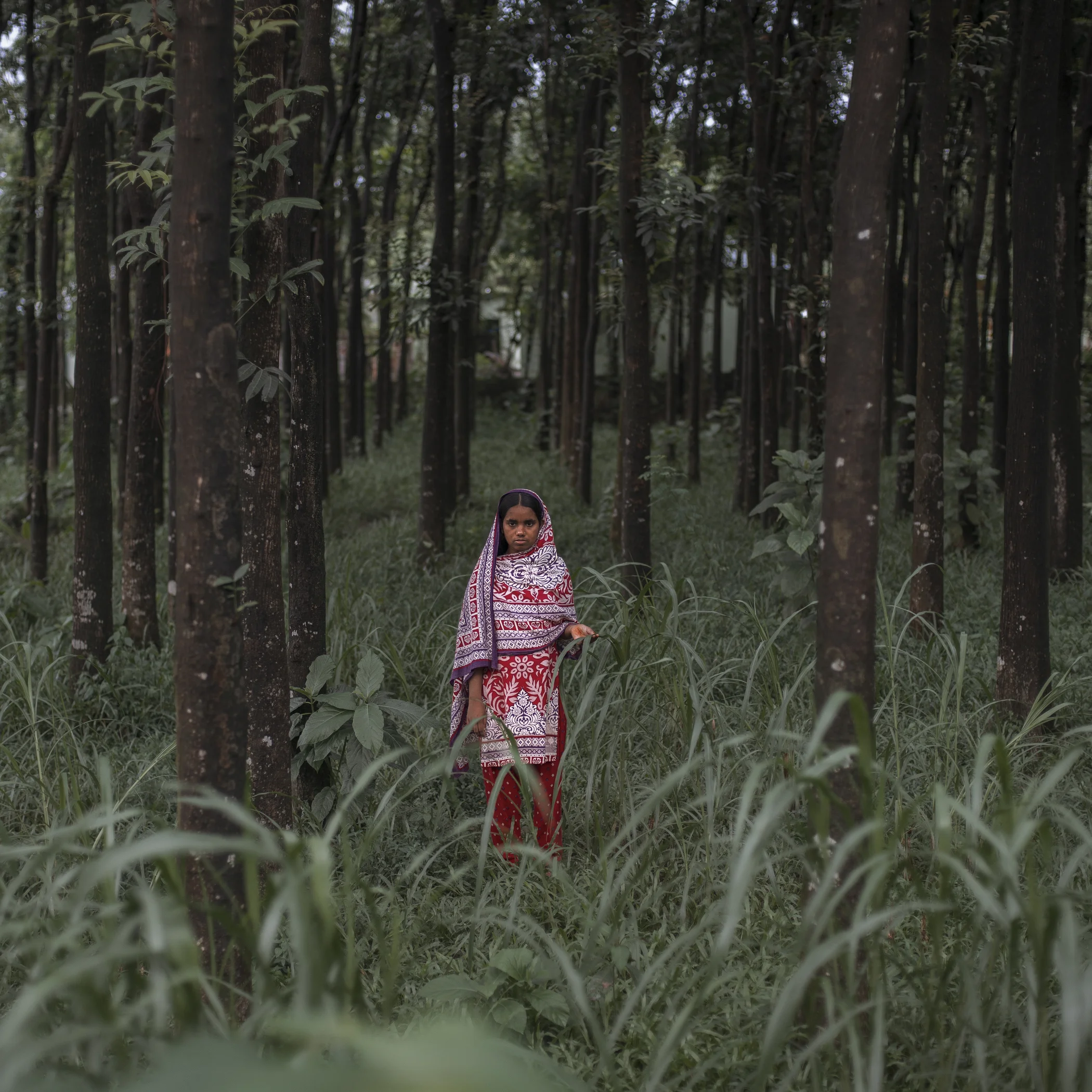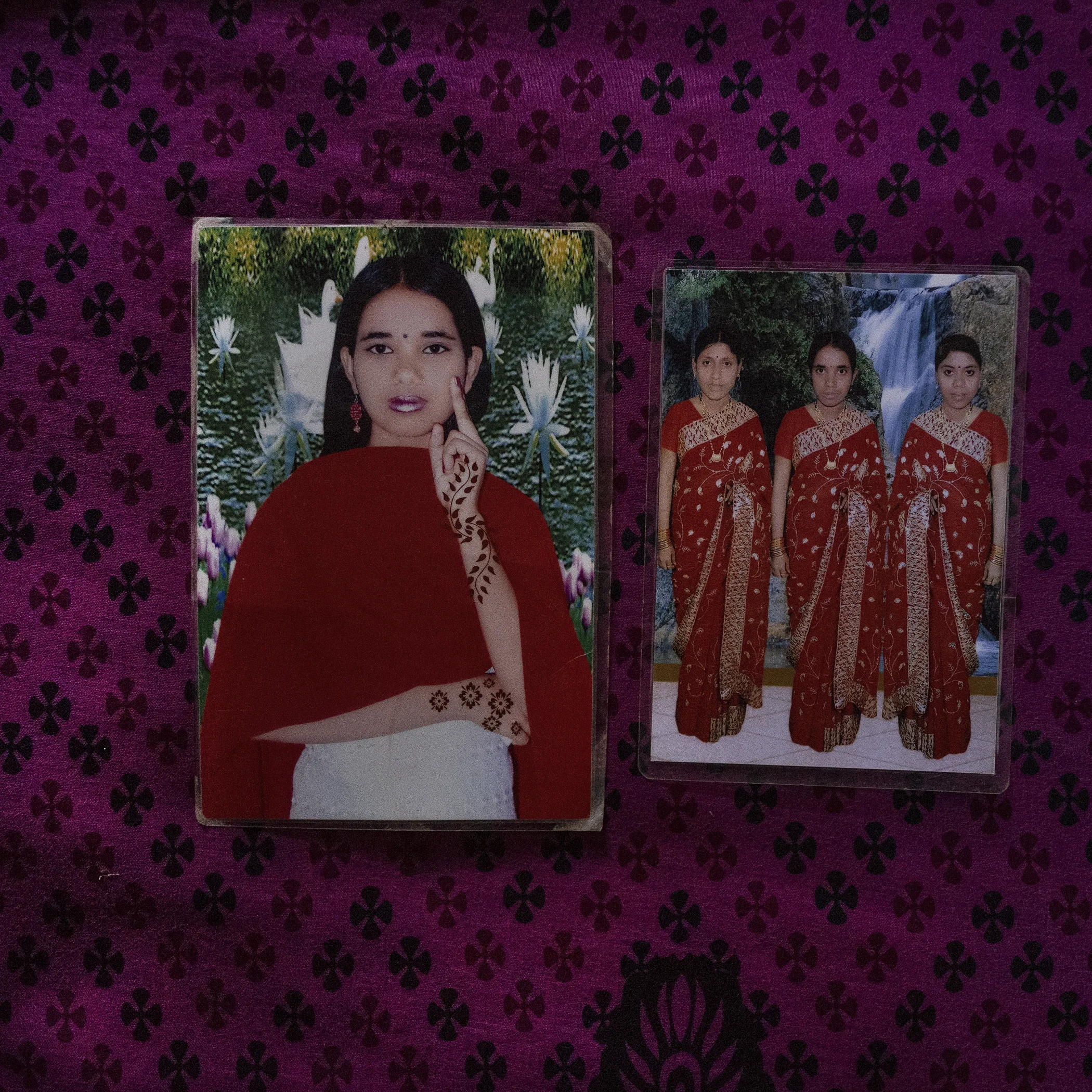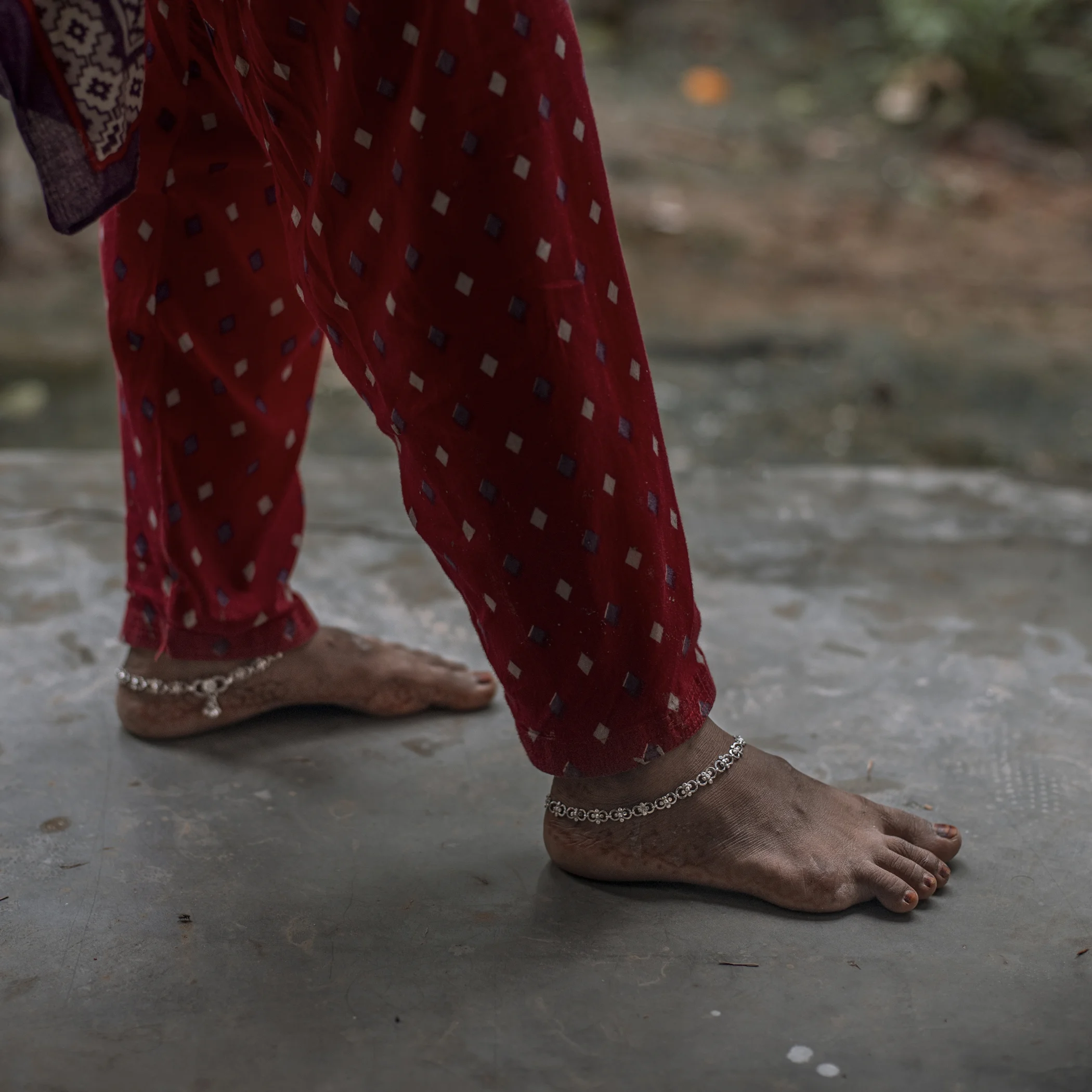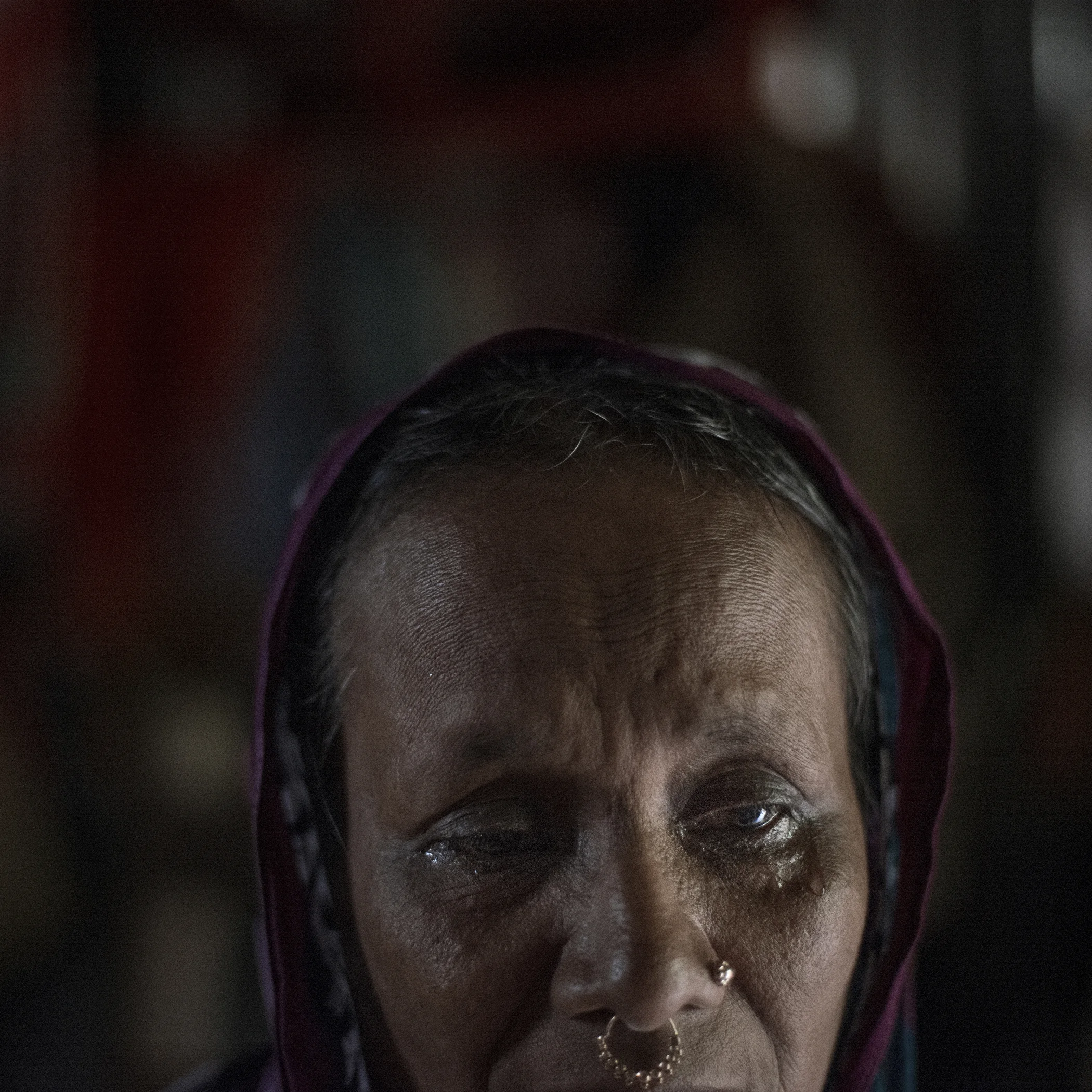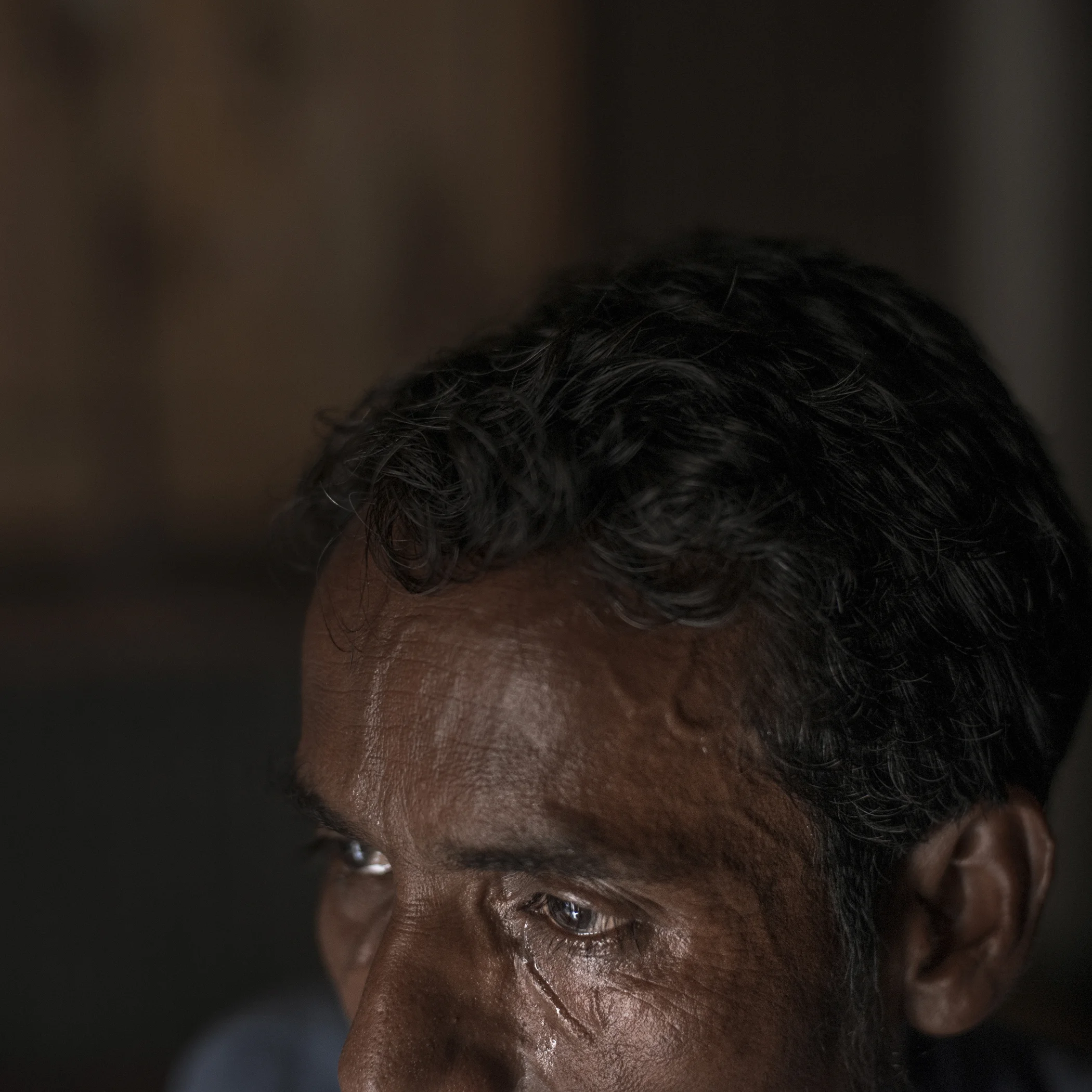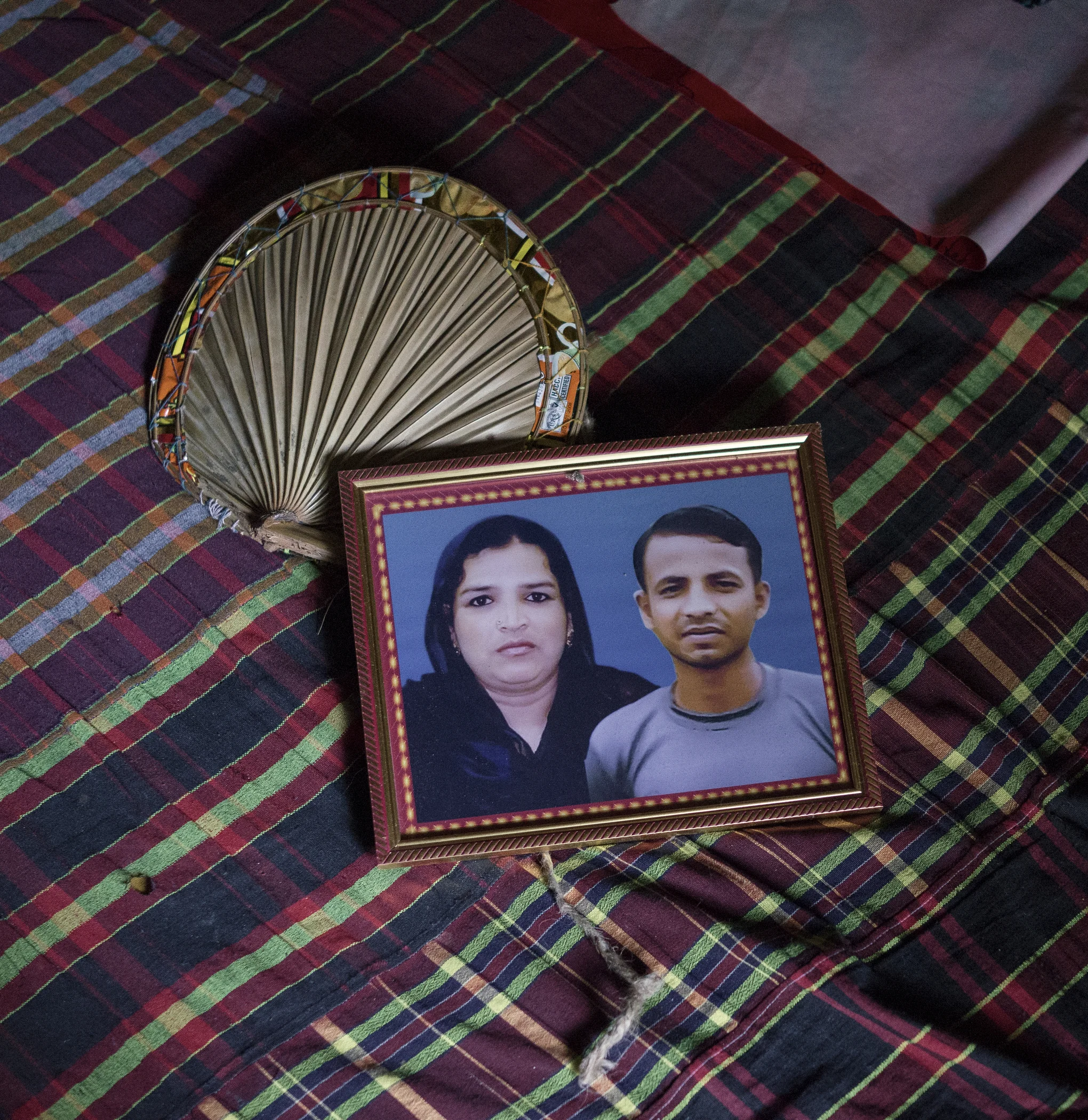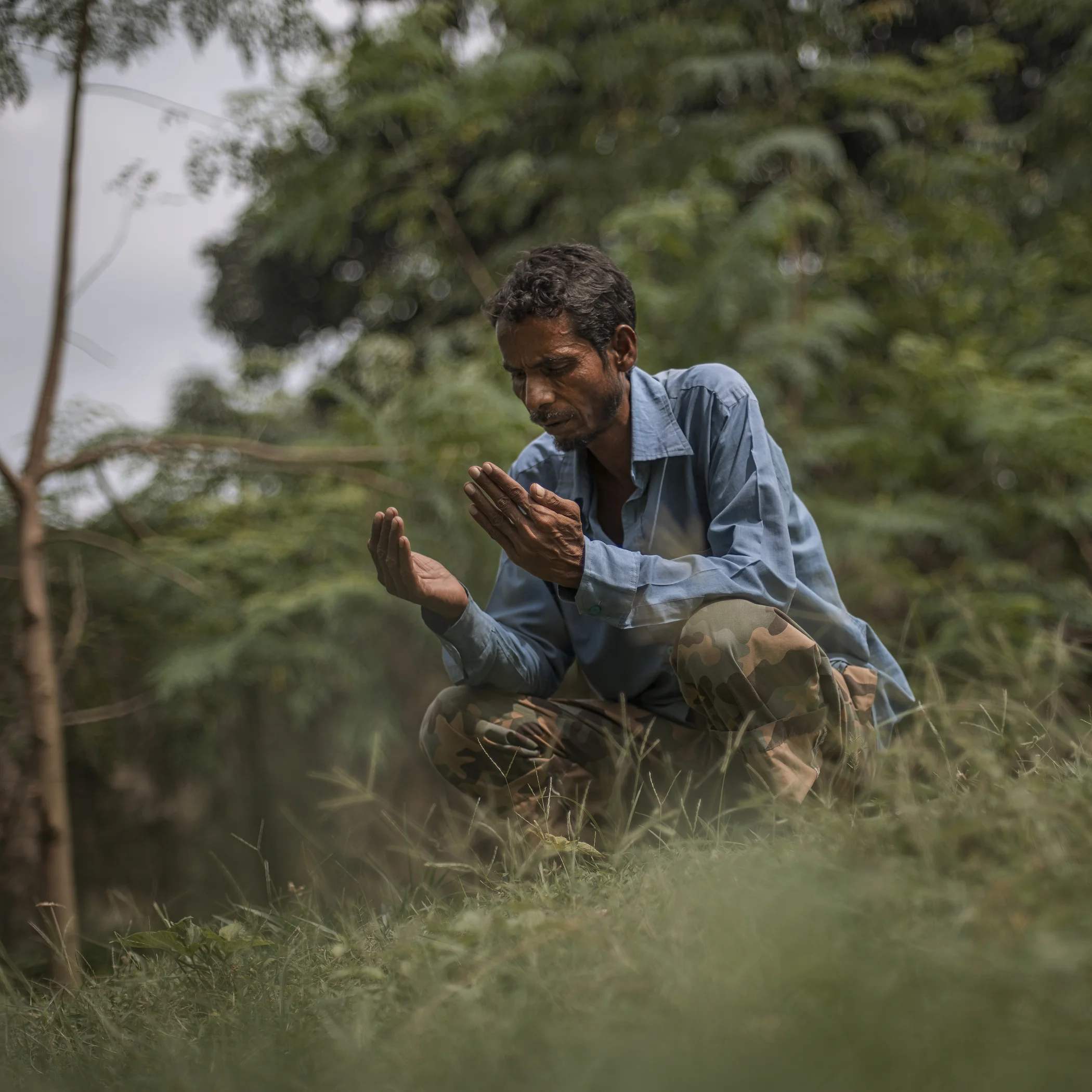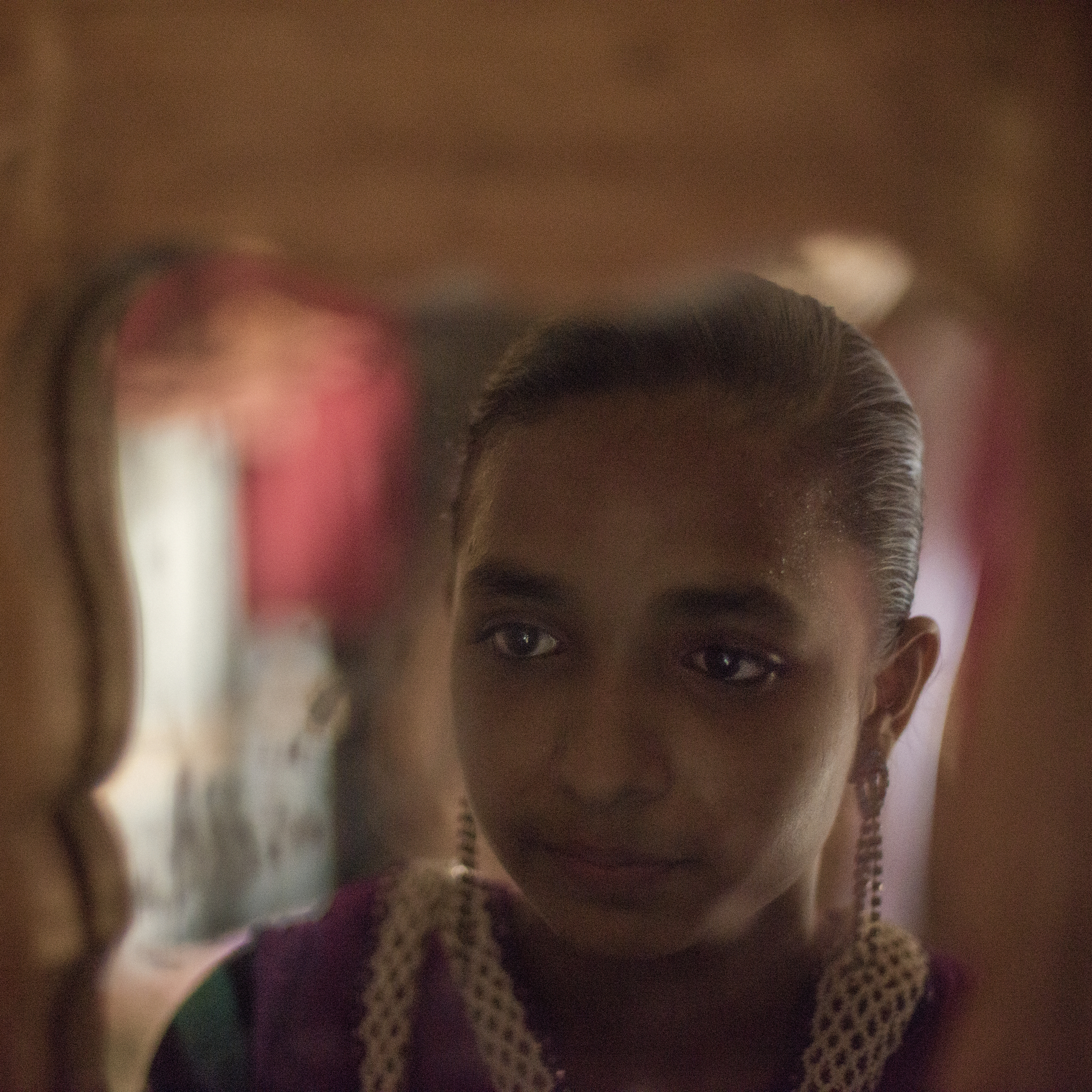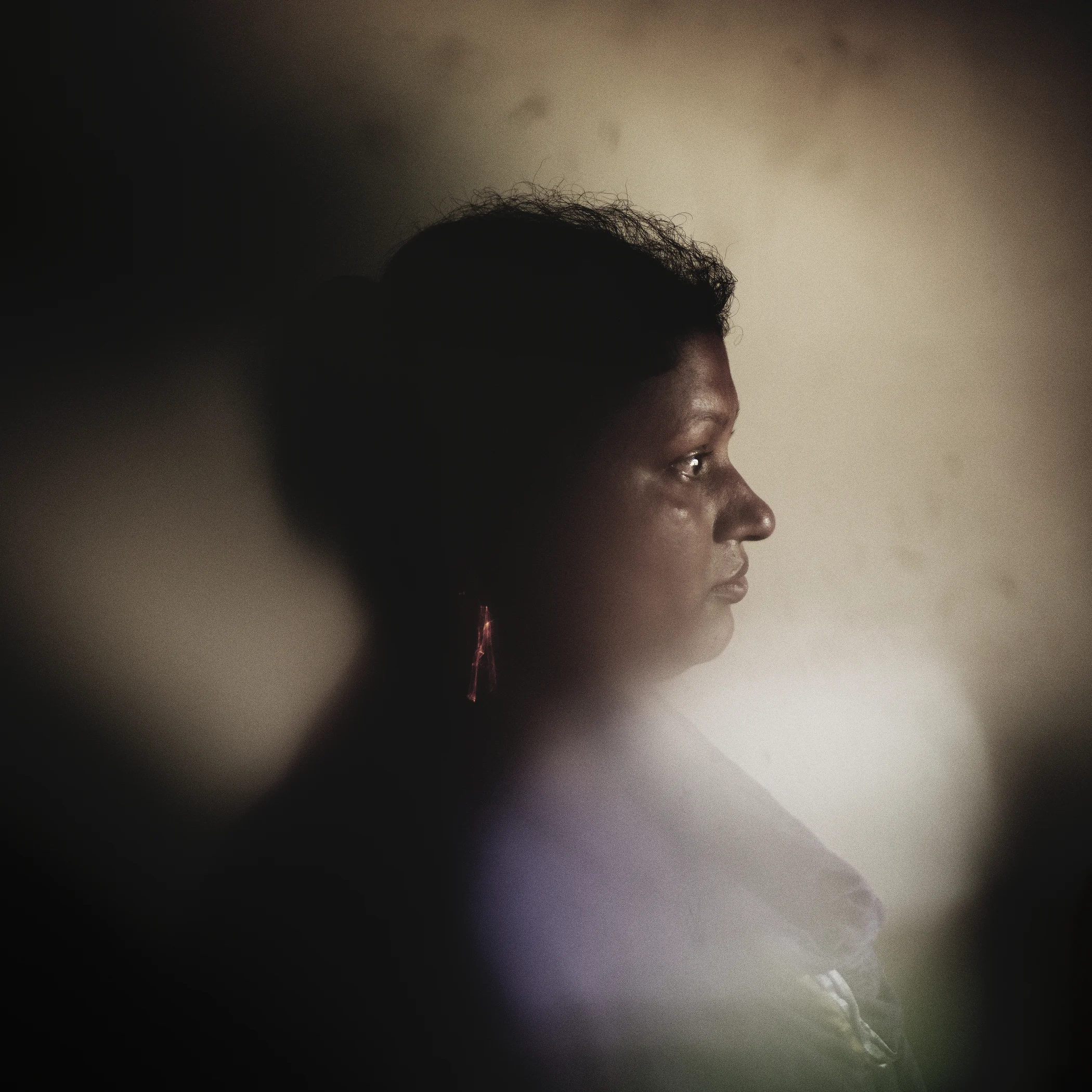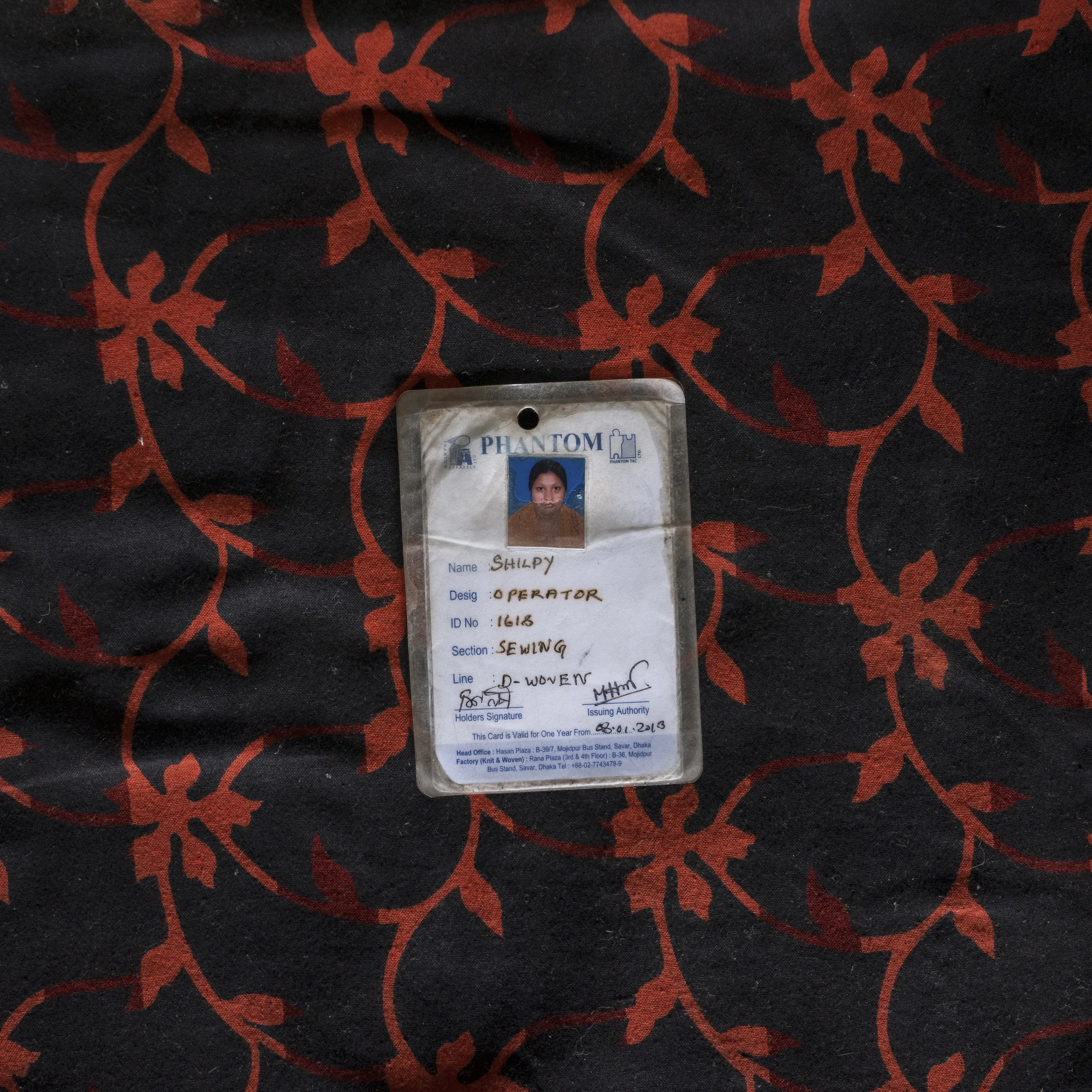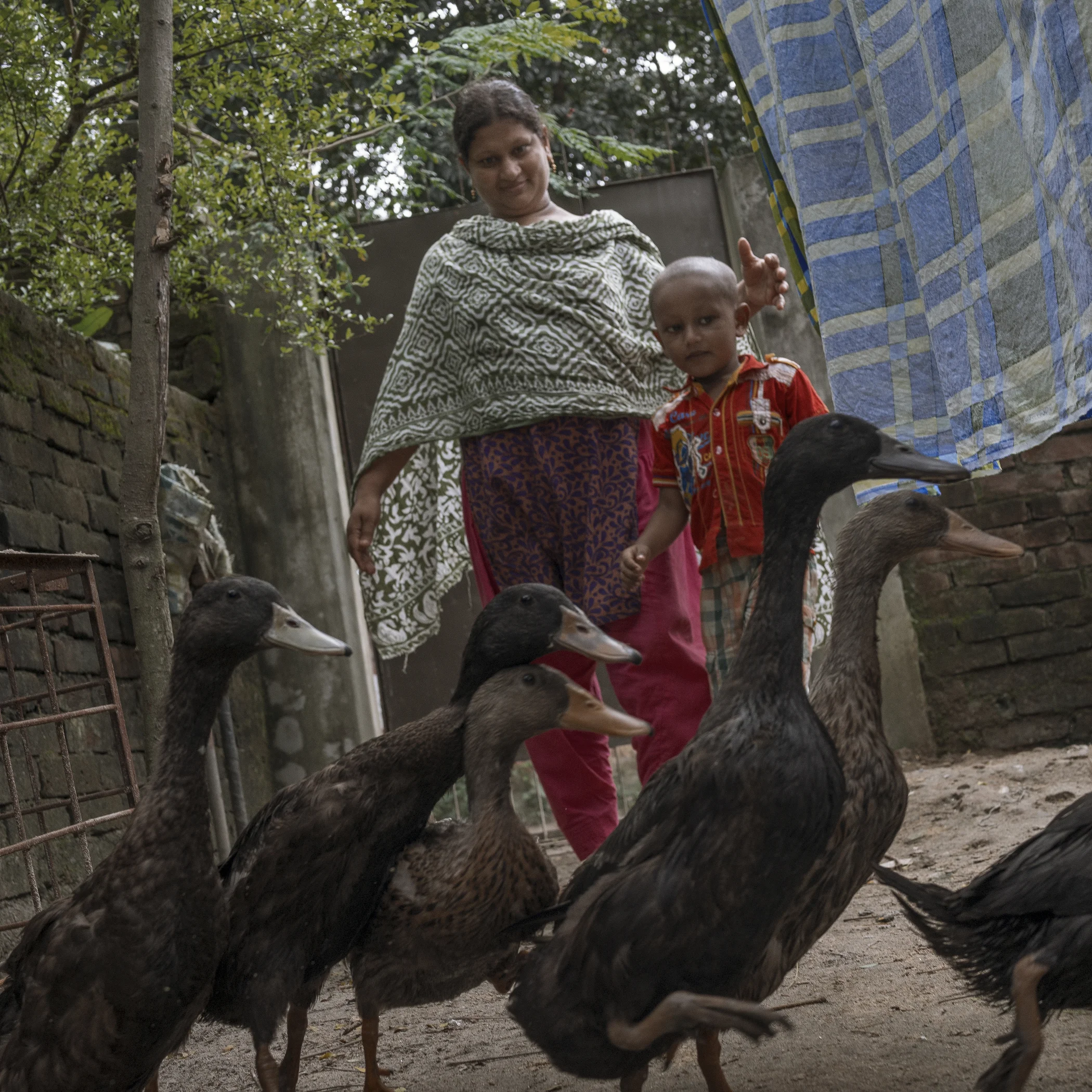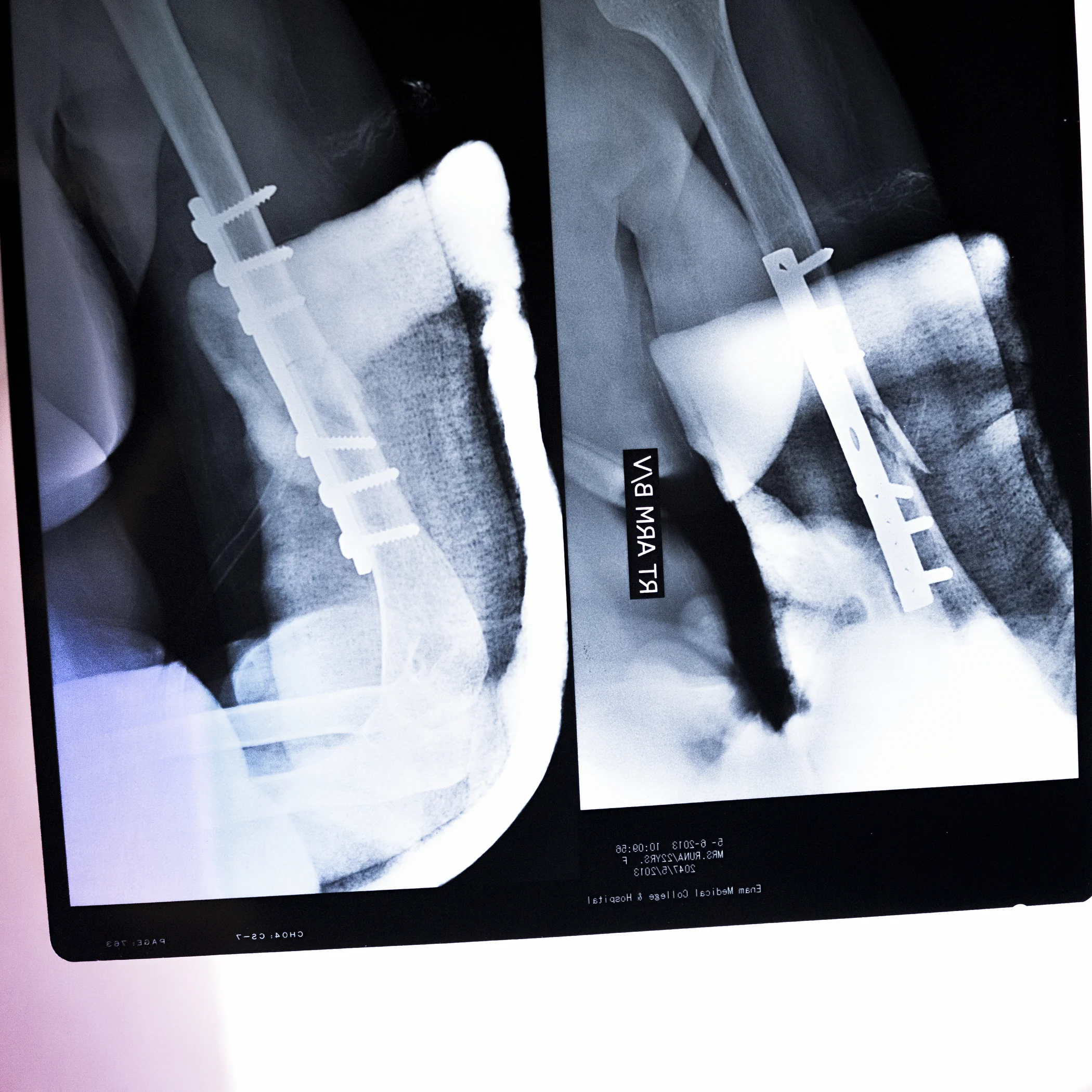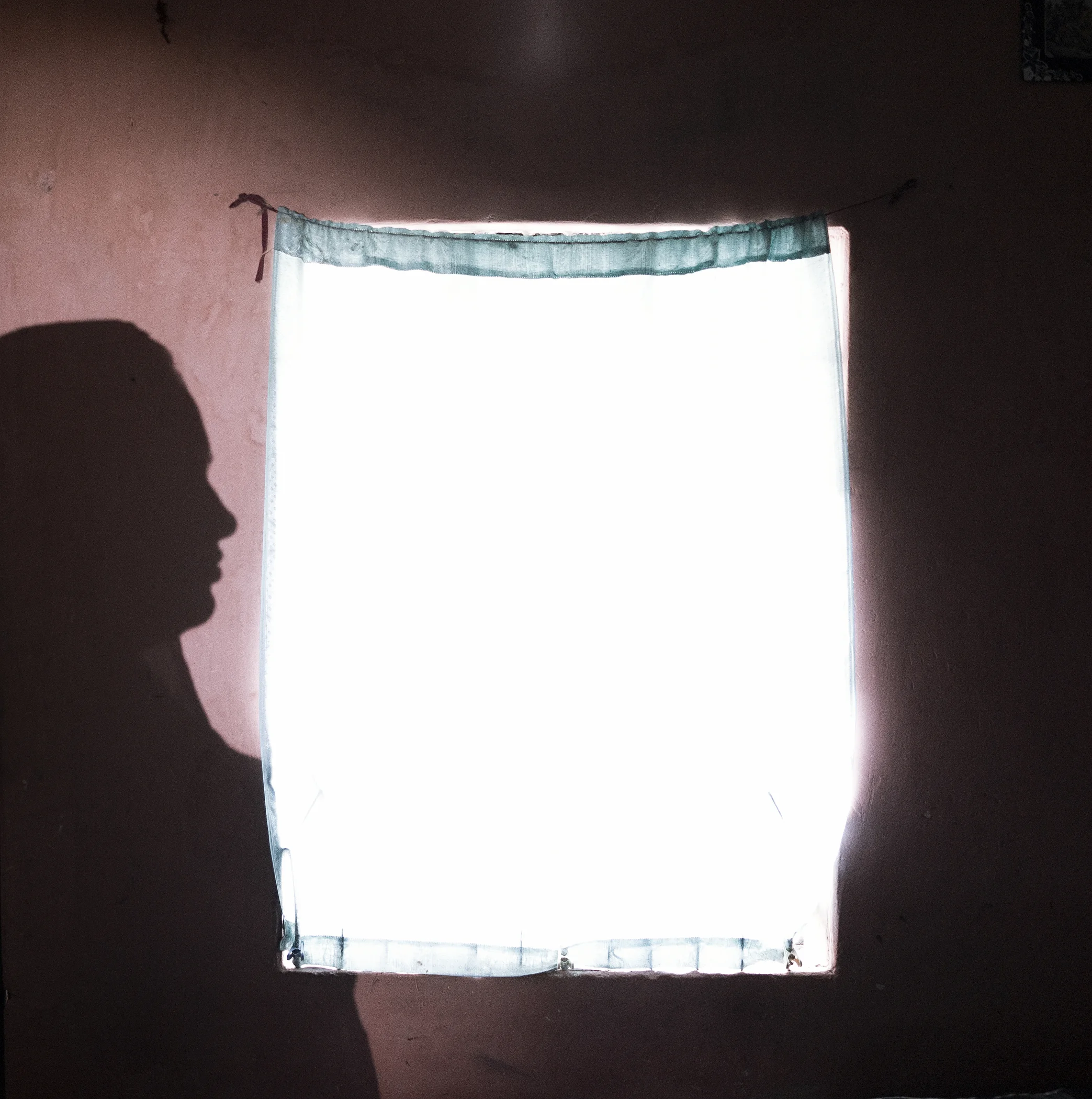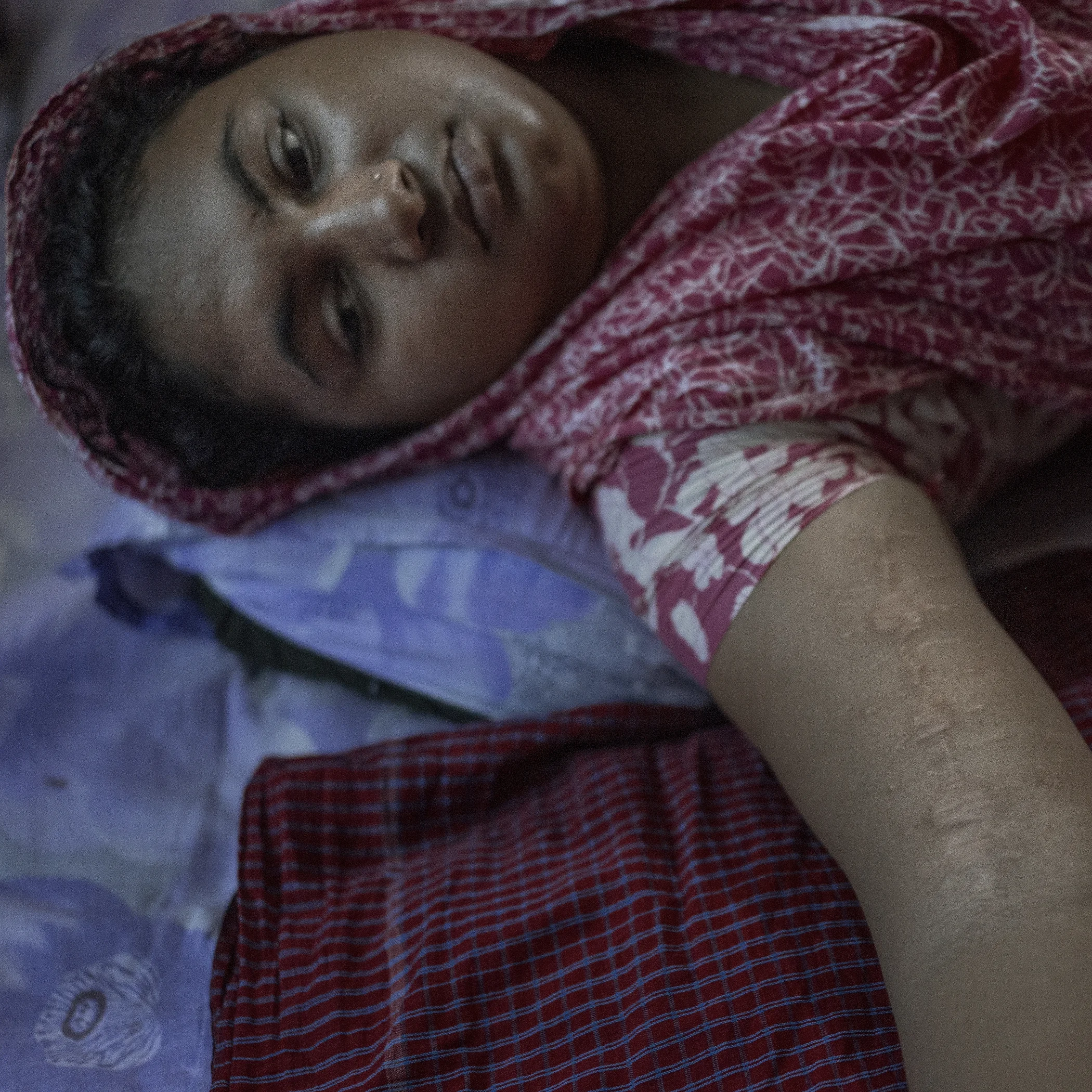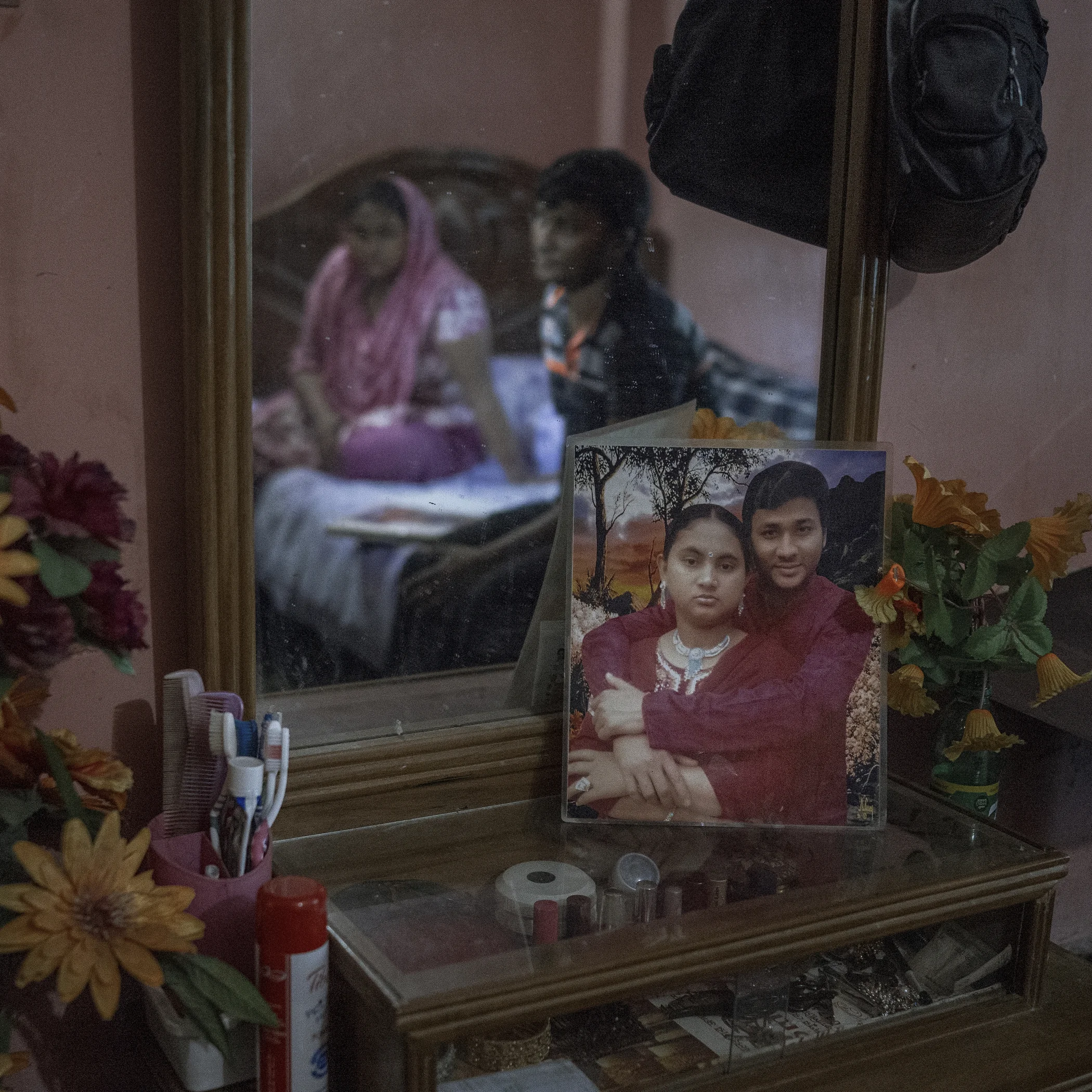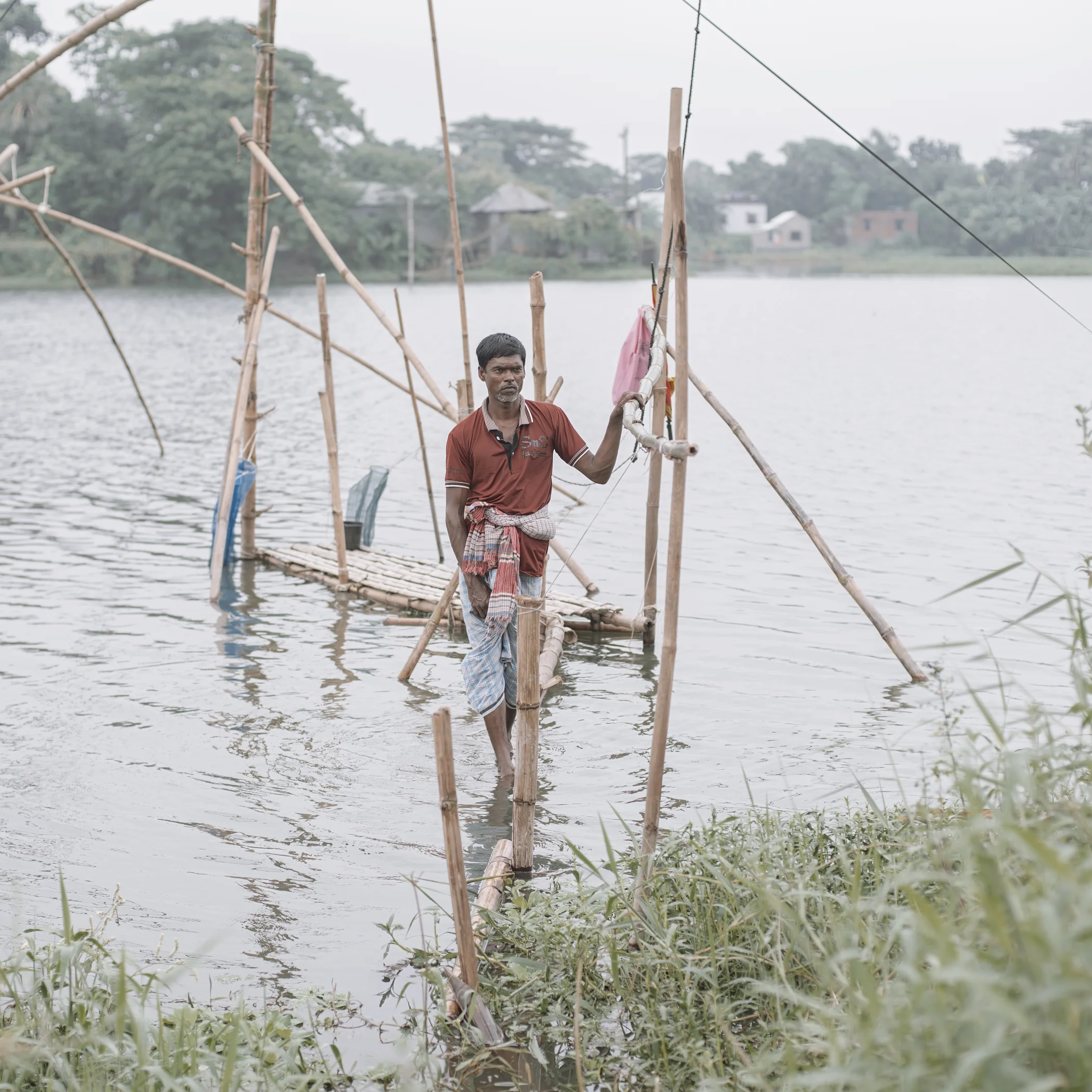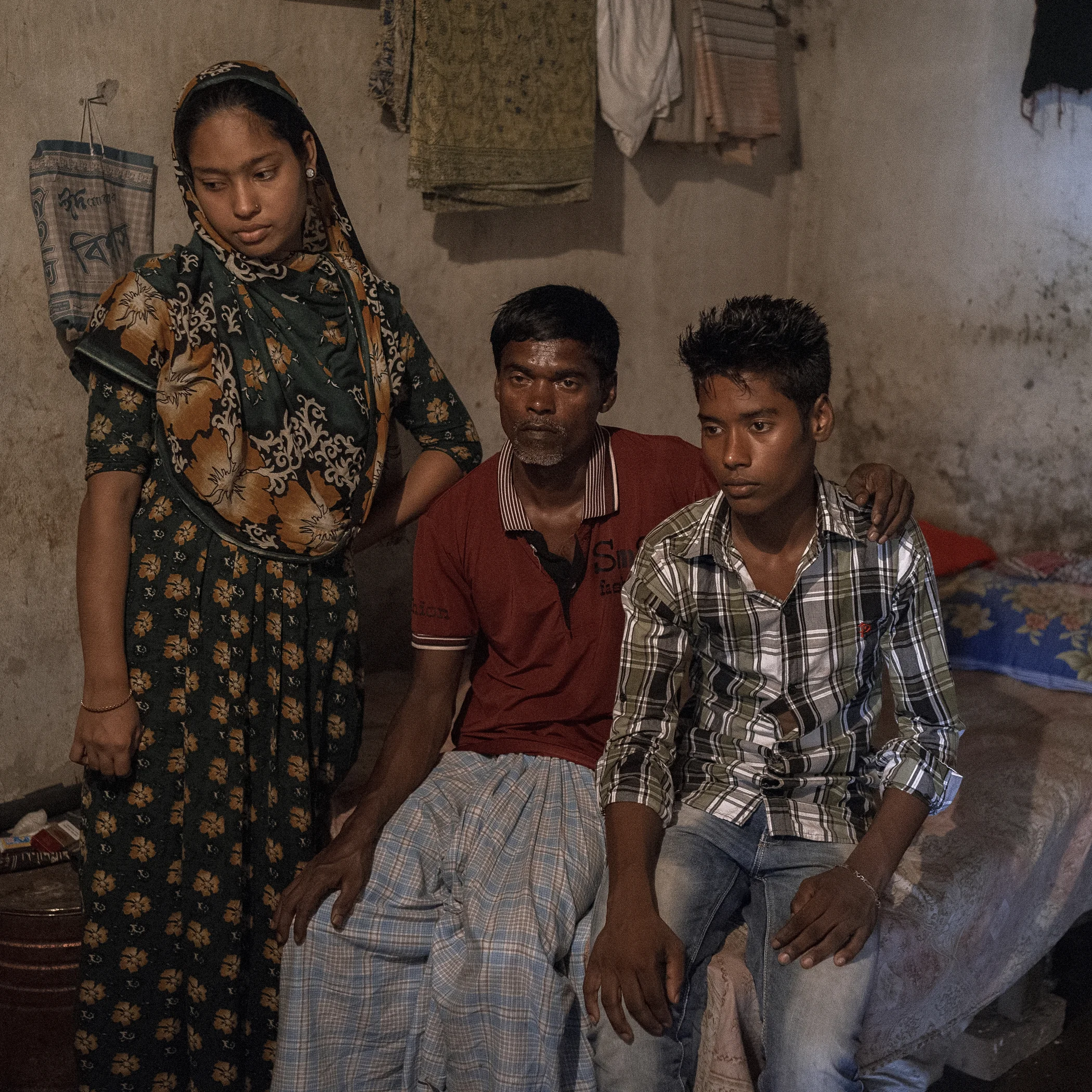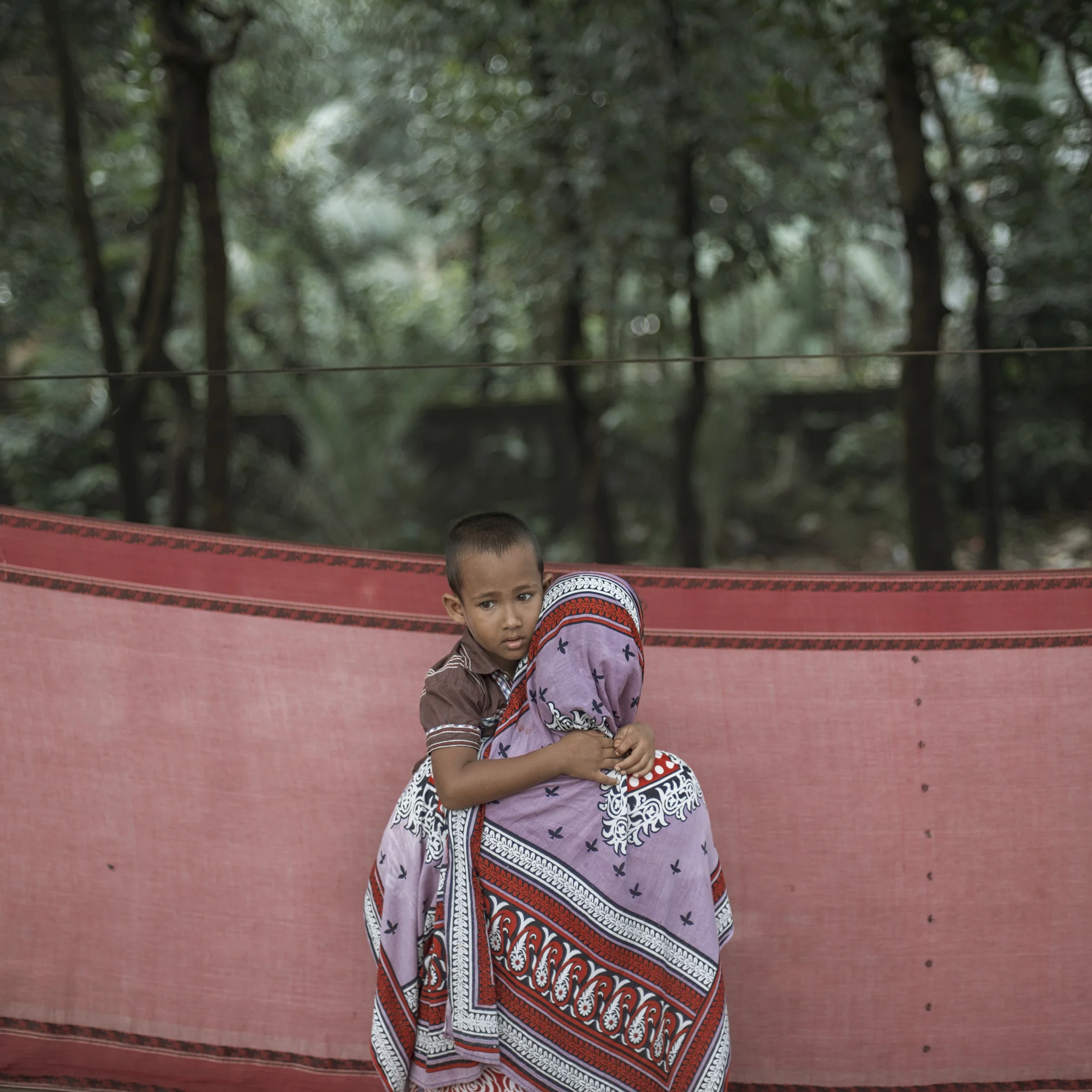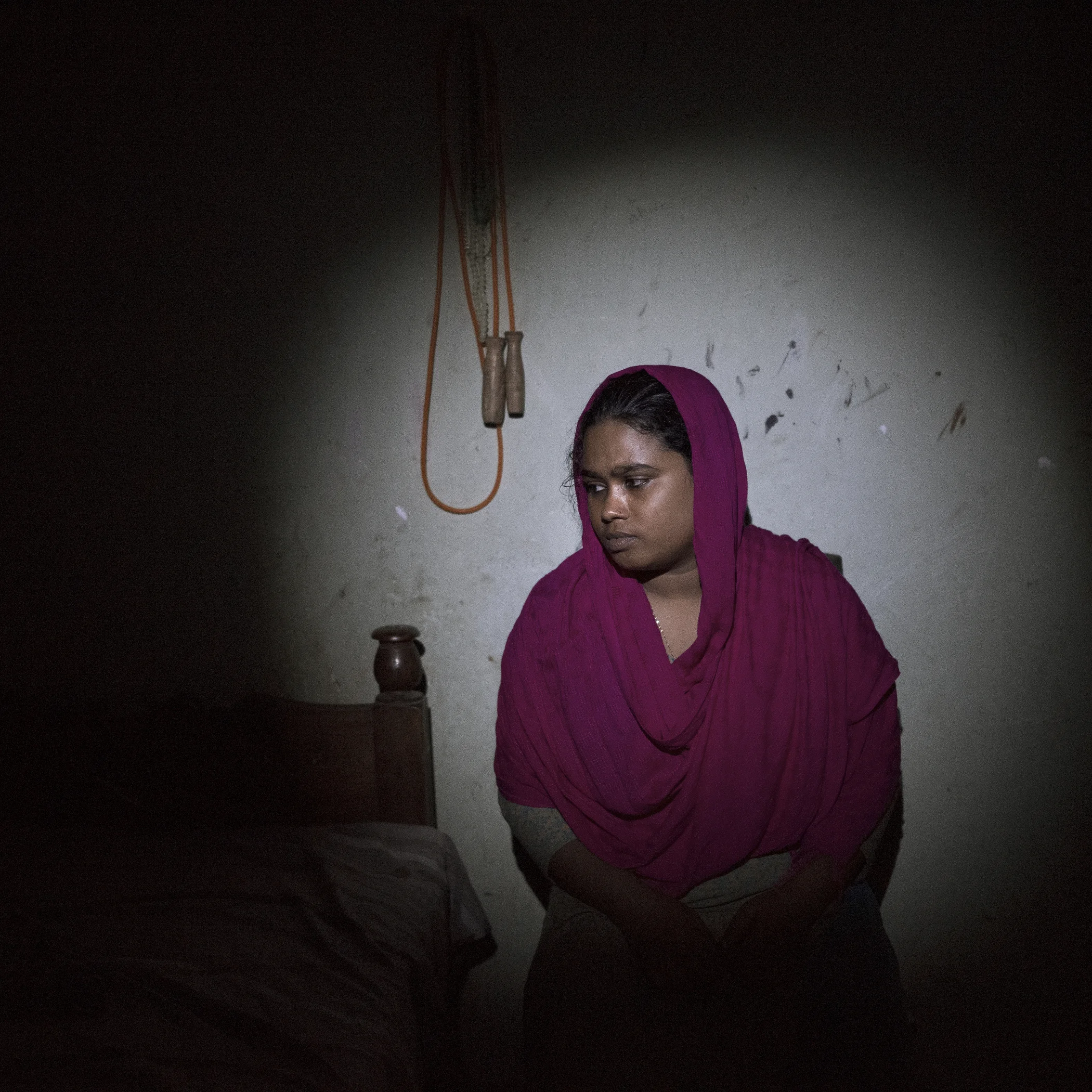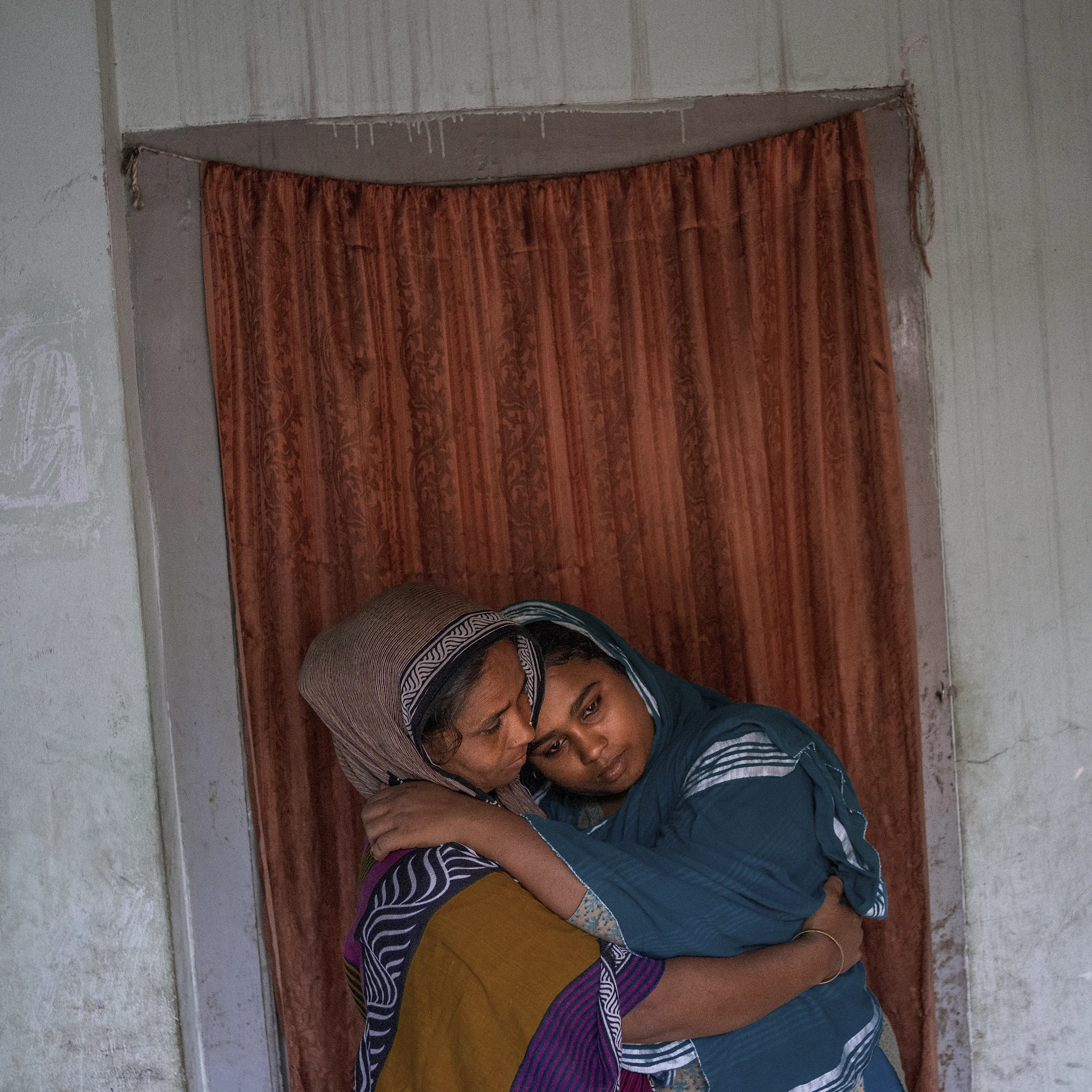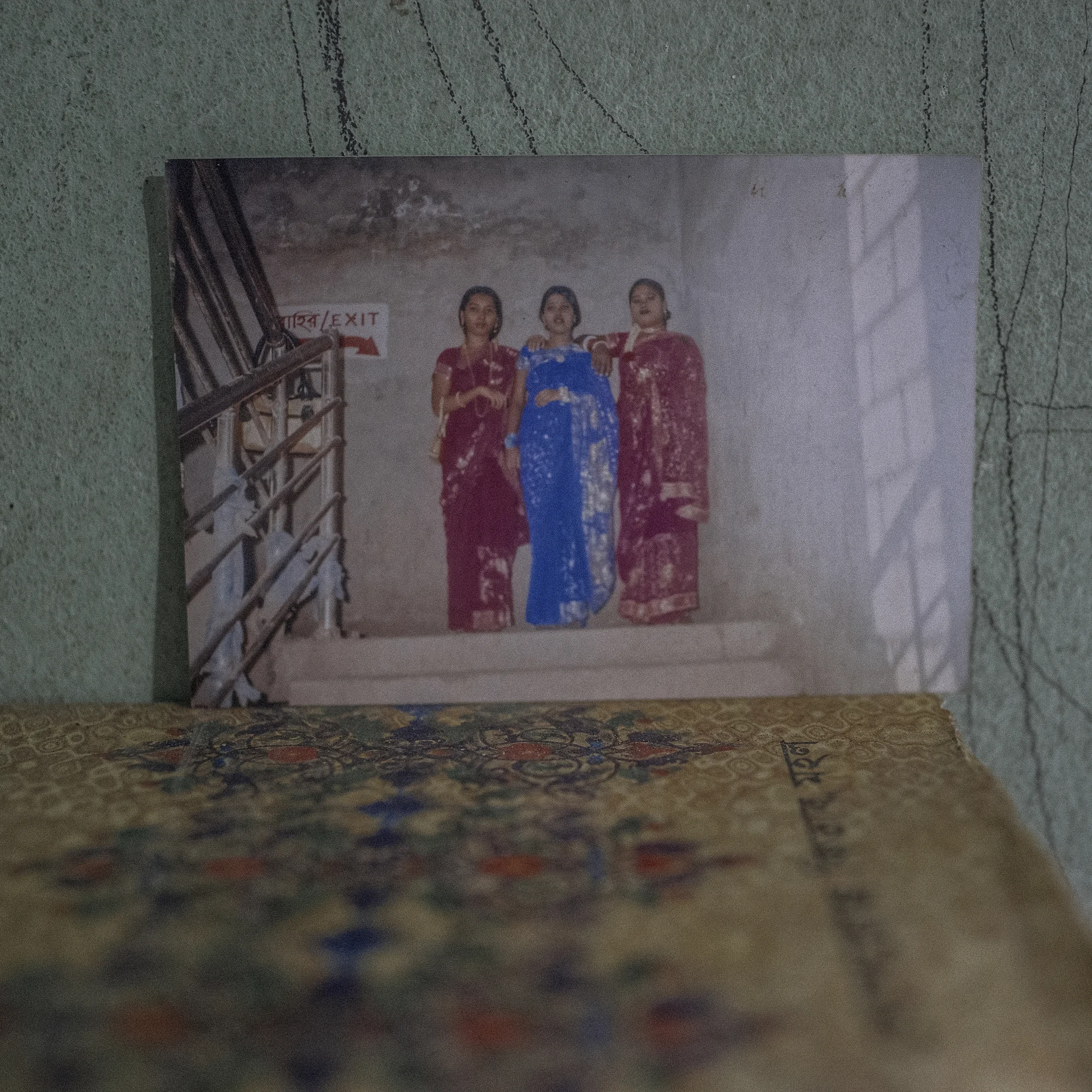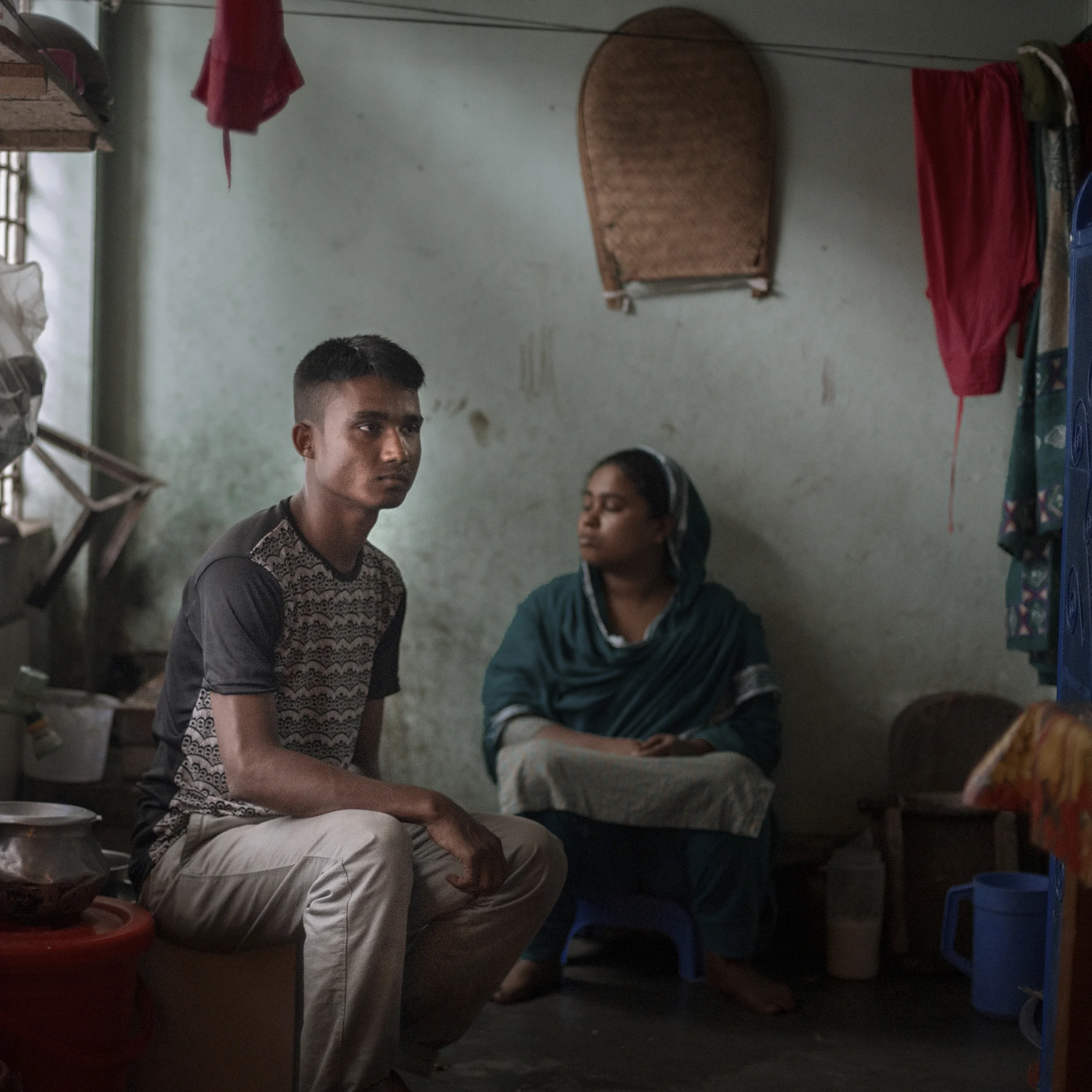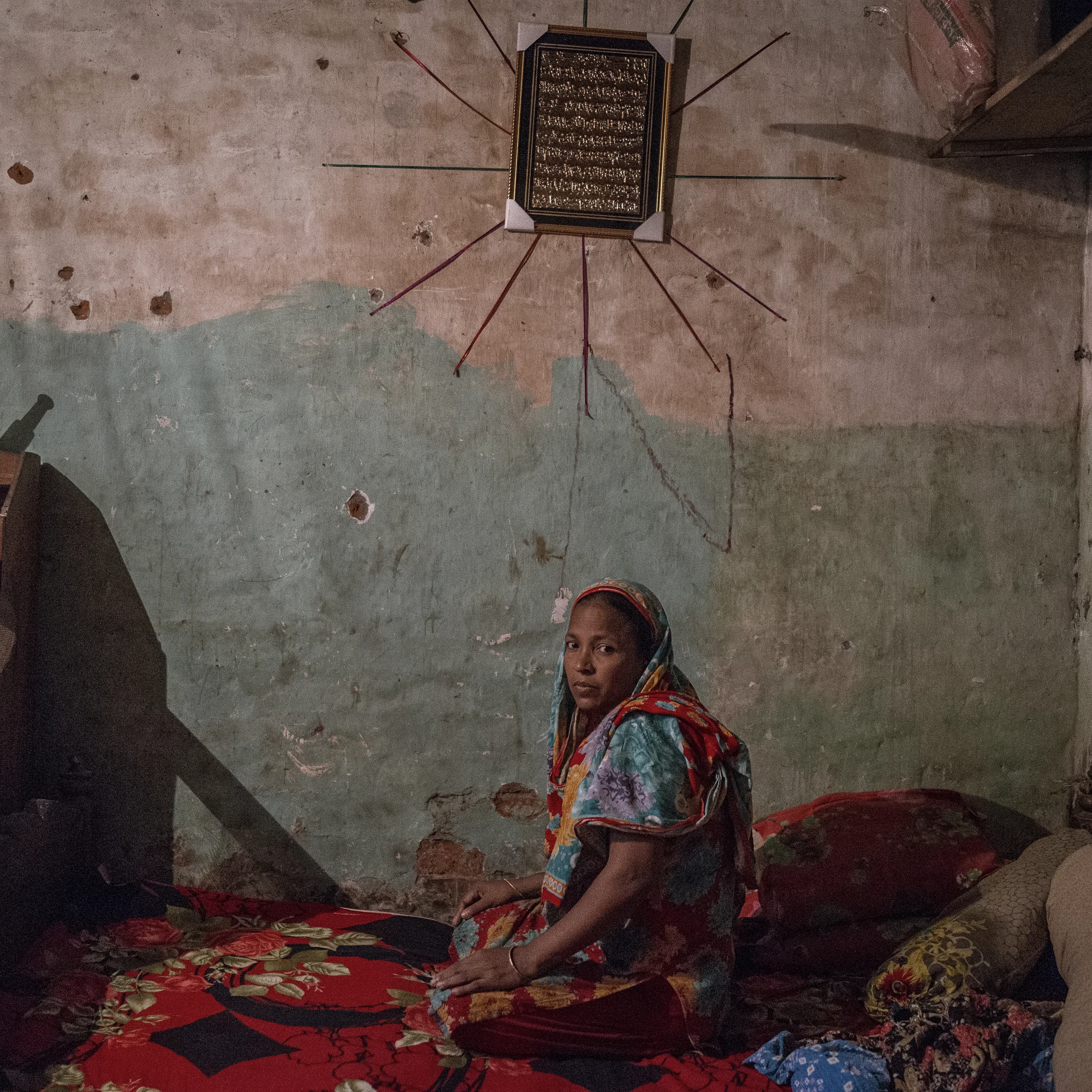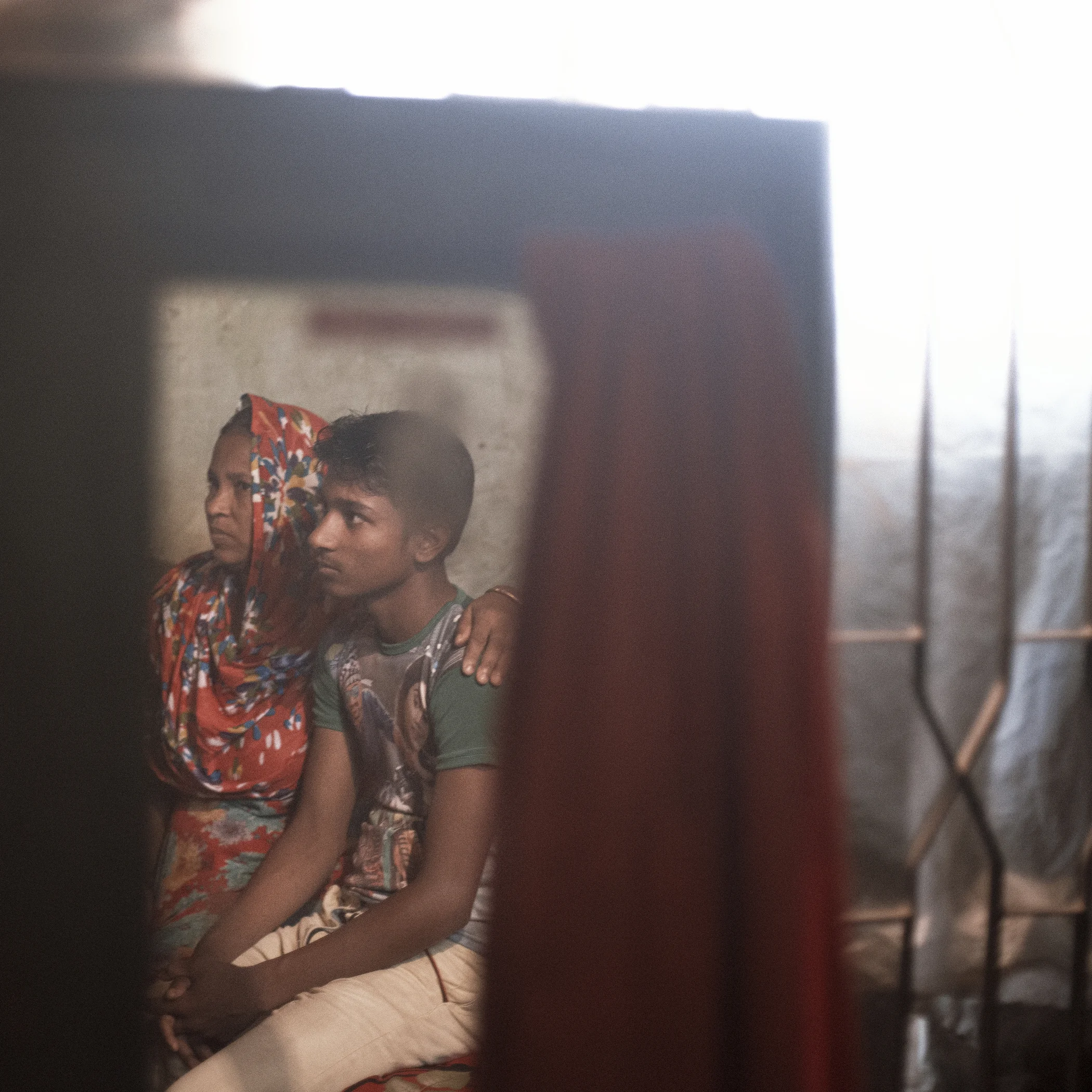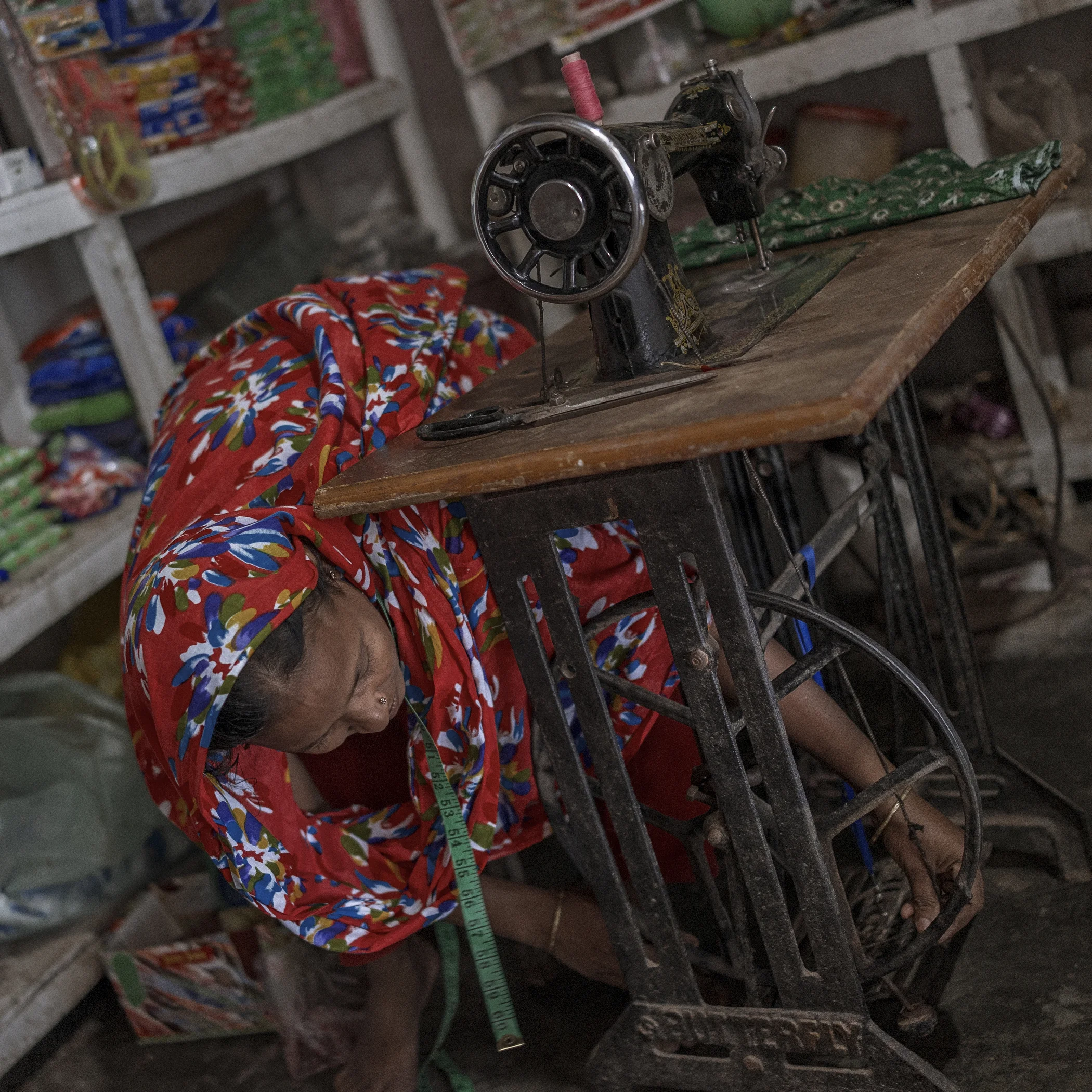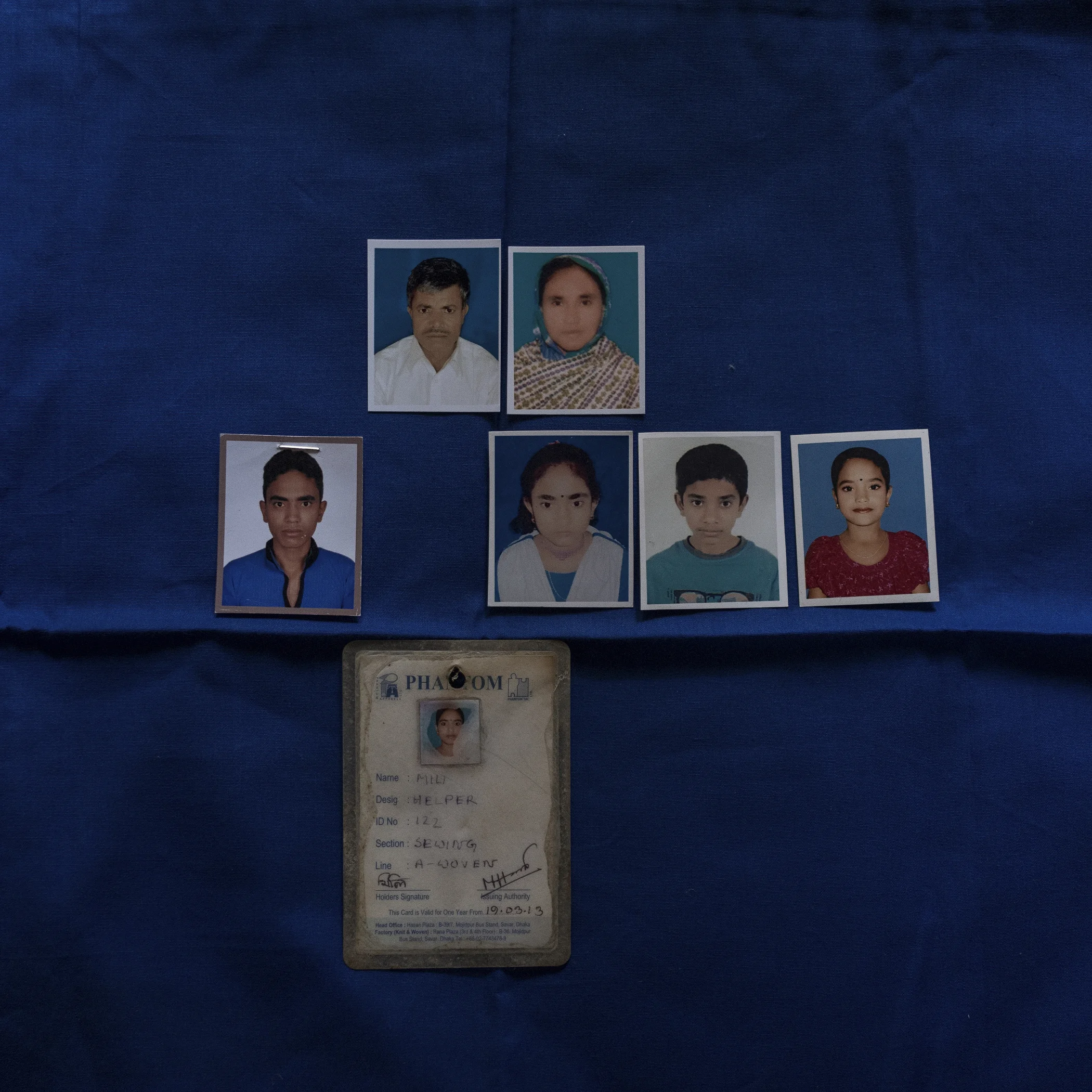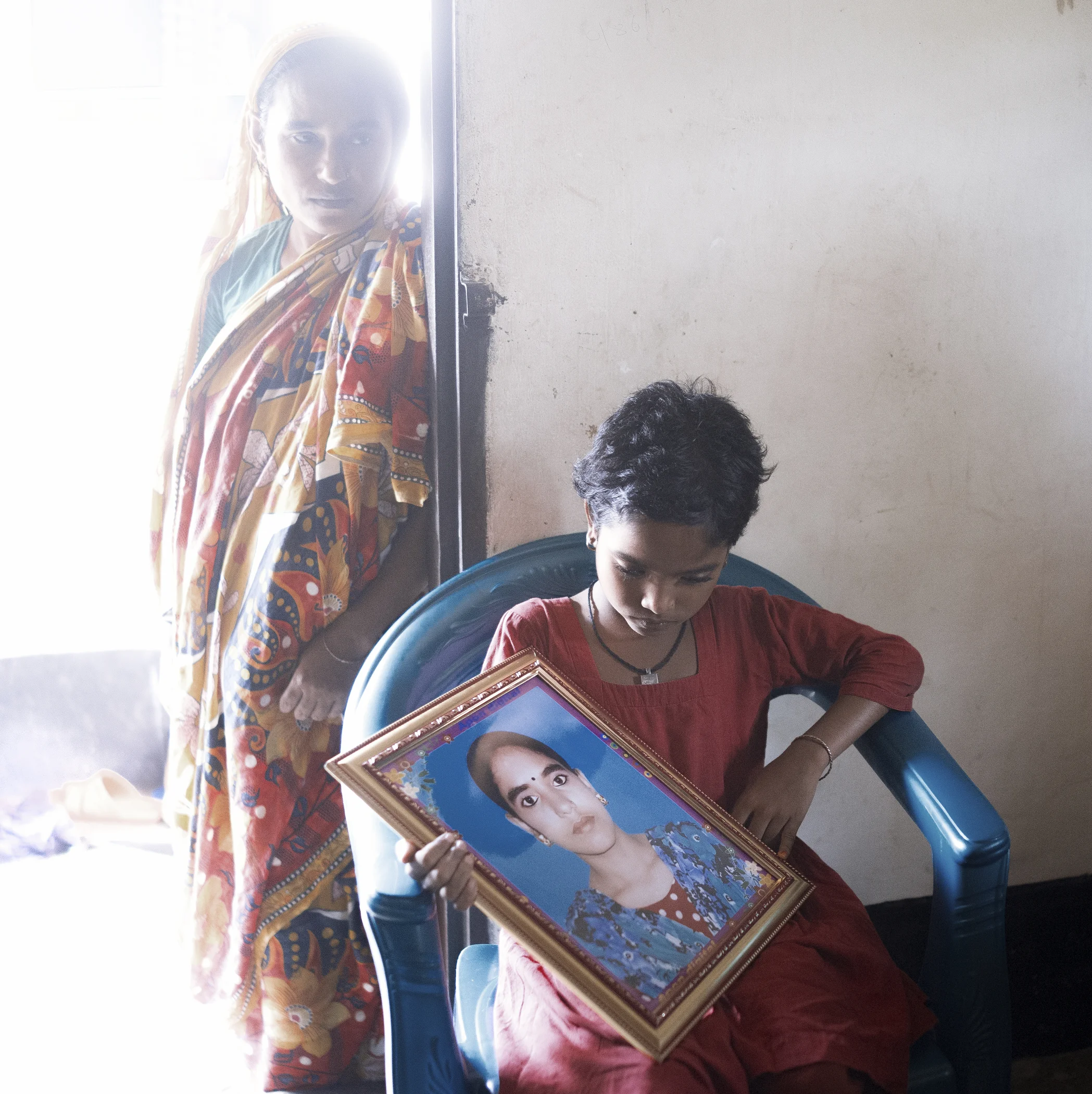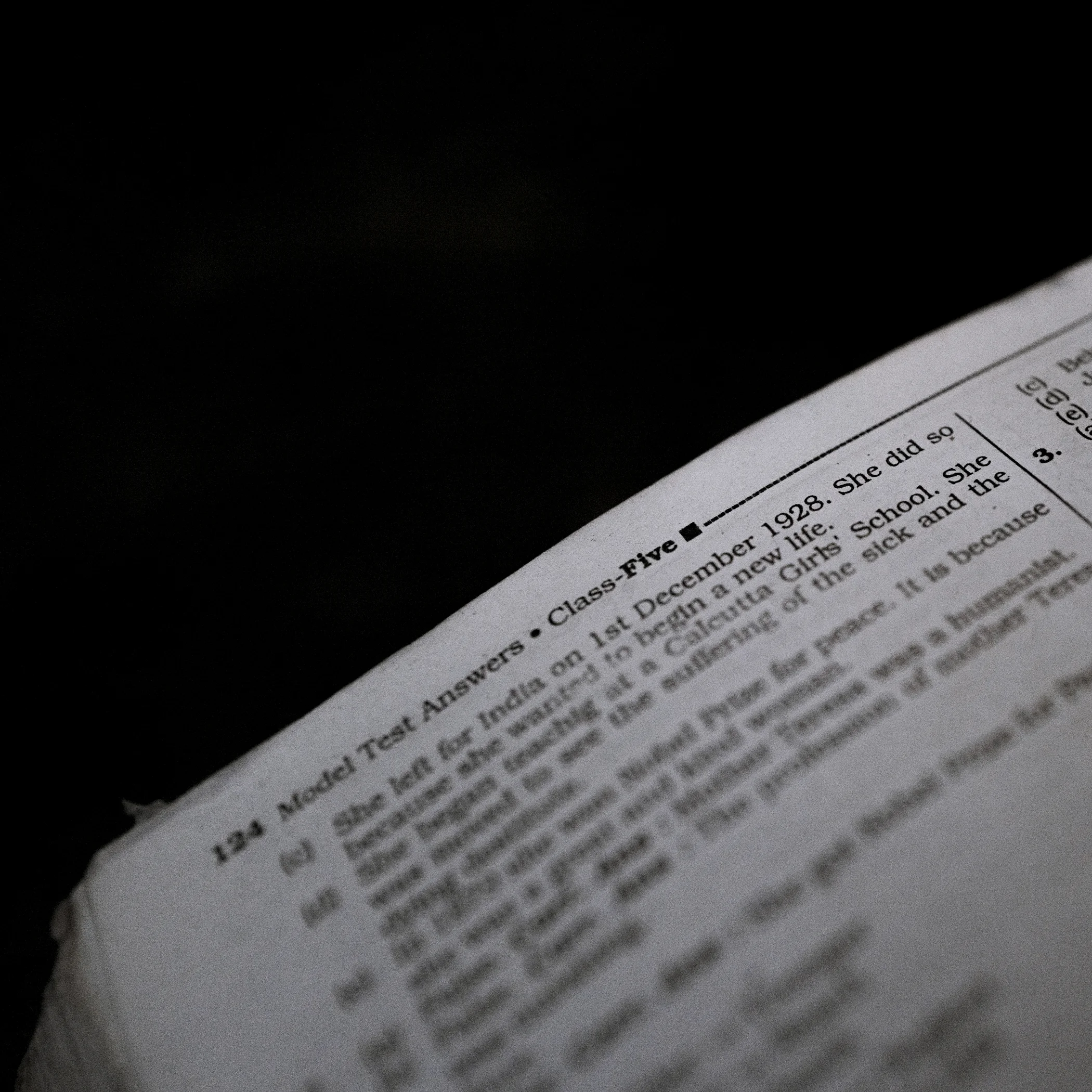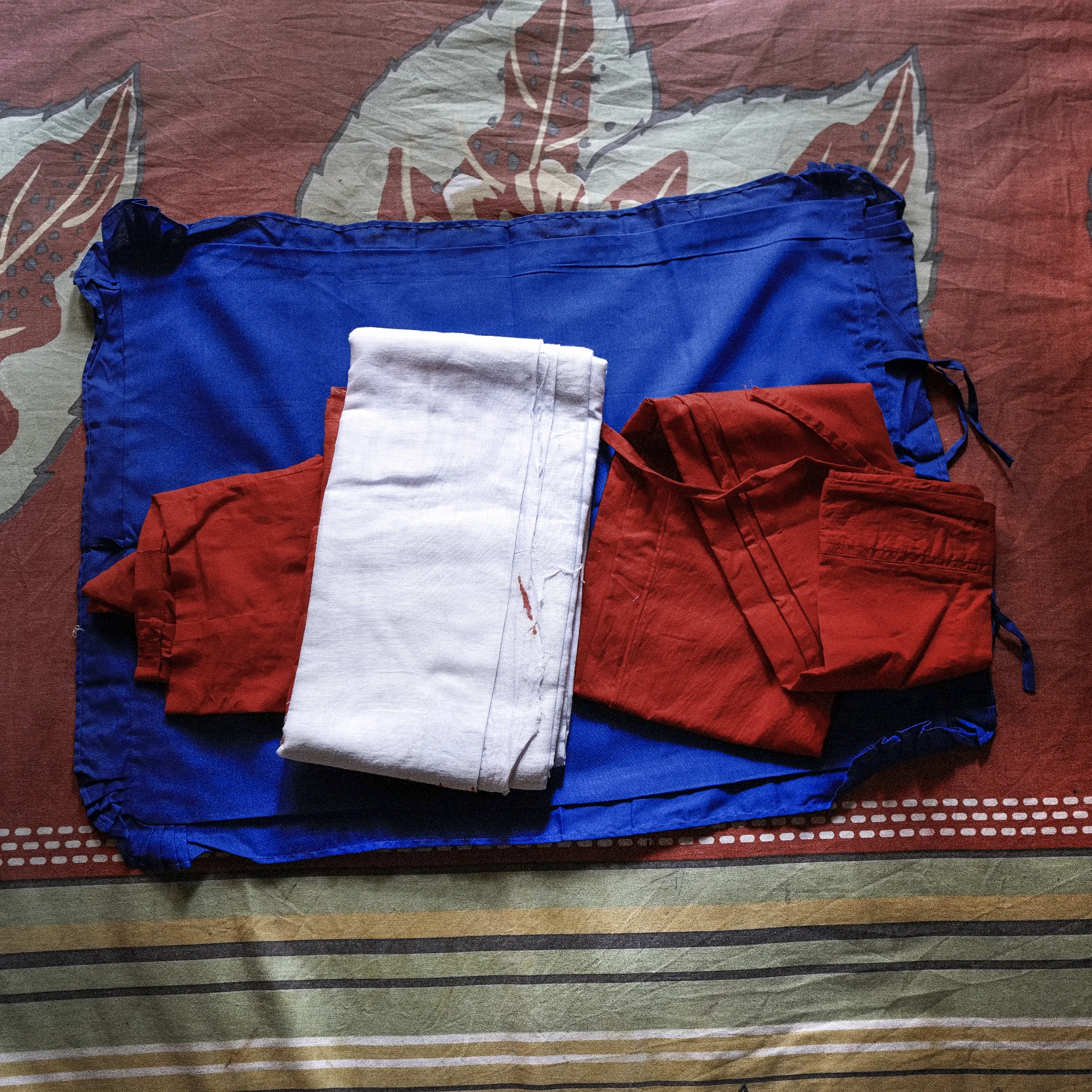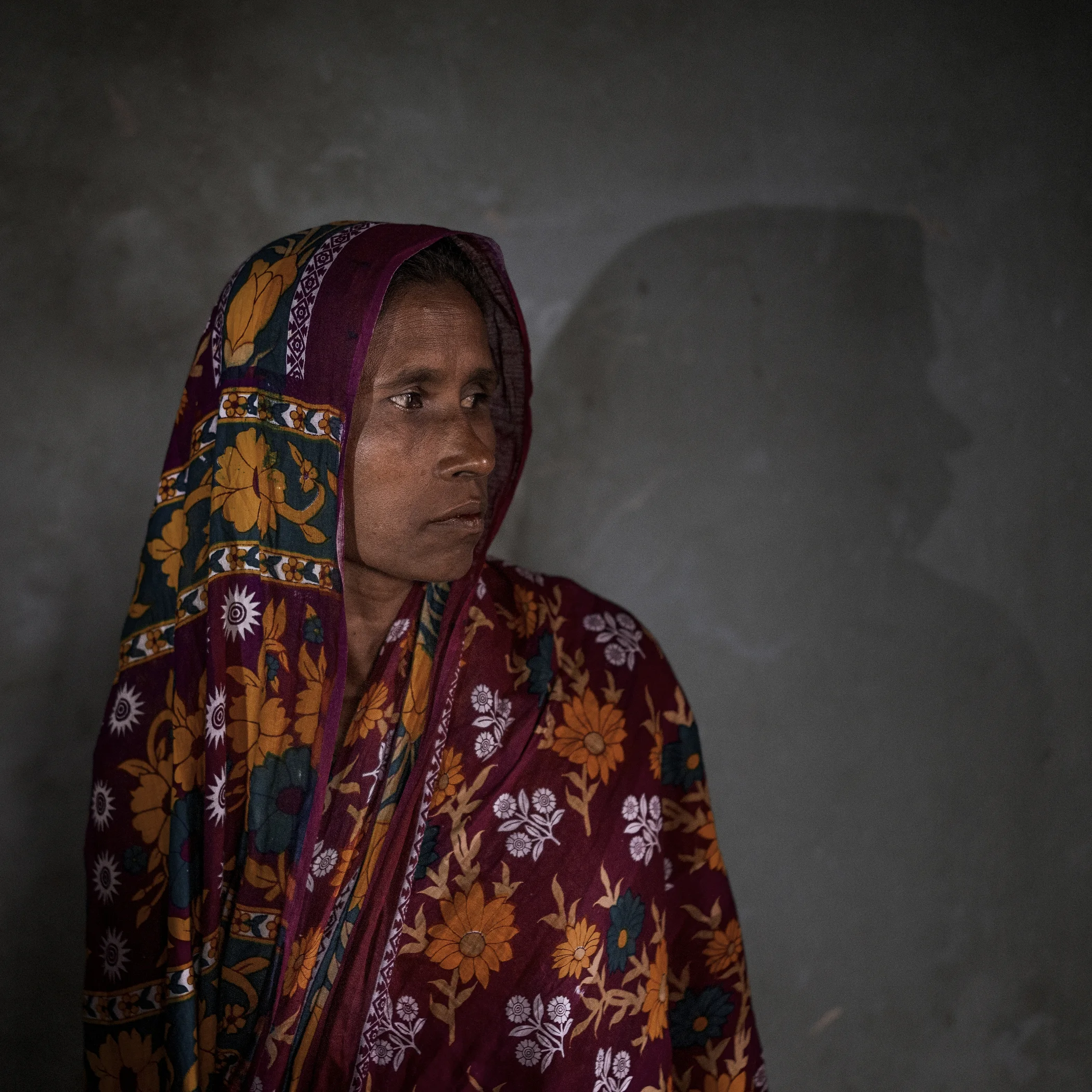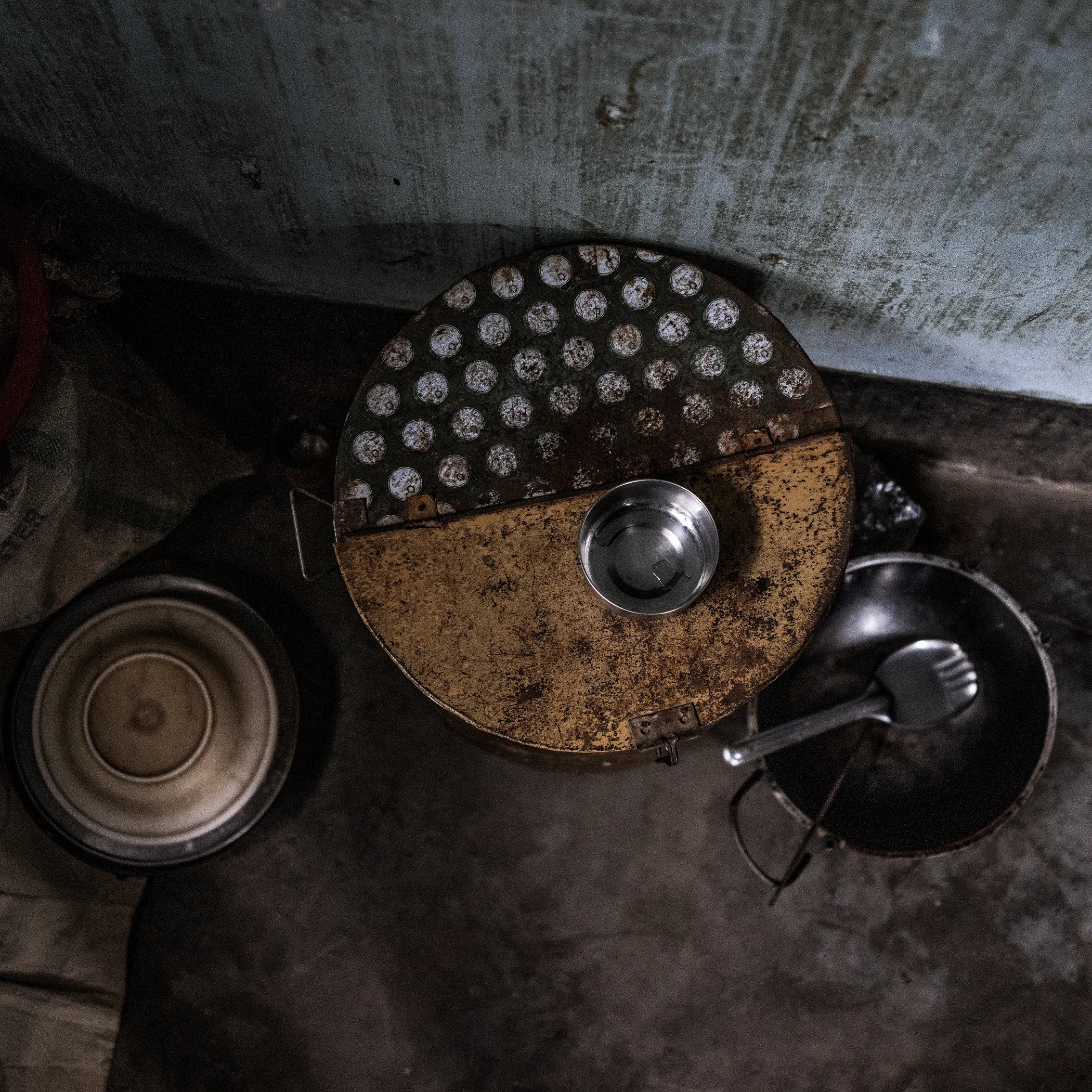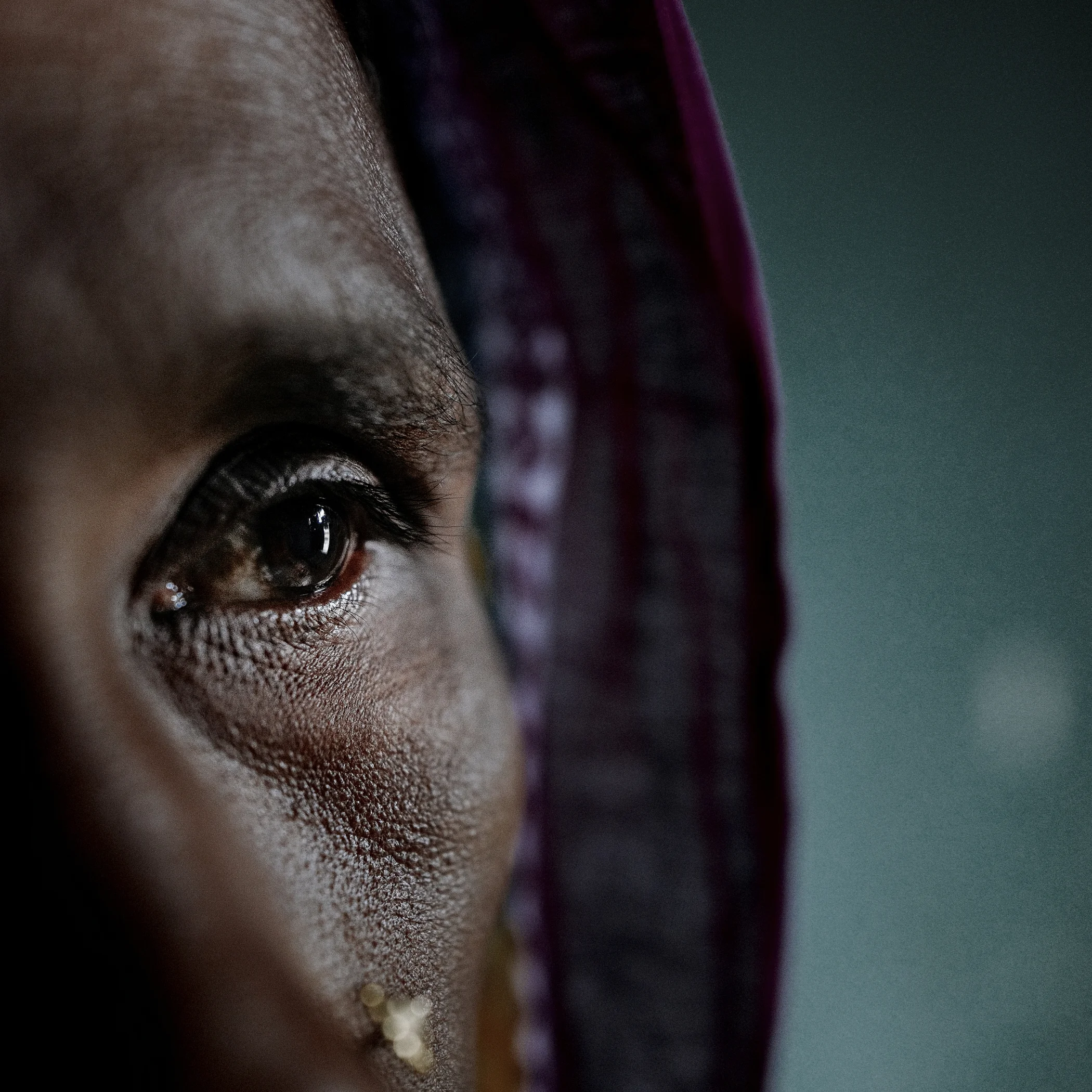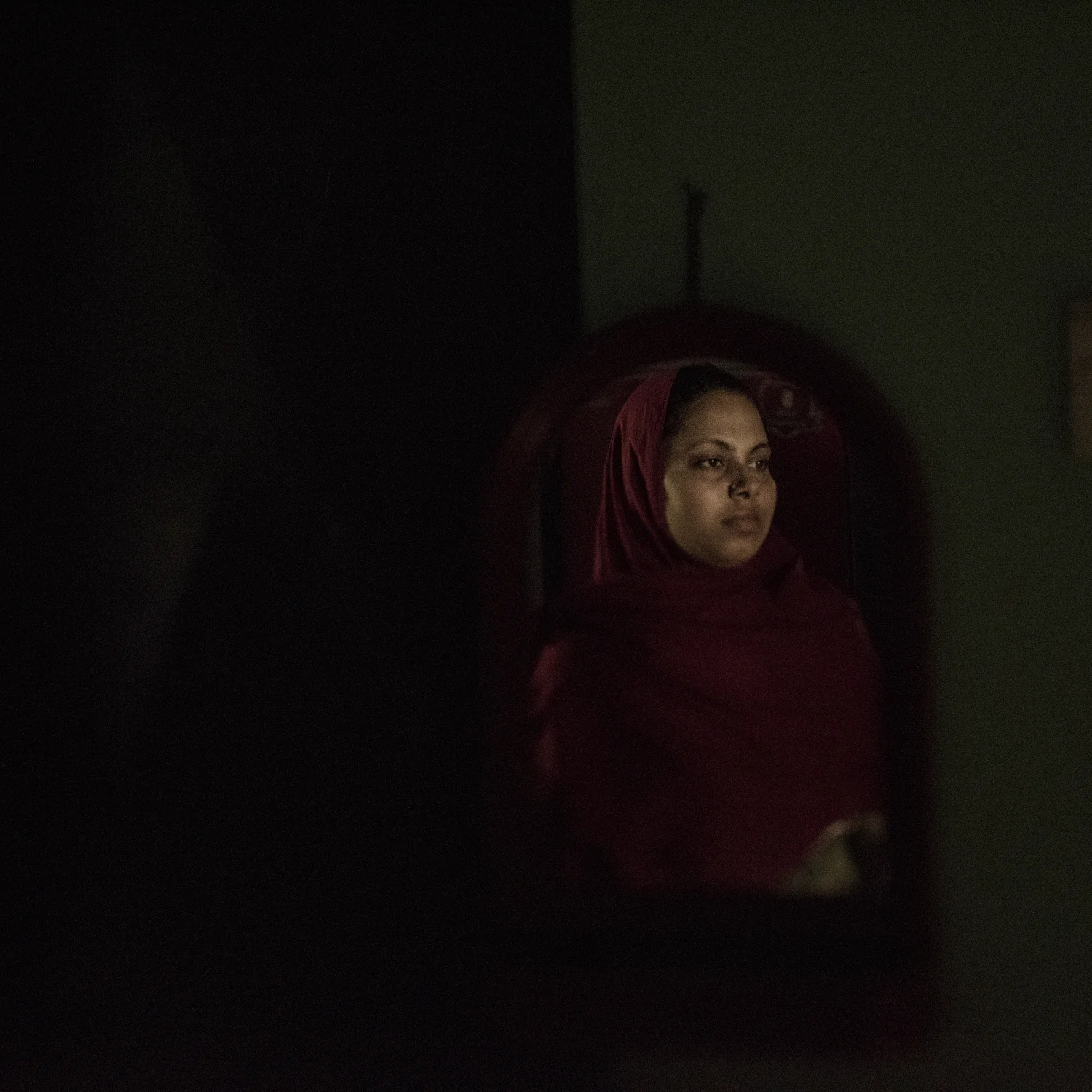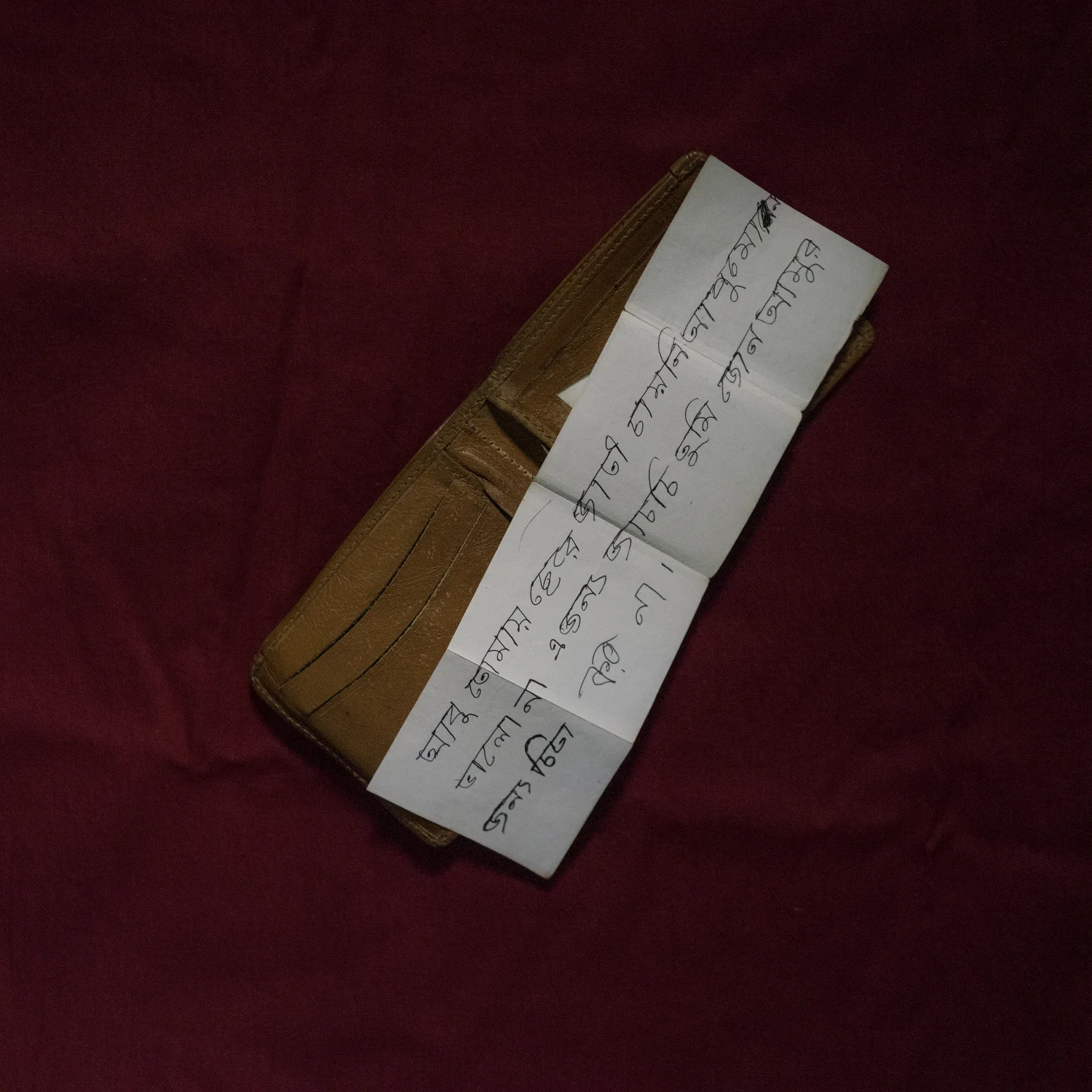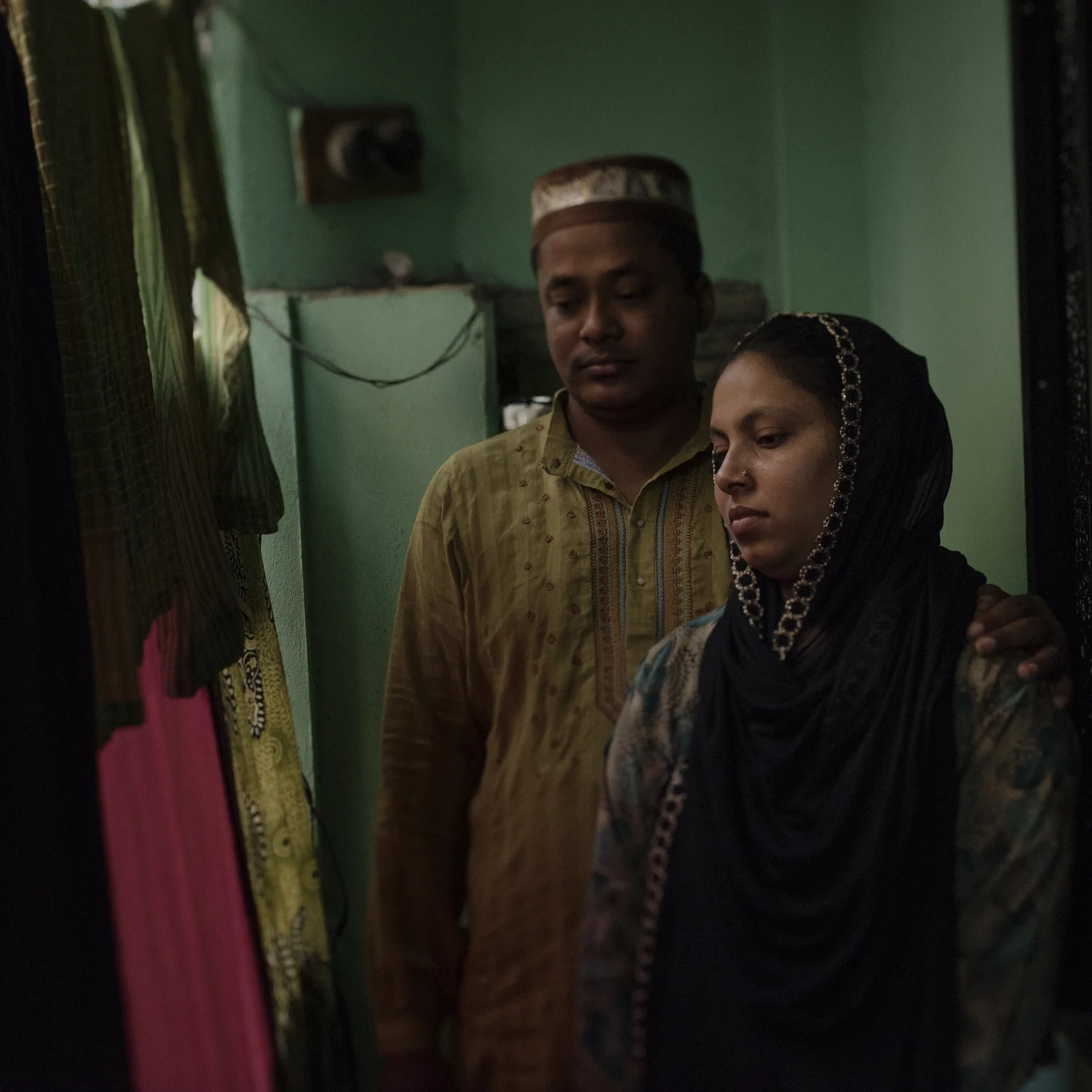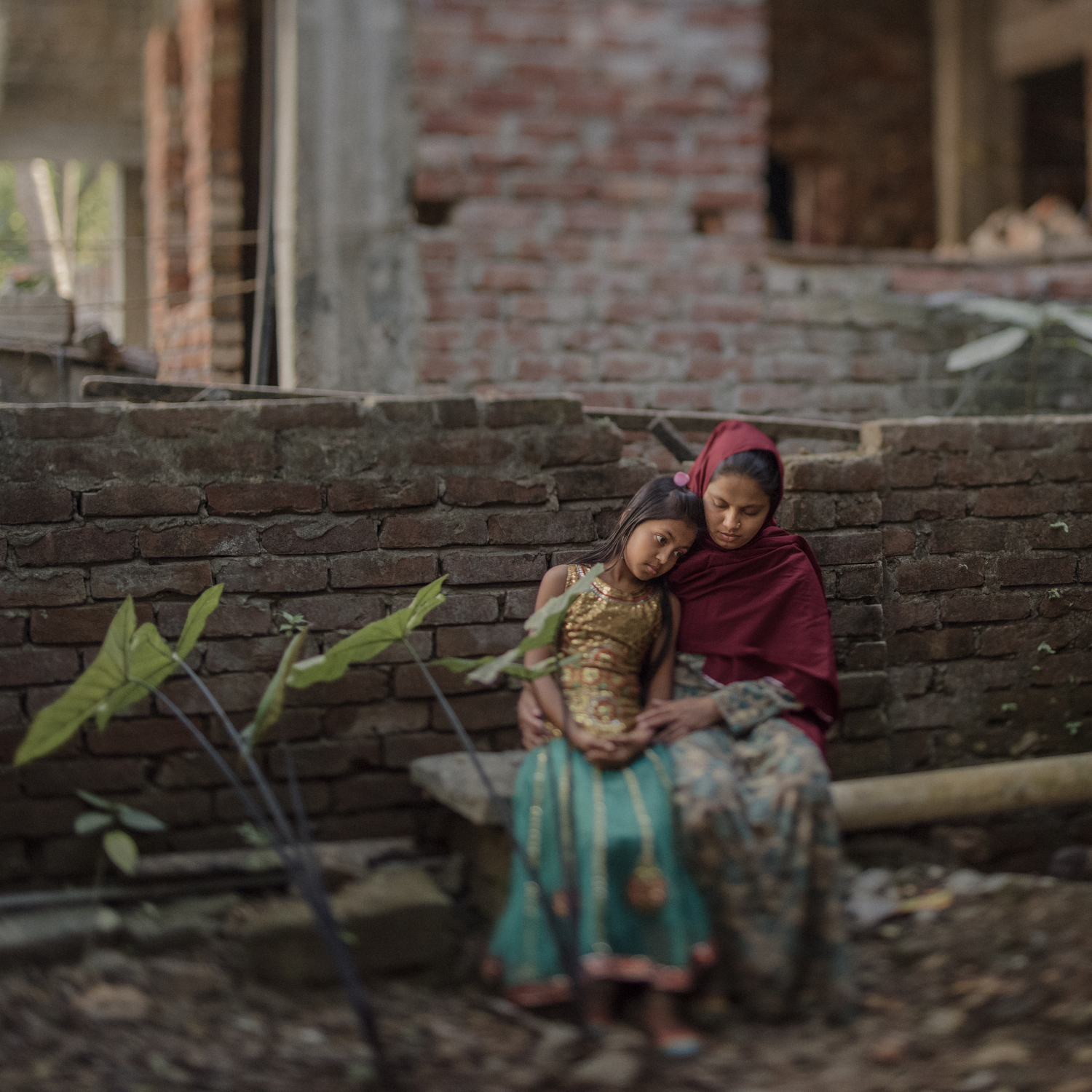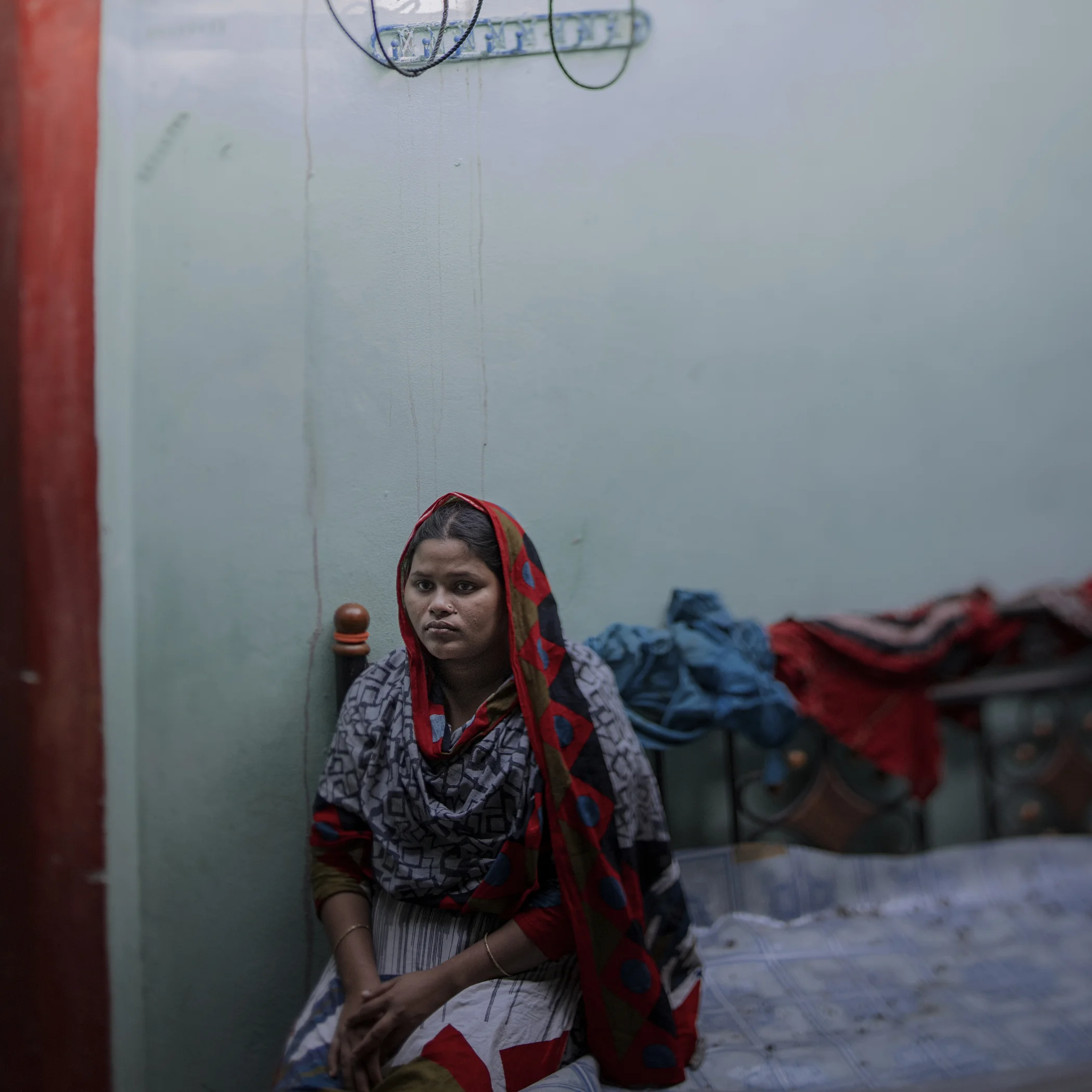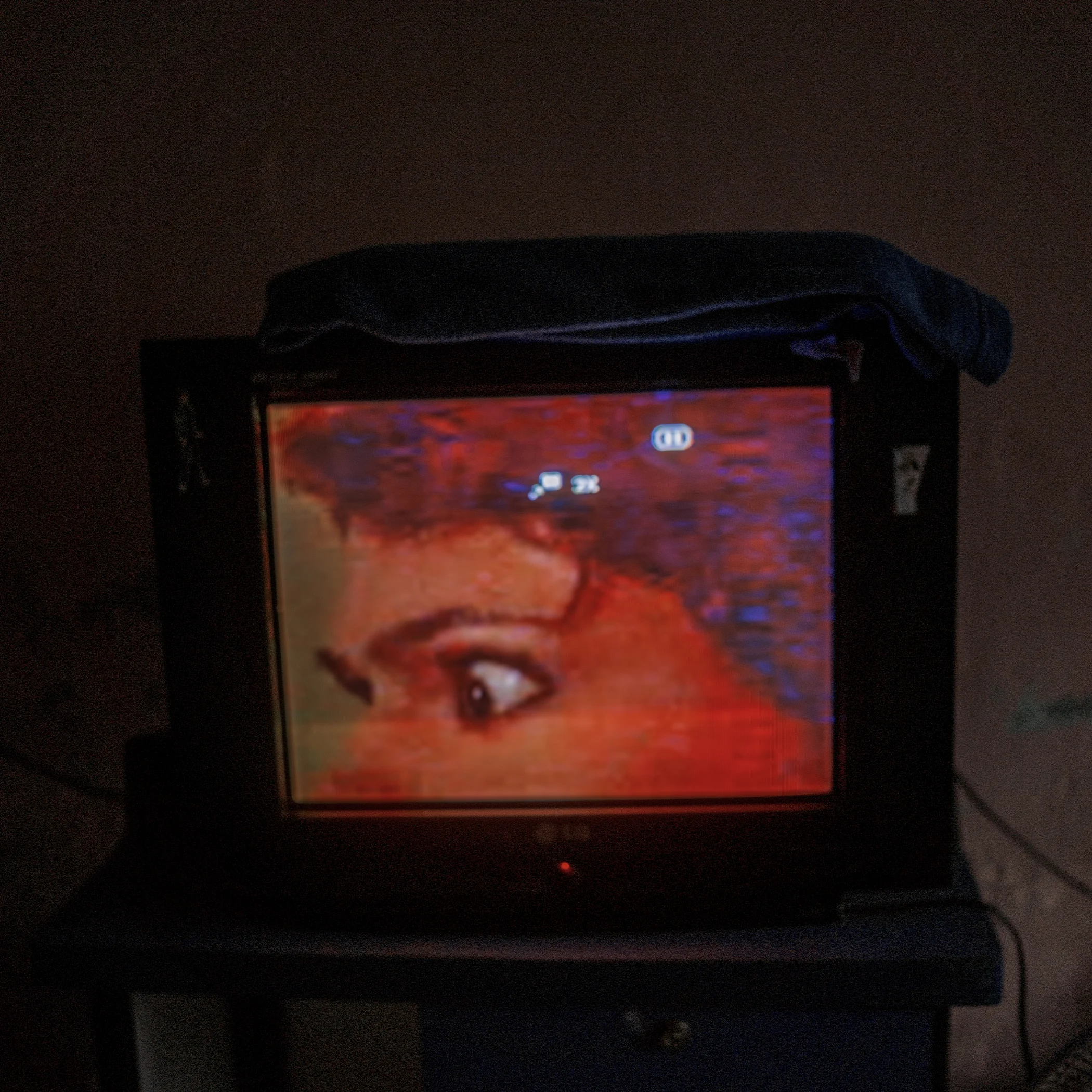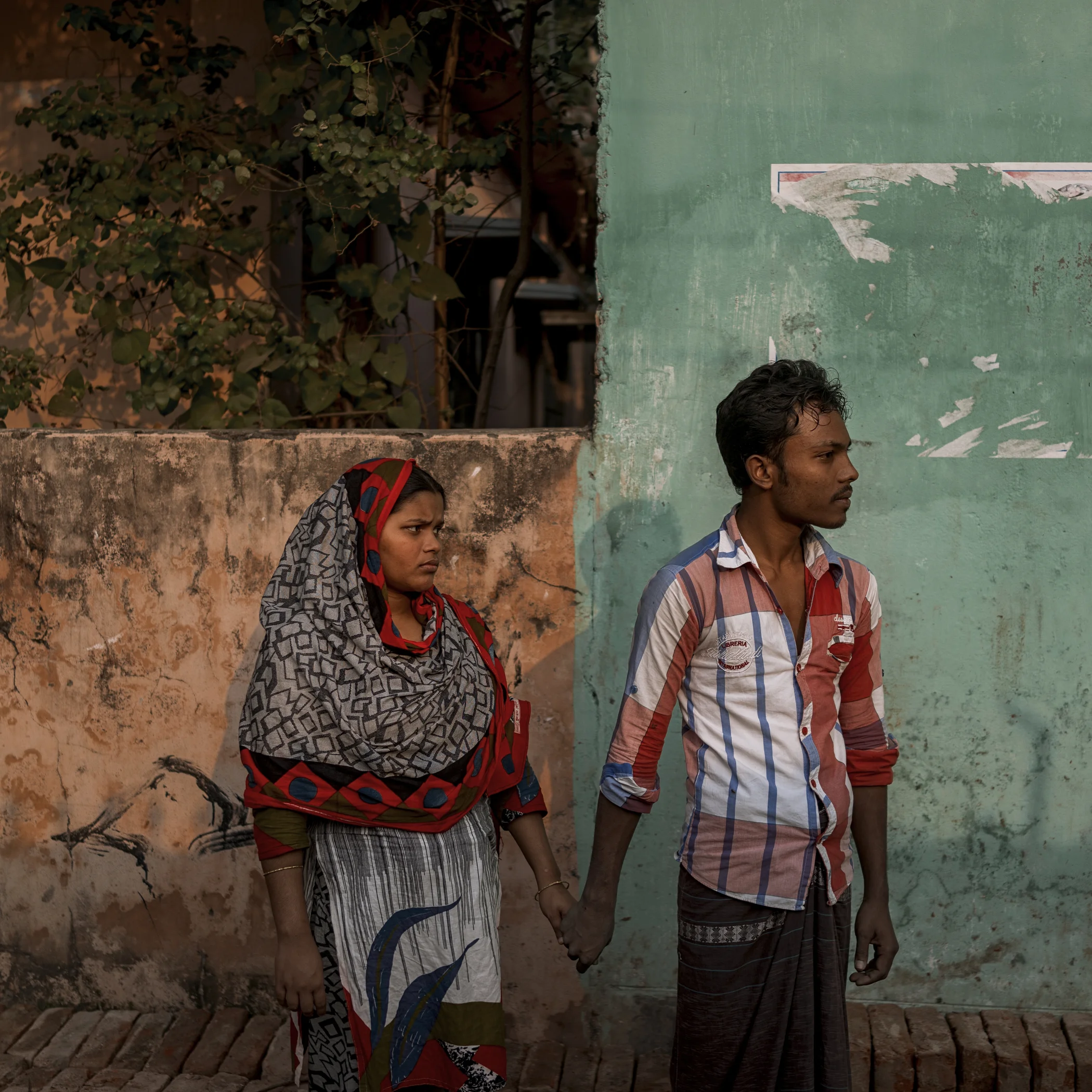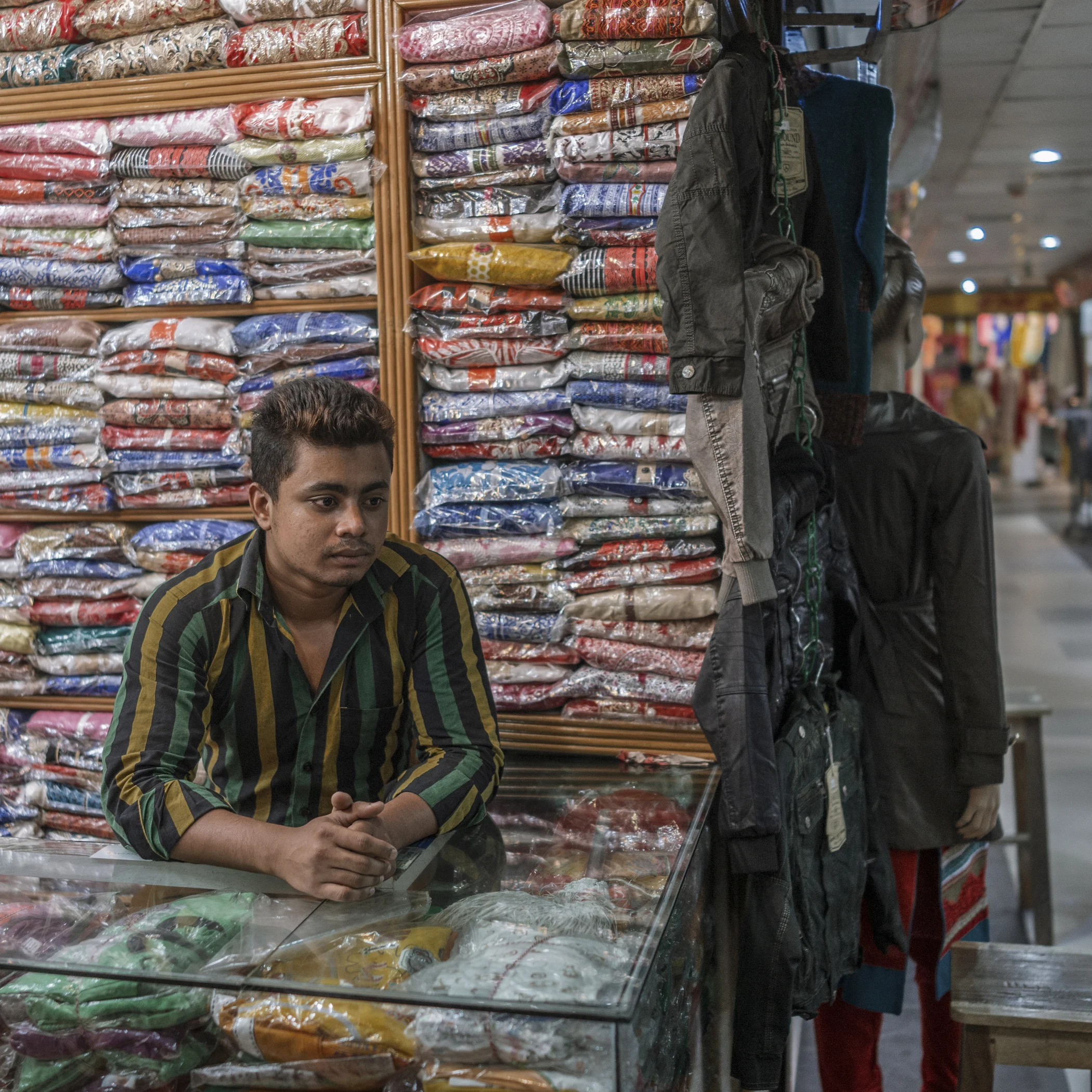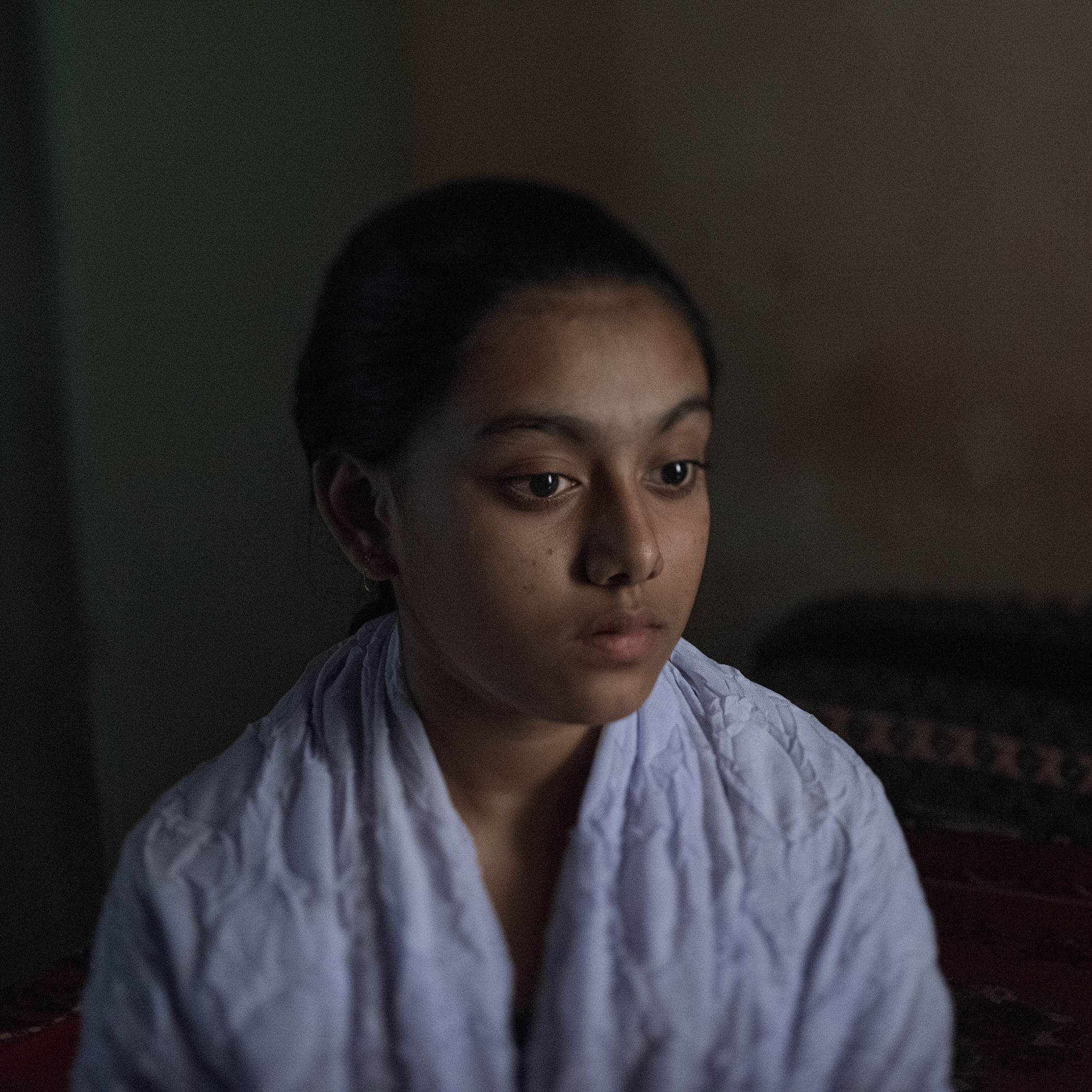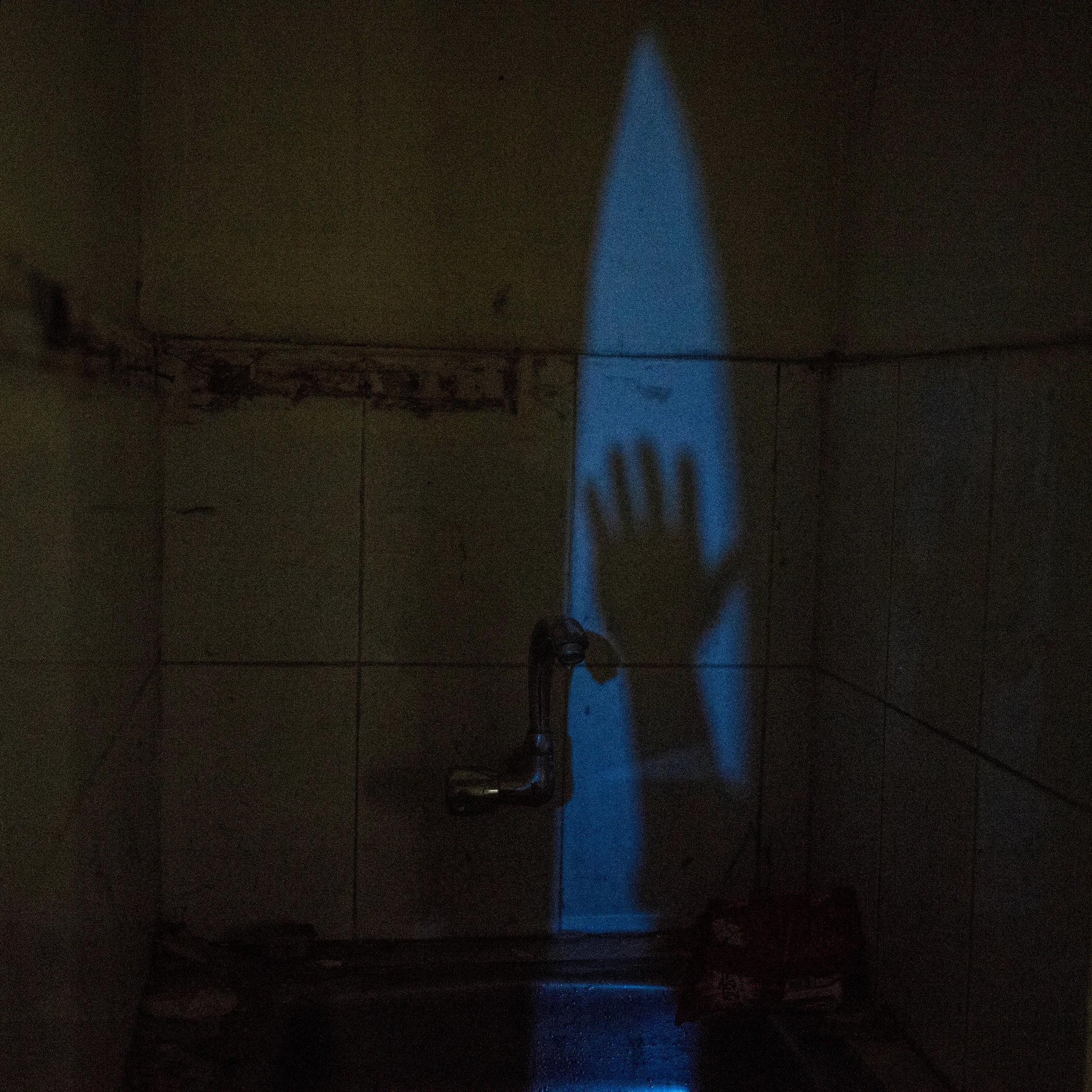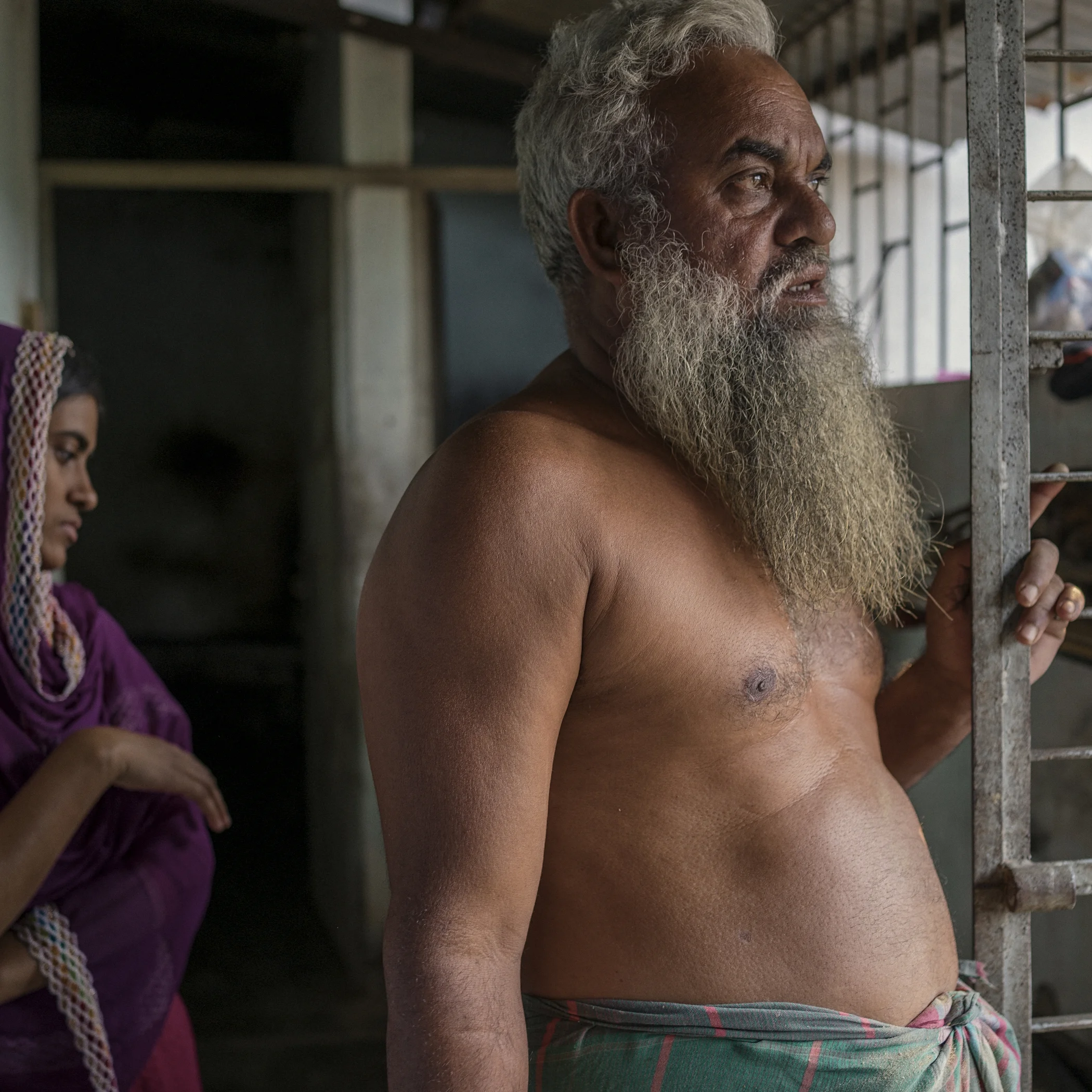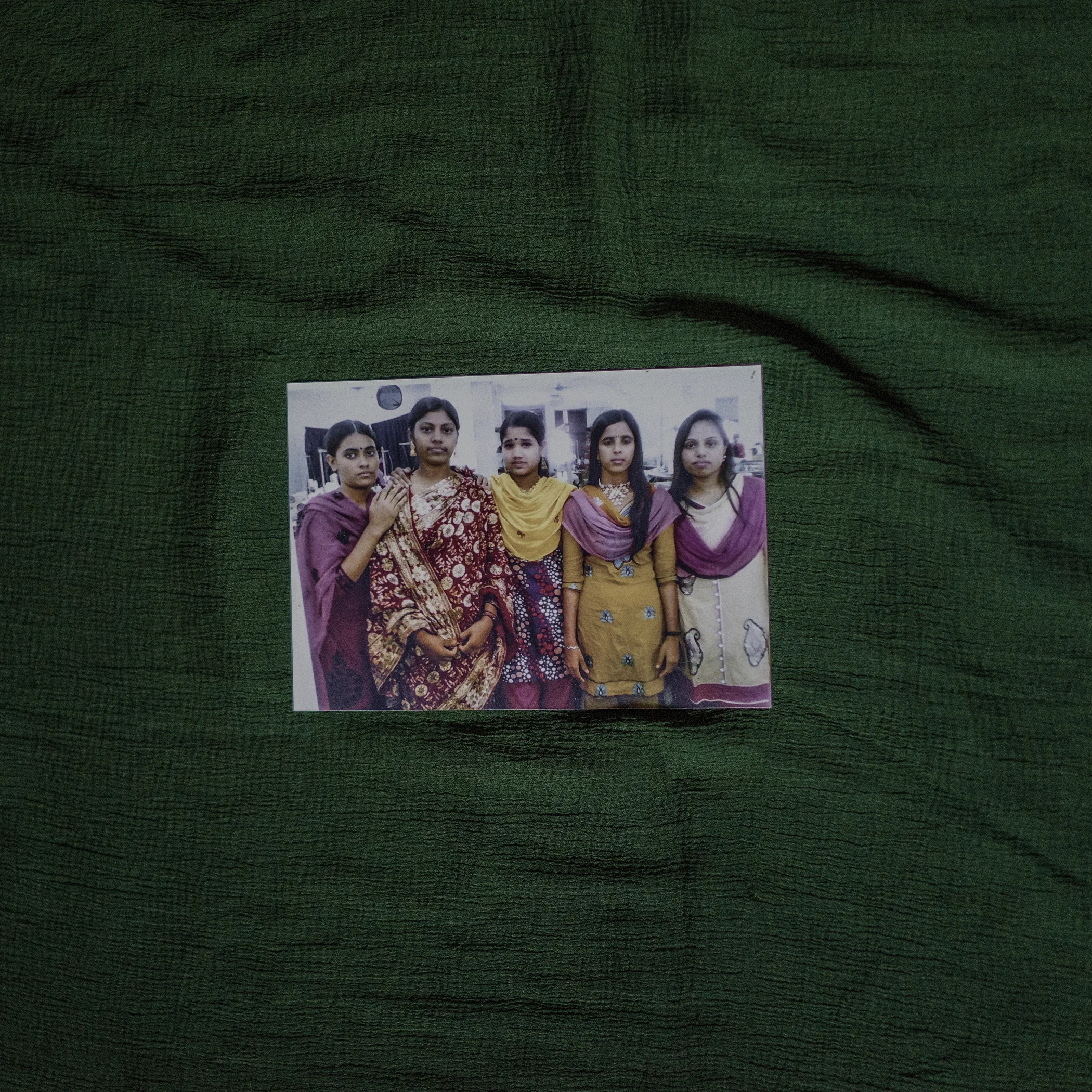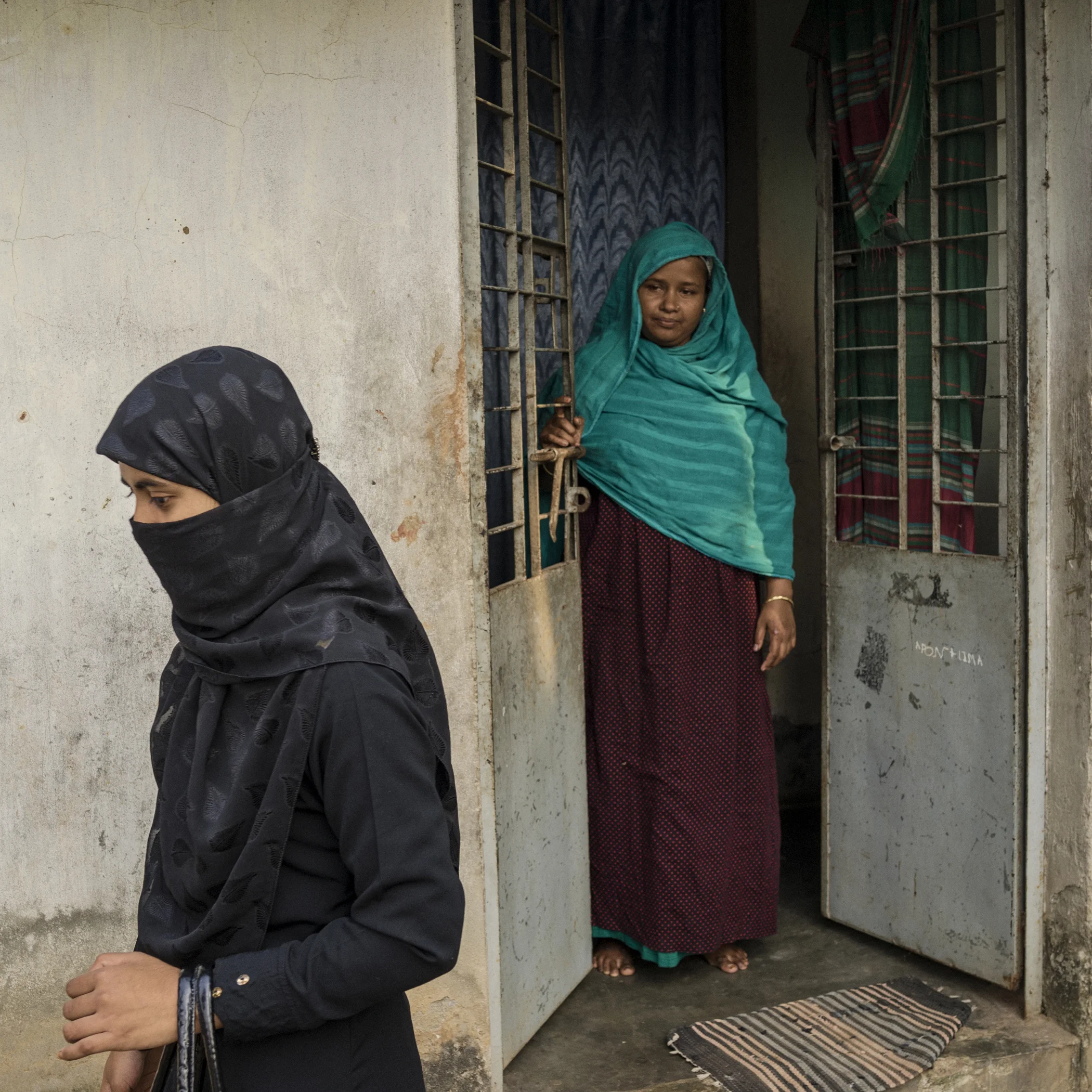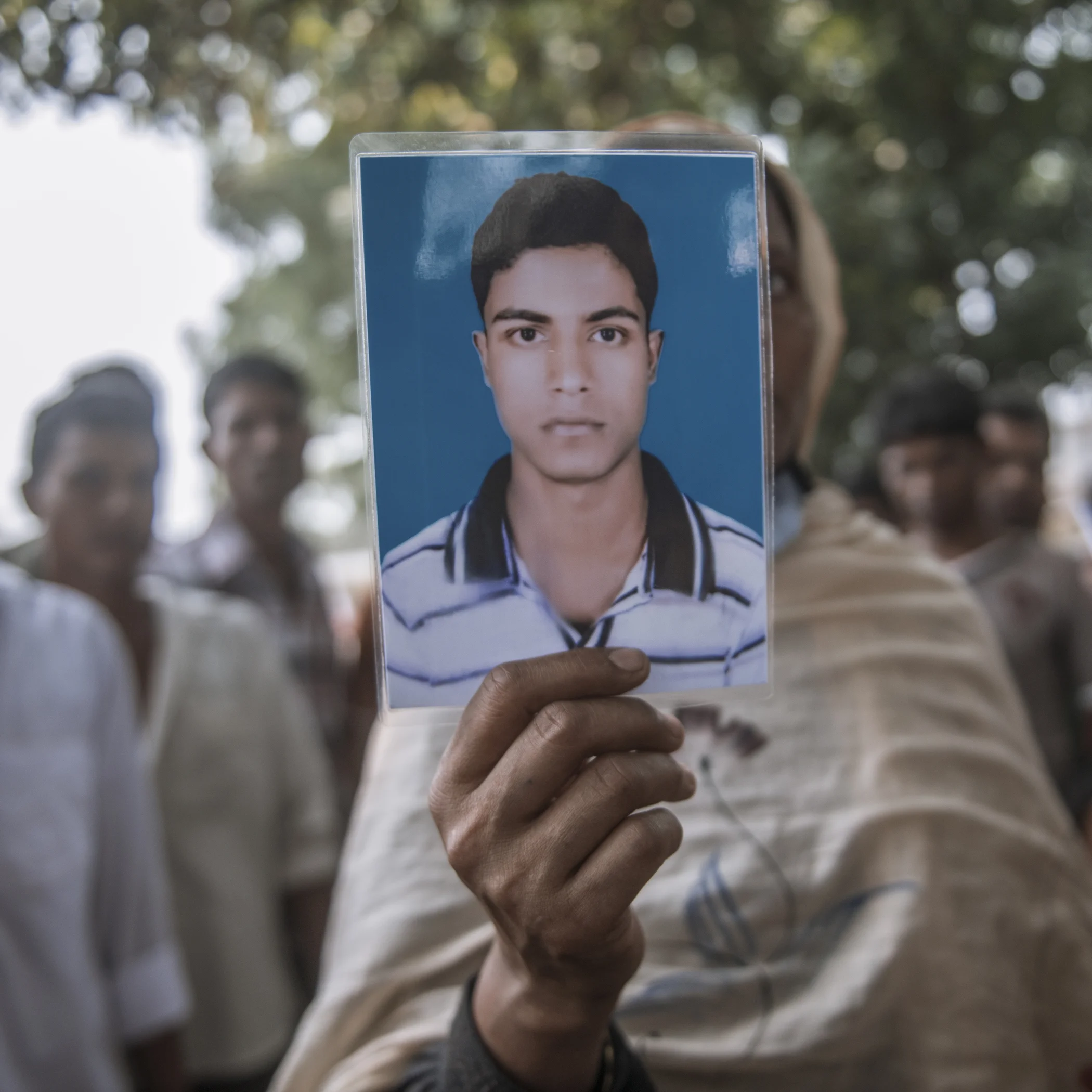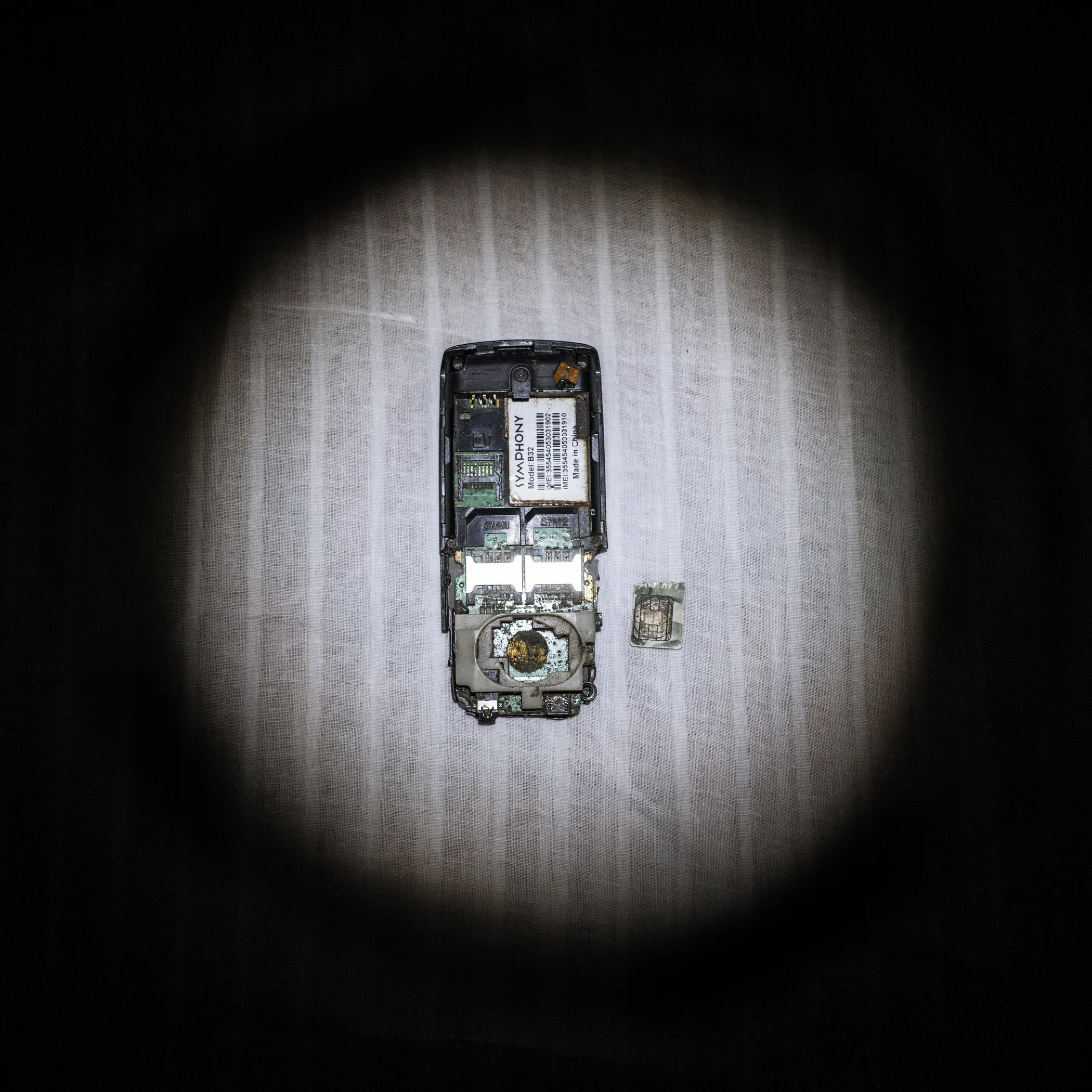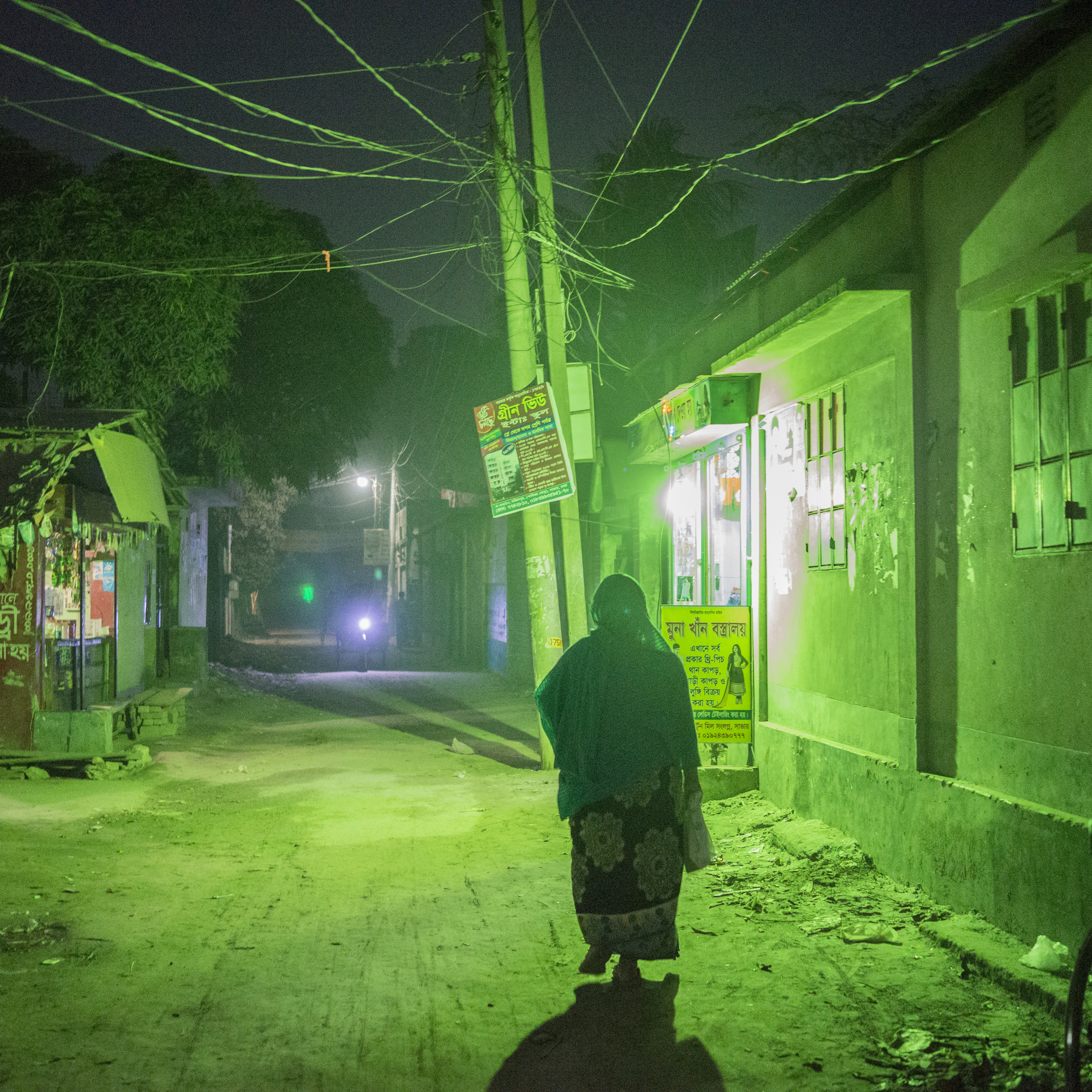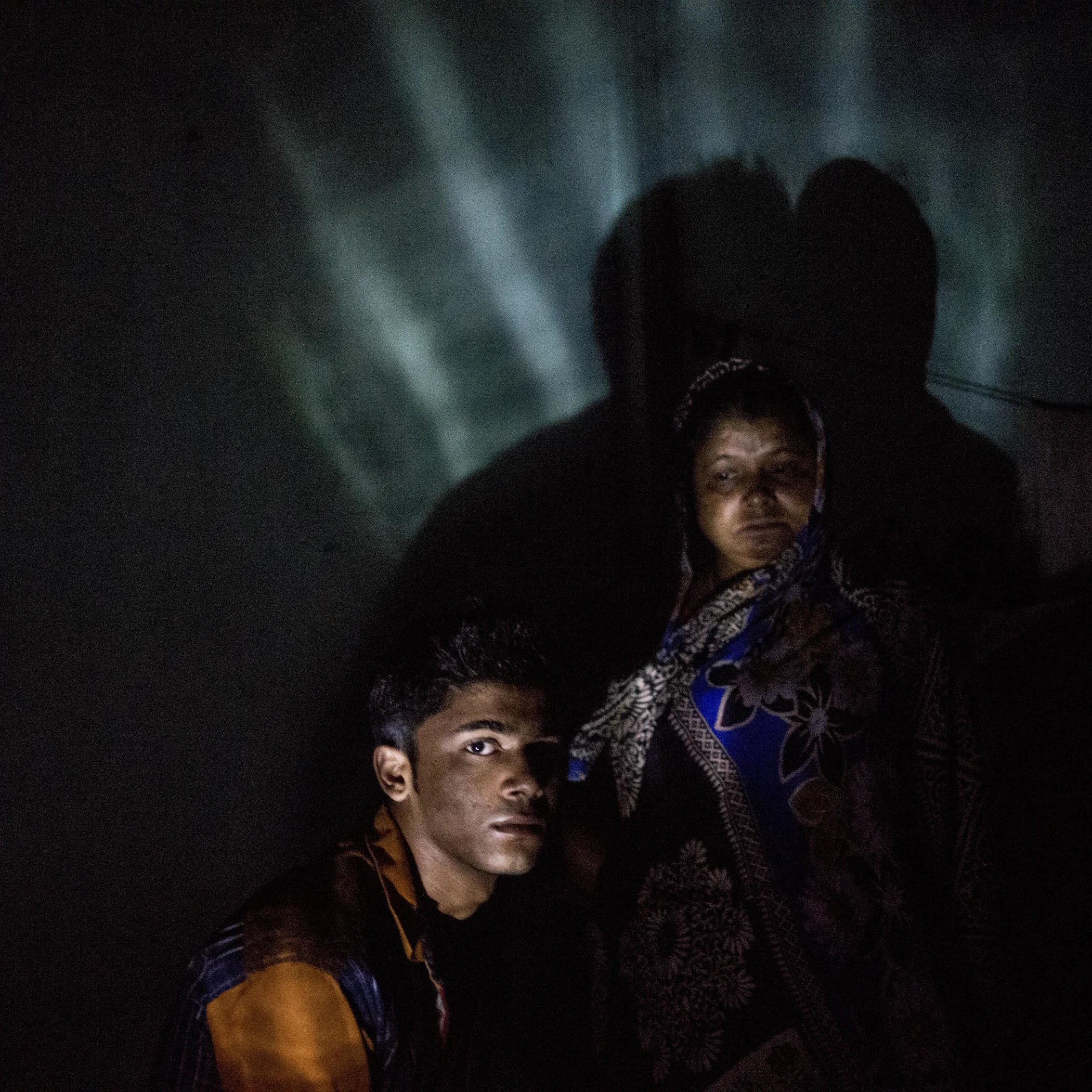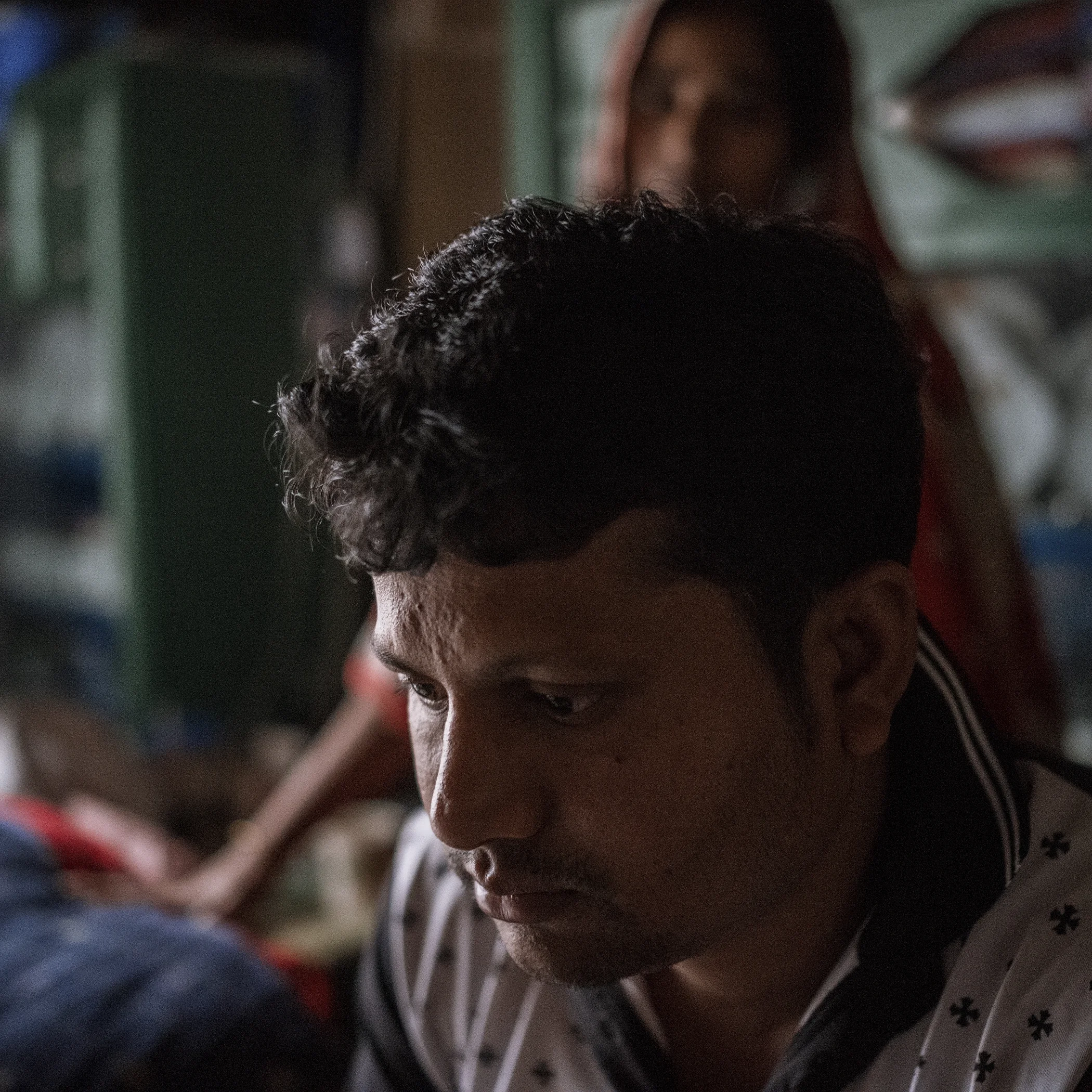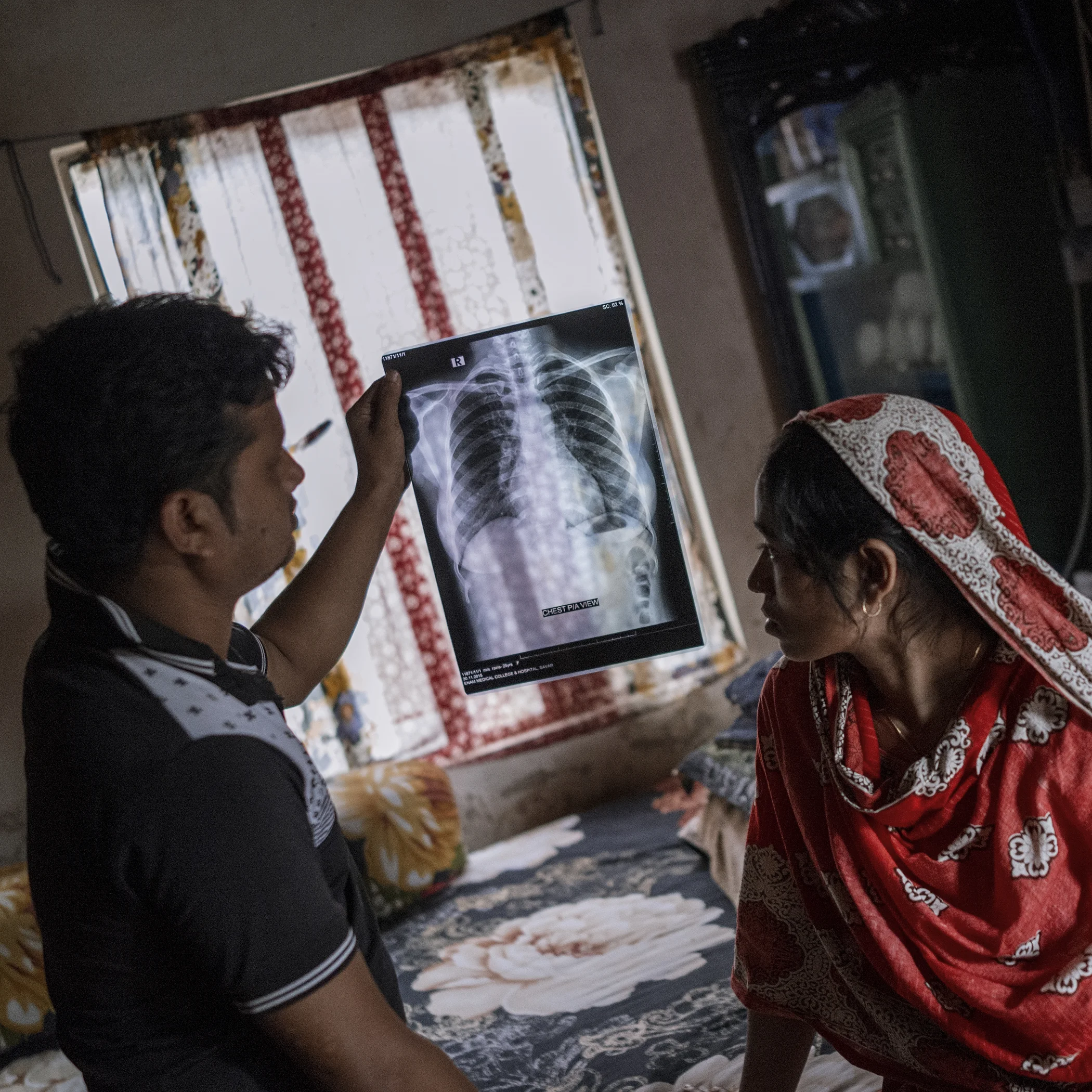Ms Nicole Doeswijk-Interview of Ms Nicole Doeswijk
Ms Nicole Doeswijk is the Garment Sector & CSR Lead at Embassy of the Kingdom of the Netherlands in Bangladesh. She is working with local RMG sector closely. From her viewpoint there are different players here and all the players have their interest. The thing is because we have all these players, it is also important to find a balance between all these to find a balance in interest in order to create maintain, transparent and sustainable garments sector. The extraordinary thing she saw here is happened after the tragic event atRana plaza. From that event all interested parties both locally and internationally realized that something had to happen…it was horrific. We had accident in the past and unfortunately till Rana plaza collapsed no one took those accident or safety issue seriously. The mechanism happened after Rana plaza was all the concerned bodies said we have to work together. They recognized they all have interests and they all have their responsibilities.
Nicole also said, this wave of change not only affect the producers but also swept the buyers and consumers. They also recognized this issue and got to know it is time to change the behavior and needs to take action. She believes no a day consumers are more aware from where their clothes are coming from, who the manufactures are and what they cost, buyers are getting increasingly more aware than before. This needs for progress, transparent and sustainable change takes time. Still a lot of buyers want to collect products in cheap rate, it is a regular demand. After Rana plaza incident all conscious bodies raised their voice for sustainable environment where products are manufactured, with respectful labor rights and working conditions. Nicole considers many steps have been taking, already prior to Rana Plaza some steps were taken and after Rana plaza in context of Bangladesh factories have been inspected and all these factories which exports garments to Europe and USA are being inspected. Now the authority and policy maker are now in a position to know whether these factories are safe or not. As she said, “The next step is in case they are unsafe how to improve these factories but at least we know now before we did not, we did not have even any access, we did not have any list of all these factories. So, the progress is coming slowly and also in Europe the European Union members said, they are taking responsibility. For instance, in Netherlands the government is taking responsibility and developing their own action plan on how to improve the government value chain and in broader the textile chain from cotton to get into the consumer and they established all kinds of working groups in Netherlands with all different issues such as child issues, environmental standards, labor conditions- these topics not only referred to Bangladesh but also to all countries the state imports garments.” Nicole feels very sad and unfortunate that Rana Plaza had happened but at least we can draw lessons from it and actually starts improving Bangladesh Garments Sector. For Bangladesh scenario Nicole suggests that accountability would be the keyword if local stakeholder’s wants get rid of this type of occurrence.
Written by: Imran Firdaus
Hasmik Matevosyan
Fashion and clothing is the part and parcel of our daily lifestyle. Around the world a lot of brain and mind are working for this sector to offer extra-ordinary offer to consumers to present them with style in front of their respected society. Beside fashion designers, merchandisers, producers a group of people are working, researching about the prospect of the industry as well as for the consumers too; not only that they are working on how to create fashion without pollution and how to sustainability and fashion can be combined.
Hasmik Matevosyan is one of them who think about these issues. She is a fashion researcher and designer. She authored a book titled ‘Paradigm shift in fashion’. Her vision and mission is to improve the fashion industry. As she believed, “I’d develop the solutions which make the fashion more profitable where paying fair wages and saving the environments; and where also offering the attracting cloths to the customers in a kind of win-win situation. For that goal after doing five years of research where I looked first of all into every step of fashion chain, into basically what is fashion and the fashion communication including psychology, business modules and other design disciplines.” As an output of the research she developed a new design system and a new business module that helped to design cloths that really matter and actually make ethical and sustainable cloths which are also profitable for the fashion brands. Hasmik showed in her research that today fashion industries do thirty percent over production now a day. This thirty percent of finished packaged products never sold. Yet another thirty percent is only sold with discount. “I believe if it would only focus on making the production more sustainable and do nothing about the design that would not really solve the problem. So first of all we need to solve the 30 percent over production then make the production more ethical and sustainable and then also look into recycling”- this is how Hasmik thinks we can make fashion and cloths more accessible and reuse able.
Hasmik clarifies her motivation behind the research is pro-public. Approximately 75 million people working in the industry and also they are working more than slavery. Everyone is just happy to have their cloths with style/fashion and usually nobody give a darn about this new age slavery. Though nobody wakes up in the morning and thinks I want to harm people and hurts environments. From this point of view Hasmik digging up the sector to comprehend why that is happening. To find out the reasons she looked into the whole fashion chain like from cotton farmers to polyethylene bag companies until the weaving, knitting, and manufacturing of the cloths, transportation and shops. After dissecting the scenario she found that there are 3 main stake holders in whole fashion chain. So, who are they? Hasmik considers these are consumers, fashion brands and manufacturers. As she explained it, “You have consumers who actually bring money in. If there were no consumer nothing would run. You have fashion brands that come up with the idea of cloths they create. They also make the decisions about the price, manufacturing and all these things. And the third one is one of the most important is manufacturers. If there were no people to make the cloth then a fashion brand can think of it but nobody is going to produce it then consumer cannot buy.”
Those are the most three important reasons. Everything depends on money and the reason of people being harmed and more than slavery is because of money. Because people don’t put the time needed to find out the solution- Hasmik does believe so. “So I found the way which you can have extra profits be transparent and improve like each stakeholder.”
Hasmik’s research has two parts - one is the design system and other is the business module. Design system contains five steps and the goal of it is to connect the consumers with the fashion brands.
But, right now there is no connection, there is no relationship. So the fashion brands randomly design cloths and also it became so cheap to produce it. Hasmik added, “they just do it and they have very high margins on the cloths they produce. So they always earn their investments back, even some cloths would not sale. That’s the reality. They don’t know what to design.” Hasmik’s design system helps to understand what to design and why to do so. So they get in touch with their consumers. They have to test moments for the designs. For that reason producers have to have knowledge about their target demography.
Supposed a place have a community with 5000 people. On the whole they have different sizes. Say, 30 percent of them has size small and 5 percent has medium. That’s what producers need to produce. First of all they prevent over production which would be the waste of investment. They have an extra budget that can be invested in paying fair wages.
And they can put their money also using better quality materials. This is the step one.
Step two is Hasmik also developed the business modules and the business modules help to make fashion brands five times profitable and ethical. In the traditional module which we are using today is you have cloths for 100 percent of the price. They are being sold in the first one or two months in the shops. After that the price is dropped radically. Then cloths are offered with 25 percent to even 90 percent discount. If it wouldn’t get sold it gets burnt.
That’s the traditional module and Hasmik though which is a brainless act. It would be much smarter if the fashion house would sale the cloths with 100 percent of the consumer price. Next to it if they would loan cloth another part of the lower budget just like the clothing library.
And then when the cloths have been brought back to sale its second hands. But they don’t earn anything on it. “So I help them to make more money and also being environmentally friendly. And apart from these extra profits can be invested in building relation with our customers and part of it can be invested in fair wages, education even you could think of kindergarten next to the factory, doctors, hospitals whatever is needed just to improve the conditions and what they are not having right now”- Hasmik tried to explain how the producers can make profit just use their intuitions.
But, some people raise points about Hasmik’s model and wondered may be theoretically her model is correct but not pragmatically. But Hasmik is confident enough to pronounce that, “It is 100 percent possible. I’m now talking to fashion brands. I introduced the whole fashion concept last year October and now it is July 2015. I am talking to couple of big brands for whom it is not possible to integrate right the way. So they need to serve with very small collections, pilot collection to test it. Step by step they are designing now. The way I suggest them to design their cloths. And when we are talking about starting fashion brands that means that exists for one to five years. It’s very easy for them to switch the module. Because I’m not judging them I need to invest the money.”
From fairground she is helping them to save money and to improve their image to be more environmentally friendly and to have a fact based on which they can produce cloths.
“If you want to change something in the world you have to offer the people who actually have to change their behavior something that they want. So, I developed the design system and the business module in the way they answer, they demand and they need. That’s why that is so attractive to them. And to make sure that is being applied soon. I’m gonna give all the knowledge for free. They are willing to try the pilot collections”- Hasmik is hopeful with his action plan.
By nature every new born concept has challenge of being succeeded that is also applicable to Hasmik’s module. The only challenge right now she is having is her module is not fitting in traditional way of how things are going right now. So, as it takes a fresh starts, in the beginning her research module/plan needs time to roll out properly. That does not mean Hasmik does not have any solution for that situation, “there are actually two solutions. One of them is starting designing earlier. The second one is building relationships with the shops and explaining them why cloths are going to be later.”
Generally everybody gets panic when they have deadlines. But if a fashion brand would have a direct relationship with the consumers it does not matter if the cloths are being offered 10 days or 12 days later. It’s as long as they know why.
“When you have a relationship you know that there is trust, there is added value. Because the fashion brands listen the frustration you are in. They have listened what you need or what you cannot find in the shops and they are going to offer it to you. Randomly just designing thing without knowing what you want or what you don’t want. You have already connection with the brands and you already know they are doing something special for you, it’s okay to wait”- Hasmik thinks ‘trust’ is the keyword to modify the regular scenario.
In comparison to the fashion brands that are going to be very fast, they are not going to offer quality. Quality does not have to go with high price. But getting cloths within affordable price is the habitual demand from the consumers. That is the pickup line for the fast fashion producers. Fast fashion is the cloths can be produced fast like in two to six weeks. The faster are the better. Here comes another important point that is customer’s desire. Hasmik explains, “When I am taking about the desire of the customers it means that you have three different fields of desire and need when it comes to cloths. As a consumer you have your own budget. You have your expectations for that money you are going to pay. Then you have physical needs like feels on skin or the feel in movement, comfortable all these things. Last one is psychological motives which are actually the whole fundamental part of wearing cloths. This makes you more attractive, not being judged by others for what you are wearing. If a fashion brand has relationship with the customers they would know the customer’s need. Customers are going to know that this fashion brand has answer for them. And then it’s not a problem. Because you know that’s something I want and that’s something I don’t want.”
Again, fast fashion cloths also have a lower quality. Usually the waged are not fair. That’s why it’s so fast and so cheap. Hasmik believes that is very well possible to produce fast when producers have lower quantity to be produced. So that is 30 percent less cloth needed to be produced. So the fast production can stay.
Hasmik not only thinks about customer-manufacturer relation but also about workers. From her observation, the reason of the wages is not fair today because the business module of the fashion brand is wrong. It is based on very high margins. What they are doing right now is they economize the production expenses and also raised the margins of their profits.”
In her business module she helps to not get the over production for the investments that don’t need to be earned back. Next to it she also said sale in 100 percent of the price. If somebody doesn’t have the money to pay they can borrow cloths for a very low price like 2 euro per day or 20 euro per month. Next to it if they do not want to borrow they can buy second hand with discount.
“So I make affordable high quality cloths to everybody. It’s receiving a huge discount. They are receiving in a different way of being able to wear the cloths. Either they still buy a new cloth with the 100 percent of the price or they can borrow cloths with the subscription or they can buy second hand cloths with discount from the fashion brand. That’s going to be fast fashion in couple of years”- Hasmik can feel future through the behavioral attitude of consumers and manufacturers.
In recent times the cruel example of fast fashion is Rana plaza incident. Hasmik knows about what happened there. Her research was done prior that incident though. She thinks, “a lot of people suddenly realize something is wrong. They are not completely look into whatever the wrong is. They have to pay the attention. I also heard after Rana plaza more fast fashions have been sold and I do not know how it works psychologically…They think it is really harsh. But they have consumers; I am talking about consumers and also about fashion brands. They know what happened and it is harsh but they don’t feel like they have any power of improving it. They feel like it is the culture and the situation in that country. So there is nothing we can do about it. If I wouldn’t buy that cheap T-shirt nothing is going to change in the world. So they don’t see the power.” Hasmik Matevosyan believes if we really want to change the scenario and turn the fashion culture tendency more into sustainable and eco-friendly way then we have to be act more aware and ultimately that will change the industry’s orthodox understandings.
Fashion Library (A Solution)
Every road leads to destination. The road especially in road trip sometimes people follow the familiar course of path and occasionally some people wants to discover new trail. Four years ago Elisa Jansen, co-founder of Lina, the fashion library and her friends went on a road trip. Though they roll on a familiar course of path by vehicle but psychologically they had a different trip. Every trip comes with some memories, ideas and vision about life/lifestyle. So, that happened as well with Elisa and her friends. On that very trip they come up with a new idea of fashion library. The idea of establishing Lina, the fashion library popped up on their moment on that trip. The main goal of the fashion library is people should consume less and think a little bit better before buy something. Fashion library is a place where anyone can borrow cloth(s) and after use will return that cloth(s). For this purpose public does not have to pay for the cloth(s) every time. The concept is more likely borrowing a book from a book library. Elina explained the way it works, “. The concept is we don’t only store but you can also borrow cloths with the subscription or stamp card. I think borrowing is really nice way to do it. For example, taste something before you buy it, or you can wear it for once and return it for something else. I already have business with my two sisters and it’s a vintage web shop. We all are always busy with the reuse of clothing and how to innovate it and make it really fun.”
After three years of researching, planning, taking opinion from different group they opened the library in 2014’s December. At first the plan was selling cloths. But, they found quite handful of libraries in Scandinavian countries. So, they contacted with them and took contribution of knowledge from those libraries. In The Netherlands Elisa Jansen and her associates first started setup and run this type of fashion library. They are getting good vibes and feedbacks from people, as a result other enthusiastic people opened another fashion library in January. This incident made Elisa happy, “it’s really nice to see that the idea is so popular and more and more people believe in the idea we get a couple of e-mails in a week from the people all over the world who wants to start a fashion library. So it’s really fun.” Her observations imply that people like to wear a different stuff a lot. But it’s not sustainable in the way if everyone produces new and advanced. “There are so much beautiful things are ready. Why not we use them or share them that were more the reason than we looked for a books library. All we can do it also with clothing. Our goal is to have a library all over the world, but in the past 6 months we opened and we already learned a lot”- Elisa explains the philosophy and vision behind starting, running this pro-people idea. There are so many different styles and public cannot have them in all in one library. So, they thought they can more facilitate the clothing systems to the other stores. That is why they are thinking of opening a little bartender store with the borrowing system in the other stores in Amsterdam. Through this they are thinking of going more closer to the consumers, “We can provide our subscribers and our systems so we can make a whole network of borrowing points. I think that will be really nice for stores. They can do really nice things all those they have or they can taste products and if you see feedback. And for our subscribers one day they join us they get a whole map of Amsterdam with all those points they can go through and it’s really nice.” That is their goal for growing.
Anyone can borrow cloth(s) with subscriptions or stamp cards. They have three levels of subscriptions and lowest is 20 USD per month. Consumers can always have 100 points in their position. All clothing have point such as a simple tops is about 25 points and highest is 100. Consumers can swap whenever they like. Elisa mentioned, “When you bring something back you can choose something else for these points. You can also keep things in home for months; it does not matter if you pay your monthly fee. We also have stamp cards and it’s more convenient, if you want to borrow once in a while something, then you buy 500 points and we just stamps what you take with you but you have to bring it back in 5 days.” That is the difference between subscription and stamp.
The consumer group is a really broad group. It is broader than Elisa and her friends thought before they started. They have younger subscribers like 15 years old as well as ladies who are over 60 years old. It is really broad because the reason of joining is really different. They have sustainable reason(s). They like to try before they buy a closet with small budget. They get chance to experience the different styles.
One of the primary goals of this concept is lessening the interest of buying fast fashion. Incident like Rana plaza building collapse is the cruelest example of fast fashion. But current scenario seems like people are not gave enough attention about the incident. “They heard in the news but I do not know why it is just fading away from people’s memory. May be in the beginning they think oh I do not want to buy any fast fashion anymore or then it is failing and then they start to buy it again.” So they would like to keep up this discussion inside and outside of the fashion industries, because it’s not okay. It should harm no people, no animals or no nature; as minimal as possible. If this borrowing system is really well, then they will collaborate with new levels and upcoming designers.
The labels Lina, the fashion library is currently collaborating which have some like vision of them, so they think it will be a sustainable concept or something to do with their concept
Fair Wear Foundation Interview of Julliet Lee
Fair Wear Foundation (FWF) is a self-governing, non-profit association that works with business organizations and industrial units to improve labor state of affairs for garment workers. It is a labor right organization based in Amsterdam, The Netherlands. Currently it is handling one hundred and twenty brands of ninety member companies. These companies are based in seven European countries. It is active in 11 production countries in Asia, Europe and Africa.
FWF works with workers, factory owners, factory management, local NGOs and trade unions, Local government, local business association through their member companies.
There are five strategies of FWF. At first they do a country study or research about that country’s local laws, compliance support. FWF also looks at individual factories. FWF does social audits, and beside audits they do provide training. FWF directly provides training to factory management and also to factory workers. They have complain handler. Workers can call to file a complaint. They operate helpline, anyone can call them to file complain. For that support FWF has complain strategy, policy and mechanism.
Besides working with the factories and the workers and local societies, FWF works with the brands. FWF believes that international brands have responsibilities to get the way with the suppliers and factories to improve the working conditions. For this reason they look at commitment and effort of their member brands. So that is two sides they have to take care of. “And the last part is we want to make sure that our brand is transparent” - Julliet Lee, the representative of FWF explained their work flow to afterranaplaza.com.
As Julliet Lee said FWF regularly check the situations of member companies to sort out the issues to improve the condition for the workers. After the performance check they publish an annual report every year. It is their one of the responsibilities to inform the public how they are doing and what they are going to do next. FWF has the responsibility to prove their working plan in front of the people.
In Bangladesh FWF have two training programs. There are two topic of training. One is fire and building safety and another one is violence against women. There are two steps of training. One step is training to the factory management. This training is not in a technical way. This is not how to prevent fire, how to use technical things. This is the training to encourage the factory management to take all responsibilities and help them to find alternative ways to improve the condition within the own resources of Bangladesh. So basically it is to encourage them to take responsibilities. Fair Wear Foundation does not have capacity to provide the technical training on fire and building safety, they use external resources.
After Rana Plaza incident FWF hired two engineers from The Netherlands to visit Bangladesh. They developed together with our local stuff, our local auditor. The program is designed by them. At the beginning one of the engineers was sent there with our local stuffs. Now these are delivered by our local audit supervisors.
Apart from that we started this helpline actually before Rana plaza incident. In 2013 we received around 1070 calls. In 2014 we received around 300 calls and it is getting more recent days. There is a complain handler in Bangladesh. In Fair Wear Foundation we have code of labor practices. The members are supposed to print the code of labor practices with the helpline number.
Afterranaplaza.com asked Julliet Lee how the helpline works and she said, “These posters have to be posted in factories and in easily accessible place for the workers. And our auditors will check it. And the member companies have responsibilities to check the helpline number in factories. Another thing is we also give stickers and the fliers to the workers. Sticker is important, because in Bangladesh workers don’t have wallet to put the fliers in it. They can paste sticker in house or somewhere else. So workers can know about the telephone number and they can call the complain handler.”
At the other part there is a person who can speak both Bangla and English. Julliet also added, “If somebody calls her she check it. If the complain is about the factory currently supplying to Fair Wear member. Because there are two criteria to admit complain. Number one is complain has to be related to the labor issues. Number two is the company has to supply the Fair Wear member as we can handle it. We have our member companies committed. If the complain is not about fair wear member then we forward it to ngo, trade union or government.
If the complain is in our member, they inform us right away via either call or sending me e-mail. In seven days we decide to get away with member brand to tell the worker if this case is mixable. If we take the case onwards, then our member brand will first check this with the factory manager. We do not just consider the worker’s side. We also look after the factory management side. And after that we start investigation. Sometime the factory managements admit their guilt and handle the issue. Sometime the factory management has the totally different story from what they told us. After investigation we have a work plan, corrective action plan. The brand and factory management have to agree the steps. After a year or half of a year we interview to check still it happens or not.” Fair Wear Foundation know ‘change requires a major joint effort’ and they are working for reaching that aim.
Fair Wear Foundation Interview of Julliet Lee 2
Fair Wear Foundation (FWF) concern about another issue from workers perspective is minimum wages. It is their one of the human rights. Living way should be the same with minimum wages. Minimum wages should be high enough with people can live their life with this. But the government has to consider minimum wages and many things. It is not easy fot FWF to make a reasonable agreement on this issue among companies, worker and governments. As a representative of FWF Julliet expressed her view, “Basically it’s a salary that allows someone to live with family and make some savings. I can tell you for Bangladesh as example minimum wages is now 5400 taka.
Living wages according to the calculation of some of our stakeholders it should be 8000, some says 12000. This is how much workers need to live his/her life. It is true that you can see the workers have to do a lot of overtime to get 8000 or 12000 taka. More people cannot go higher or most people cannot go either. If this is lower, they cannot maintain it anymore. So now they have to work a lot to ensure the living wages.”
Stakeholders have to find how to pay for it. Of course there is some existing body such as a strong trade union to negotiate that part. But for example in Bangladesh the trade union is not active. About 10 percent of total factories or may be very low have trade union.
Those unions are not well supported as well and they are not that powerful. So in Bangladesh negotiated wages is maybe only in few factories. “So in Fair Wear Foundation we use the commitment of our brands, use the labor rights in our brands to support for paying minimum living wages. For example in their calculation we save 20 cents for outdoor jackets but it’s not so much. This amount should go directly to the workers. So their wage will go to a certain level.
FWF’s brands also say they want to give that amount to the workers in many different ideas. Now many brands have to make the budget of wages. Julliet thinks many of their brands are willing to make effort for living wages. But the process is not easy to make. Because the factory management might not be that willing to make that happen. FWF think paying more is a good thing and thought it is easy. But there are lots of obstacles FWF have to overcome.
“In beginning there were lots of discussions, negotiation on living wages. Fair wear Foundation said let’s not spend so much discussing on 8000 or 8500 taka. Let’s start doing something. If we can find the way to make it real then every step we could make different for the workers. Academic research said us to pay 10000 taka and Asian Floor Wages said 12000 taka. The local trade union in Bangladesh said for 8000 taka. We listed all these. So companies can look at these. This is the thing stakeholders want. If the company wants to take step to follow the wages of Asian Floor Wages then that is very happy notion for us. If they are willing to follow the local trade union’s asking or academic research’s wages then we also welcome”- this FWF is currently negotiating with member companies about living wages for workers.
Fair Wear Foundation is also concern about building safety. Because of not only Rana plaza incident, they think prevention is always better that remediation. After Rana plaza FWF looked into their audit method. They think their auditors or audit method don’t have capacity to look after the building safety. For example, how many fire exits or fire extinguisher there are, they can check that. But the load capacity or cracks in the building are beyond FWF’s capacity. “Our auditors can nothing to do with that. Other organization like Accord is very professional with building safety. Fair Wear foundation is also going to develop the skill or we encourage our members to join the Accord. We do something complimentary. What we think around 80 percent of our brand has been listed with Accord. 80 percent suppliers of our member companies are also Accord members. So they would already check the building safety. What we can contribute, before Accord start their training we train the factory managers to take responsibilities. They should be concerning about their all employees. They should be concerning about their own properties. If there is a fire, fire is not going to be discriminative. Worker or manager in a fire means they are gone. This is actually their saying.”
After Rana plaza incident in 2013 and 2014 about 200 factories of Fair Wear Foundation members have received the training on fire and building safety. In beginning of this year FWF have started training program for trainers on building safety. They trained about 20 trade union workers in Bangladesh. All of them are industrial members. They also developed a training program for the local trade unionist. FWF think local trade unionist could train the workers and negotiate with factory managements. So they can work hard in this working condition.
Before and after Rana plaza incident a lot of measures and cautions are taken by local garments factories and suppliers as well as policy groups, activist organizations to ensure the healthy working condition and living wages for workers.
Interview Mr. Pierre Mayaudon, ambassador of the European Union in Bangladesh
Mr. Pierre Mayaudon is current ambassador of the European Union in Bangladesh. He has been appointed head of the European Union Delegation to Bangladesh from 2014. He has an extensive diplomatic and defense background in the French administration, including as deputy director within the Ministry of defense.
In April 2013 when Ran plaza incident happened he was then that serving deputy head of the EU Delegation to Pakistan, though he remembers that day clearly. In Pakistan he saw some industrial disaster as well as had special attention towards what was just developing in Bangladesh. Ashonorable ambassador said, “that time I already had a keen interest for possible posting in Bangladesh. So this was also a multiplying factor for I kept myself very much updated on tragedy itself and the action was EU going to take in relation in this disaster. ”
A lot of people were victimized by the incident. From Mr. Pierre Mayaudon’s perspective amongst the victims was high number of woman. It was a shocking data for them. Because the people EU wished to assist and to support is women, and female empowerment is an important factor and element of the EU agenda. So after Rana plaza EU tried to assist by giving them job opportunities.
After Rana plaza the dynamics between local RMG sector and international market has changed a lot. Before Rana Plaza the issue was to access the market and how Bangladesh could take a best possible advantage that EU had granted to all least developed countries. “Bangladesh being one of them we observed”- said by Mr. Pierre Mayaudon. Ambassador of the European Union in Bangladesh precisely thanks to popular industrial organizations that have strong involvements of all stakeholders in this RMG sector including obviously the labors for the role they played after the incident.
Afterranaplaza.com asked the ambassador what are objectives of EU body in this changing scenario, in reply of the question he expressed “Bangladesh was taking tremendous benefit of the so called GSP EBA and this was our main focus to observe the progress and to accompany this progress in terms of overall developments and impact could be as major as possible. Obviously right after this tragedy is the orientation, a chance to focus if not solely on the action to be taken. So that precisely our objectives remain same.”
EU offers best possible guarantee to labor force, which is called sustainability compact. This was an initiative submitted by EU right after Rana Plaza collapsed to bring together the government of Bangladesh, EU, ILO and soon the US to join in order to agree the platform that would facilitate and encourage actions to promote better safety and better working conditions. Also EU tries to encourage a better labor and social dialogue on the working place through trade unions or initiatives; finally to encourage the social responsibility.
This activities and dialog has started few weeks after Rana Plaza collapsed. Until today the proper implementation of the sustainability compact in all its dimensions has been not a matter of just attention, but has been as obsession for the EU in Bangladesh and for its head quarter in Brussels as well.
Honorable ambassador also point out the issue like Fair pricing. It is a topic that specially comes out recently. And EU feels that within the RMG industry in Bangladesh it is a growing concern. “Our point on that is pretty clear. This is a matter of negotiation between the RMG industry of Bangladesh and the brands, those companies in Europe but they have the part in northern America as well. I proceed that is the high degree of openness on European brands when it comes to the pricing issue. If they have reasonable degree of attitude that increases the pricing, will benefit the labor force, will be an encouragement for safer working condition. These are the few reasons. I think it is important to realize that for their modern consumers in Europe. Price is only one of several parameters in the decision making process of buying or not buying the products” – from his comment it is clear that European Union’s motivation about Rana plaza incident.
Incidents like Rana plaza collapse not only shakes the industry and international business but also traumatized general consumers of fast fashion. After the incident consumers are willing to know what is the story behind the product or in which country the product is manufactured, the image of fair labor or the opposite. In this sense Mr. Pierre Mayaudon thinks RMG sector and brands are ready for a little bit of additional price.
Before Rana Plaza it was Bangladeshi RMG industry that was engaging with the international market and right after Rana plaza tragedy it was the international market engaging with the Bangladeshi RMG industry. Mr. Ambassador thinks it is a positive development in the scenario. In course of time EU has reached its step of matured dialogue between partners who have common objectives.
Mr. Ambassador is pretty confident about corresponding the reality they have consensus on what is needed or what has been done. “I think everybody appreciates the efforts that have been engaged in all sides. And we also appreciate that we still have number of challenges to address. But we positively address them only if we remain united”- He is hopeful about the changes.
Rana plaza shockwave immediately caused unity between all stakeholders those living in Bangladesh and Europe, but united around the same purpose which is to make this RMG so crucial in Bangladesh and also so important for Europe. European Union knows the objectives and it knows that it will achieve it only if all stakeholders remain united.
Actually right after the tragedy two initiatives were taken in parallel. Institutional and official one which is in sustainability compact and the private sector one which is Accord and Allianz.
“Especially I would say for Europe Accord is associated with more than two hundred European brands. As much as two legs are needed to work properly or to progress on challenging root of difficult zone of improving safety at work in Bangladesh in RMG, but beyond hopefully very soon two initiatives are coming complementary. There will be no progress if the compact alone moves ahead, but the private initiatives of Accord and Allianz is stuck behind. Luckily we have observed but its hard work and the common understanding by the all stakeholders. There are two initiatives have progressed well in parallel over last two years”- Mr. Ambassador explaining the ongoing measurements and the issues they are facing to make the RMG sector’s working condition, safety and labor issue more healthier prior before.
Accord and Allianz together with BUET, local actor have been instrumental in conducting the inspections of the around thousand of factories; and to identify remediation plan that they needed to improve the safety at work. This part of the work has been achieved and now to implement. The implementation is challenging which was the phase of identification.
“We are confident and we are working very closely indeed with Accord and Allianz and with the local industries as well in order to make this remediation plans as quickly as possible” - Mr. Pierre Mayaudon thinks the close monitoring practice will lead to safe future.
He thinks Bangladeshi RMG industry has achieved the quite privileged status. Today if anyone considers as a world RMG market it’s gone only to China, but very far behind Bangladesh. So he suggested for the time being Bangladesh occupies a pretty comfortable position. Market is an association of moving dynamic forces. So nothing is granted or permanent. A number of actors is interested to enter in RMG market or develop their spaces already they have occupied. Some of them are very close to Bangladesh.
In Asia Vietnam is definitely one of them but Cambodia as well may be Indian market tomorrow. So what is reassuring is that also all stakeholders in Bangladesh are very conscious that they have to continue working hard to improve in all fronts. “If they want to preserve, consolidate and bring forward in the sector of RMG. This comes to get an ambitious objectives like the one initiatives identified by the government to reach by 2021. 50 billion US dollar of turnover which would be multiplying by two. It’s not the minor issue in a matter of 5-6 years. I think all stakeholders are convinced. They will not reach these objectives just by duplicating the way that has a load to reach the first 25 billion. The next 25 billion will call for more research and innovation and openness for more foreign investment”- as he said it needs more practical steps and hard working motivation if Bangladesh wants to secure its position in world RMG sector.
“One thing we are discussing about safety that we hear almost every day of human tragedies in Bangladesh related to safety and security. One day it is a child which is beaten to this. One day it is an intellectual who is assassinated at home. The spirit of Rana Plaza should not start and stop within the premises of the RMG industry. It has potential to emulate far beyond as the RMG industry. And legally speaking it will because of provision that act currently designed, implemented and will apply to all sectors of Bangladeshi industry. And this spirit of safety first I think should go beyond the industry itself, should be a concern for other societies, civil societies the official institutions. I think it’s safety first should be the motto of Bangladesh today in face of what we are observing against a giant accumulation of individual tragedies” – As Mr. Pierre Mayaudon mentioned beside giving more attention to climate change and environment issues, safety is the ultimate concern in now a day. He stated clearly that if Bangladesh wants to progress further it should take lesson from Rana plaza incident and take more care and measurement in safety issue.
Hassan and Sabina’s: Two Survivors
Mohammad Hassan Ali and his wife Sabina Begum are survivors of the Rana plaza tragedy. They worked in garments factories located in Rana Plaza. Both of them came out of the rubbles almost unharmed, but the incident left irremovable scars on their minds.
Hassan narrated his painful experience on that day: “On 23rd April, a few cracks appeared on the walls of the building and the authority announced the fctory closed for the day and they said they were going to repair the building. On the morning the building collapsed, all the workers went to work, but they didn’t go upstairs. We demanded that the building must be repaired before we start working there. But the factory owner, the managers and the supervisors came down and forced us to go to work.
“At 8:45am the building was started shaking with a loud noise. The ceiling of my floor collapsed but I somehow survived and went outside through the window.” Hassan continued.
When Hassan got out of the building his only concern was his wife.
“I was crying in tension. How could I live without her? I found a hole near the building and with the help of another worker, I went inside,” Hassan reminisced.
He started calling his wife’s name once he entered the building, but he found her near the security guard’s room.
Hassan recalled the moment: “I cried a lot with relief when I found her alive.”
Written by: Mamun
For a better future
After Rana Plaza collapsed, Hassan and his Wife Sabina Begum faced financial difficulties. Currently both of them are working hard to overcome their financial problems.
Hassan said, “My wife is working currently as a worker in another garments factory. She had to start working because we need money. My son is living with my mother in our village.”
Hassan also said, “My wife doesn’t want to work, but I told her that I can’t manage all the expenses alone. We have to provide our children a proper education. Our lives are finished but our child still has the possibility to do something better.”
Sabina goes to work at early morning and returns at 7:45 pm. Then she has to cook for the whole family. When Hassan gets back home, he helps her, as she can’t do everything alone. Both of them are working hard for their son.
Hassan’s future is still uncertain. He is working as a helper in a construction site. He earns 300 taka per day, which is 7500 per month, and this is not really sufficient. He is not sure how much money his wife will get as salary. And they have to pay tk2000 for their house rent from that money too.
Hassan thinks if he works alone then they can’t think about their future, but if they work together then they can plan a better future.
Hassan thinks Garments sector is a good sector for the working class people. If garments weren’t there in our country then lots of people would have died starving. People from the northern side of our country suffer a lot because there are no works for them. Lots of people from that part of our country come to Dhaka and work in garments factories. That is why we need development in garments sector of Bangladesh.
Hassan said: “If we had garments in the village sides then we wouldn’t need any house rents or any other expenses there. If we had garment factories near Rangpur then we would get good facilities.”
Written by: Mamun
Mixed experience of working in Rana Plaza
When Rana Plaza collapsed, Hassan’s wife’s received injury in her head and her eardrums were injured by the sound of the crushing building. Sabina Begum, Hassan’s wife, still can’t sleep properly at night. Sometimes she gets angry at him without any reason.
Hassan said, “Sabina is suffering from mental distress. When I found her she was crying sitting with other people. The place was dark and all of them were hopelessly praying for someone to rescue them.”
Sabina also remembered the horrible moment: “When I got stuck inside Rana Plaza I was really scared. It was really dark there and I didn’t have any hope of getting out from there alive.”
While talking about their experience of working in Rana Plaza, Hassan said, “I worked at Rana Plaza for three and half years and my wife worked there for six years. Sabina worked there as an operator, so, she told her supervisor that I want to work there too and they gave me a job. I worked there as an iron man there.”
Hassan said when he and Sabina worked at Rana Plaza, they always got their payments timely. They also earned a good amount of money by working overtime. So, then they earned enough to run their household properly.
Recently they were going through financial hardships, so, despite the condition of her mental and physical health, Sabina took a job in another garments factory to support her family. But the memory of Rana Plaza is still haunting her. She frequently has nightmares, and sometimes she hallucinates. She also worries about the future a lot.
Sabina said, “Sometimes I get a really bad headache. I don’t see anything clearly when the pain starts. I took medicine for some days but now I don’t take any medicine. Whenever I operate any kind of machinery I get this headache & memories of that accident come to my mind.”
Written By: Mamun
Sabina and Hassan’s struggle continues
Hassan and Sabina are currently going through hardships. Sabina had to start working again in another garments factory, despite going through the horrible experience of Rana Plaza. Hassan is is currently working at a construction site. After Rana Plaza collapsed, they received little help from the government and non-government organizations.
Hassan said: “At first we got a call and someone asked us if we used to work in Rana Plaza. When I told that person that I worked there on the seventh floor, hesaid he is calling from an organization named “Torongo”, and they provided training about how to set up a shop, how to earn profit from it, where can I buy stuffs at low price etc.”
Hassan attended a seven days training program. They gave them lunch and also on the last day of training they gave them transport allowance. Then they said the trainee that they will buy them stuffs so that they can build a shop wherever they want.
As Hssan didn’t have any savings, he took money from his parents and set up a shop.
“It took 1 lakh 20 thousand taka to set my shop. After setting up my shop I called the people from the organization which gave us training so that they come and monitor it. But they told me that they will come after my papers come from a higher authority of that organization. They also told me that they would also buy me some stuffs to run my shop. I spent all the savings of my parents to set up this shop.”
Hassan’s shop is still there in the village. His father is running the shop now. He took loan from Grameen Bank and paying it back weekly.
Hassan and the others who received training from Torongo called the organization, but it did not respond at all. As far as they could tell, Torongo gave money to one or two people and spread the news that they have given money to everyone. Later Hassan saw on TV that that this organization got funding for giving the victims money to set up shops, but the victims didn’t get any of that money.
Sabina said: “I have got 95 thousand from bkash, and I spent some of the money. My husband’s income isn’t enough so I had to start working.”
“After some months of the Rana Plaza incident, I joined this place where I am working now. I work there seven days a week. I don’t get much holidays at this job. But I think I am doing ok here.” Sabina added.
Written by: Mamun
Search for the Lost Brother
Rahima’s brother Azam Khan, and daughter Bilkis worked in garments factories located in Rana Plaza. BIlkis, and Azam went to work on the fateful day. Bilkis returned alive, but no trace of Azam could be found.
Rahima said, “Azam was 18 years old and Bilkis was 17 years old. I had a good relation with my younger brother. He didn’t even eat anything outside of my home. He ate whatever I cooked. My mother didn’t even call him. He stayed in my home. When I scolded him he replied that no matter how much I scold him, he would always be I with me eat at my house.”
Azam called Rahima ‘Boro Apa’ and she was used to call him Azam and sometimes bhai. He couldn’t eat anywhere outside her home since his childhood. Her mother asked him many times to take food but he refused and went to take food in his sister’s house.
Rahima told us how the story of his brother: “Azamjoined work on 27th day of previous month. This was his first job in garments factory. Earlier, I arranged a job for him in a workshop and a tailoring house. But he could not concentrate on his work there. Then he decided to work in garments factory. He told my daughter to bring him with her. My daughter took him. So many guys seeking a job there were rejected, but he was not. On the next month, he got the salary of three days. But he died before another payment.”
Rahima also remembered that Azam was a sleepyhead, but after getting the job he woke up in the early morning and then ate food and went work. Some days he came home to take food, some days not. Her daughter brought his tiffin and fed him.
Rahima lamented, “If I could find my brother’s body, we could have touched him and buried him and could consol our mind that he got a proper burial.”
Written by Mamun
Hope Fades Not
Rahima last saw her brother on the day before Rana Plaza collapsed. On the morning of the accident he left for work while she was sleeping. Later on that morning she heard that that Rana plaza collapsed.
Rahima narrated the day: “I ran to that place and entered there, but I didn’t get any information about my brother and daughter that time. After two hours volunteers rescued my daughter. I brought her home, and again I went back to that place to search my for my brother.”
Rahima continued the search for 21 days without going home. She checked every dead body and searched for him in hospitals, and any and every other possible place to find him. She also met the workers from an organization named Ordhochondro Field and gave them his photo. But all those efforts were fruitless.
Rahima said: “My father gave blood for DNA test but it did not match with any of the deceased who were found. I searched in every medical. I went to every place where the people of Rana plaza were sent. Still I go to places if anybody says there are some victims of Rana plaza, but can’t find him.”
Rahima lamented, “If I got the dead body we could have touched him and buried him and consol our mind. My parents went paralyzed and can’t move. I let them
stay in home. They can die anytime, and I can’t even give them any consolation. The person passed away who was their income source. We are their daughter and we live in our husband’s houses. They have no way if we don’t look after them. But, how long is it possible for us to look after them?
“I have nothing to say more. I’m always tensed about my parent’s living and survival,” Rahima added.
Written By: Mamun
Rahima and Bilkis look after each other
Rahima’s husband was murdered by miscreants. After that her daughter bilkis and brother Azam had to start working at garments factories in Rana Palza. There Rahima almost lost her daughter when the building collapsed. No trace of Rahima’s brother Azam could be found after the disaster.
Now Rahima and Bilkis have to look after each other because they have no one to look after them. Bilkis was married a couple of months after Rana Plaza collapsed, only to find out that her husband and in-laws were only interested in the money she received as the compensation as a victim of Rana Plaza. Her in-laws tried to put pressure on her family and even sent police to Bilkis’s mother house for the Bkash Sim through which she received the money for compensation.
When Bilkis became pregnant and when torture became unbearable, Bilkis returned to her mother’s house and stayed there since then.
Written By: Mamun
Bilkis’s Story: Trapped and Rescued and Trapped Again
Bilkis got married five months after Rana plaza collapsed, but the the marriage turned out to be an unhappy one as she later found out that her husband only wanted her money which she received as the victim of Rana Plaza accident.
Bilkis said, “My in-laws forced me to give them money. I told them that the money is in my mother’s custody and she is will not give it away.”
Bilkis’s In-laws demanded 45,000 taka in her wedding as dowry, of which 25,000tk was given. BiIkis was supposed to get some ornaments from her in-laws, but they didn’t give her anything so she didn’t give her any more money. But her in-laws still tortured her even after she started working again and giving her in-law all the money she earned.
Her in-laws filed a case and sent police to Bilkis’s home. They sent police to take the documents of Bkash and the SIM card in which I got the money from BKash as compensation. When I returned from work her mother in-law told me that they sent police to her mother’s home. When BIlkis called, her mother asked why she filed a case to which she could only reply that she didn’t know anything.
At the time of wedding BiIlkis was said that her husband is a truck driver, but after wedding she didn’t see him doing anything. At one point, Bilkis went back to her mother’s house. Her husband doesn’t even give her any expense for her daughter.
Bilkis quit working when I was pregnant. Her husband threatens to harm her if she start working again. He also threatens to kill her brother.
Bilkis’s daughter is now 6 months old. BIlkis said, “Everyone wants a better future for their children. My daughter can’t eat anything now. But after few day she will start eating other foods and I have to manage that. I’m really tensed about my daughter’s future.”
Written by Mamun
Bilkis’s Story: Trapped and Rescued
Bilkis, 19 years old, worked as an operator in Third Tex on the fifth floor of Rana Plaza. She was employed there as an operator and worked for six months. Then, she was 17 years old. After her father was killed, her eldest brother started living separately and another of her brother faced serious trouble looking after their family, Bilkis had to take that job.
Bilkis said she went to work on the day Rana plaza collapsed. On the day before that day, the workers were released from work at 10:00am, but they were not told the reason. Their GM told them to work with their shoes on.
Bilkis recalled: “We went to work on next day. Many of us were reluctant to join the work, but GM sir told us not to worry. He told us to fill the target of previous day. He didn’t even tell us that there was a crack in the second floor. At one point, electricity went away. Then generator was started and just right after that the building collapsed. I started escaping without knowing actually what happened. After that the roof broke down on me, but I was saved because of a machine. It was dark inside and dust was floating like gas.”
“While waiting, we could hear that people were trying to break the wall. After that we came out from that place. When got out of the collapsed building after 2 hours, I lost to my way to home as I was shocked. I was supposed to come to Mojidpur but went to Harapara. Then a person found me and sent me to my home,” Bilkis continued narrating the horrible experience.
“I felt like I would never come out. I remembered my late father. I felt like I was going to my father. We came out along with almost 12-13 persons. Everyone was crying. I just remembered my father that time. I thought I would only see him, nobody else.” BIlkis added.
Bilkis got injury in her leg and head. Now she has problem walking. She still experiences some trauma as the painful experience left a permanent impression on her mind.
Written by Mamun
Amena’s Story
Amena was one of BIlkis’s colleagues in the garments factory in Rana Plaza. BIlkis and Amena, along with 12-13 persons were rescued from the collapsed building. Bilkis worked in Line A and Amena worked in Line D. They got together when they were trying to come out of the collapsed building.
Written by Mamun
Story of Amena: A narrow Escape
Amena, one of the victims of Rana Plaza disaster, was both lucky because she could get out from there alive, and at the same time she was unlucky because the physical and mental trauma caused by the horrible experience changed her forever.
Amena recounts the incidents of that day: “I was laughing. My line chief told me not to smile. Suddenly, before I knew anything, I started running to escape from that place. I fell under the cutting machine and couldn’t come out. I was crying there.”
Amena saw two injured boy and girl on the floor around her. A big chunk of the roof smashed a leg of that little girl and when that girl was pulled out she got only more injured in that process.
After a while, Amena saw that there line chief died while he was trying to save their GM. She saw another girl hanging from a rod. Another boy was fallen under the pillar and roof. She, along with the help of some other people trapped in there, tried a lot to save him, but they failed. His whole body was stuck. She gave up all the hopes for her life.
Amena said, “A girl suddenly said that we were going to be rescued after 20 days. I called my mother to get mercy from her but her phone was switched off. Then my supervisor took my phone for using its flash to find the way, but when they found a way out, they didn’t come back for us. There were three or four more girls with us.”
Amena and the other girls kept searching a way out and eventually found a narrow opening created by the rescuers on a side of the collapsed building.
Amena said, “The girl who went before me tried to sprint off to the fresh air, but she fell down into a hole and died. Then A rescuer told us to go slowly. He said us to look below and walk. I could not go out looking below. Then he had to carry me out from there.”
All that time under the rubbles Amena I didn’t even notice that a rod was stuck in her leg. She also had to cut her hair to get out of the ruins, and she received serious injury during the process.
Written by: Mamun
A Memento From Hell
After she was rescued from the collapsed Rana Plaza, Amena was taken to her village and went under some treatment. She couldn’t even recognize her mother.
She said, “I became very rude to my mother and aunt. I’m the only daughter of my mother. I have been saved somehow by bless of Allah. A boy went completely mad after seeing the disaster from inside. I was stuck for my hair.
There was no one to cut my hair. So I had to cut my hair.
My head was injured and it was bleeding heavily. Now I can’t remember everything.”
Amena tried to talk about that traumatic experience to this reporter: “I brought that bag on that day. I was used to carry my food in that bag. My brother gave me two mangos. One of my colleagues gave me a chocolate. I carried my food, mangos and chocolate in the bag. I took that bag just before the destruction started. I gave my colleague a mango and he gave me a chocolate. Then I put down that bag. We werecracking jokes and working as well.
“When the building started to fall, I called him and he turned and a pillar fell over him. He was a good man. I started running with my bag. I feel scared when I see that bag. I preserve this bag with care as a memory. My mother has the dress I wore on that day. She doesn’t let me wear that.”
Amena still cries whenever she sees this bag. Here co-workers were almost like her family members.
“My friend died when a rod went through her belly. My line chief was a good man. He never behaved rude with anyone. He taught people about the work if anyone failed. A buyer died too. Many people died there,” said bereaved Amina.
Amena said, “I went to home when my psychological condition started getting worst. I couldn’t even recognize people. I girl died for brain hemorrhage who came out with me. She lived in Rajhashon. She died near the Rajashon Breeze. My mother became scared to see this and took me to my village.”
Amena got medical support from Nobinagar but it’s not provided now. She also got treatment in Center Hospital after she came back from village, and stayed for a month. Then she came back to Dhaka when she got the news of BKash.
But, despite all the promises of a better future Amena’s misery continued.
Written by: Mamun
Another Trap for Amena the Mother
After surviving Rana Plaza Amena was faced with another trap which could swallow her son up.
Amena said, “A doctor in Enam Hospital wanted to buy my child with Taka two lakh (Tk200,000/-). He called me to open an account from Cantonment. Then I came back. I was in
the eighthmonth of pregnancy at that time. While doing the ultra sonogram, that doctor lied to me that it was not a boy. He saw the baby and asked me for that. I don’t know his name. I agreed to his proposal, as I had no land. I was happy and came to my mother. My mother asked me why I was so happy. I told her everything. She asked me who wanted to buy and told me to take her to that man. When I took her to him, she reproached that doctor for his evil intentions.
“Then we went to another doctor to show my medical report. I informed that doctor about the person who wanted to buy my son. He told that I should have slapped him. This is really unethical to take away the son of a sick woman. My mother cried a lot and took me with her. My son was given birth on 23rd Ramadan of 2014. I might have given them my son if my mother wasn’t there. I couldn’t realize that time what is love. My love increased after I gave birth to my child. My mother knows what love is as she is someone’s mother.”
Now she does not have the ability to build his son’s future. His father can’t work properly. She also does not have any land or any other property. She would do anything if she could find a job, but nobody would give her one.
Amena said, “I don’t know how I will survive. My mother in law tortured me physically. But now she can’t do it for my husband. My mother takes her prayer five times a day and prays for me. So I request you to arrange some support for me. I have no one without my son. My two brothers live separately. No one takes care of my mother. I decided to commit suicide by hanging. What is the point of living if I can’t do anything for my child? My son suffered Pneumonia and I ensured proper treatment for him with the money I got as compensation for being a victim of Rana Plaza.”
Amena tried to commit suicide but her mother didn’t let her do it.
“My mother had a long talk with me at that time. There is no one who can talk like her. I left my son to my mother for three days. Then I brought him again to me. I made a plan to go outside the country. I will go abroad for a work if I get the money. I have to work. I’m not getting any job here, can’t do anything for my child, and my mother is sick,” said the unfortunate woman.
Amena always worries about her family’s future. She thinks If her child was not born then she could have other options left, but now she can’t do anything about her situation.
Amena asked angrily, “What did the government do for us? They did nothing. Why do I have to cry? I didn’t want to commit suicide. Why do we have to die?”
The helpless woman also said she her family will be grateful to the government if it does something to help them.
Written By: Mamun
Amena Cannot Find a Job
Currently Amena and her family members are passing their days through unbearable miseries as she has no job and her husband cannot earn well.
Amena said, “My mother cries every day. My grandfather died recently, but I couldn’t go to see him for the last time as I don’t have any money to go there. I could not see my grandfather’s face for the last time. I might also not see my mother when she will die and I have no one in the world except my mother.”
Amena complained: “I would do something if there was no Rana Plaza. Only because of Rana Plaza I’m not getting any job. Everyone treats me physically unfit. Perhaps she is physically unfit as suffers from pain in her waist, hands and legs.
Amena said, “I searched for a job earlier, but could not get one because I was pregnant at that time. Later, I went to Ulail, Rajhashon, Nobinagar for a job. No one took me for a work. Everyone says I’m physically unfit. They tell me to wait till I become fine. They say I would faint during the work. But my mother in law thinks that I don’t search for a job properly.”
Amena said she would never live in Dhaka if she had any scope of living in her village. Her hometown is in Jessore, but she has nothing there. Her step grandmother would not let her family stay in her grandfather’s place, but, still her mother stays there by struggle.
Amena does not have the ability to buy a land in her village, so se is living in Dhaka to find a job. But nothing is happening.
Amena said, “I worked in Messcom in Hemayetpur before I joined in Rana Plaza. I worked there for three years. Then I had an appendicitis operation and I had to take rest for that. I was in rest for six months. Then I started working again.
I worked in garments, including Rana Plaza, for around six years. I can do every type of work. I could work if I get
a job in garments factory, but I’m not sure about my sickness. I might be sick or might not be. All I know is that I can work. I take care of my son whole day. My mother in law will take care of my son if I get any job.”
Amena wants work to survive and to ensure a better future for her son.
“Everybody treated me as sick. So how can we survive? I have a kid and I have to look after him. I have to ensure his better future. I have to work to earn the money for our survival,” said the desperate mother.
The angered victim of the system said the government promised to help them, but they didn’t get any support yet. Amena hoped the government would help her to set up a shop and could give her husband an auto rickshaw.
Amena said, “Even a sewing machine would be a great support for me.”
Written By: Mamun
Amena: An uncertain Future
Amena and her family members carry on from day to day with minimum subsistence. There is no certainty in their life. Everything seems to be an inchoate cloud of promises and frustrated hope. Only time can tell what is in store for her, but surviving a day requires three meals, and Amena does not know how long she can survive this grinding poverty.
Written By: Mamun
Mahinur’s story: Getting out of the ruins alive
Mahinur Akhter is one of the survivors of Rana Plaza collapse. She used to work in Fantom Factory on the 4th floor. On the day of the accident she started working at 8 am, as her supervisor said that if she does not finish her work fast, then they will make them work overtime at night. At 8:45 am she heard a shattering sound and Rana Plaza collapsed.
Mahinur said, ”Suddenly it became dark and I was under some machines. One machine fell on my chest and another one fell on my feet. My toes got cut and I became senseless. Then a guy who was stuck with me gave me some water and I came to senses. I was crying then that guy told me if he lives, then he will make sure I live too. There was another guy who crawled to us, and the two guys broke through the shattered roof and moved the machines and rescued me. It was 8 pm that time.”
At first they made 10 -12 holes in the wall, and then they sent the victims sliding down on a big piece of cloth. After that Mhinur was taken to Rozia Clinic by an ambulance.
MAhinur’s experience in the hospital was not pleasant, as she said, “At first, they left me lying on the floor, but when they noticed that I was shouting with pain, then a man came and took care of my
injured toes. Then he stitched the cut and gave me an injection. After that, another woman came and gave me medicines. I was treated there for 20 days. As my bill was increasing, my family brought me home, but later we got to know that the government is paying for our treatment so I got admitted again.”
Written By: Mamun
Mahinur and her friends
Mahinur was 13 when she started working inside Rana Plaza, and by the time the building collapsed she had worked there for 3 years. All her friends were killed by the disaster, but she survived.
Mahinur said, “At first they didn’t want to give me a job at Rana Plaza, because I was under aged for work. Then, a guy (the same guy who rescued me) took me inside the Rana Plaza and assured me that he would give me job no
matter what. He printed a fake document stating that I had proper age, but the supervisor still refused to give me a job. So that guy told him that he will quit his job if I wasn’t given a job. Hearing that, the supervisor agreed to give a job.”
All my of Mahinur’s friends who worked there died. She had 8 friends, who worked together from the first day.
Mahinur has many memories with her friends: “There was a girl named Sumi. She helped me a lot, but she also died in that accident. She was a bit elder than me.”
Mhinur also remembers the man who gave her the job and brought her out on the day of the accident: “I never thought I would survive. I was crying and crying and that guy told me
that if he lives I will be alive too. That guy is now at his village. He can’t work so he can’t even pay his rent. So he went back to his village. His condition is like me too. He is also sick.”
Written By: Mamun
Mahinur’s Struggle Continues
Mahinur survived the disaster, but she still suffers heavily from its consequences. She already lost a finger from her leg and the injuries caused by that accident require further treatment, but she cannot continue the treatment because of the want of money. If she sits for long, then she feels pain in her stomach, ears and legs.
The victim said, “I am still sick. My feet still hurt, I had bleeding inside my ear and a machine dropped on my belly. It still hurts inside. Doctors don’t say what is wrong, but they just say that I need an operation. I needed 40 thousand taka for operation. As I did not have that money they did not do it.
My legs also get swollen sometimes. I cant work now.”
Mahinur tried to start working in another garments factory, but she fainted there while she was working. She can’t get any medical treatments because she does not have any money. She received only 95 thousand taka from bkash.
Despite all her physical difficulties, Mahinur is determined to continue her struggle, as she said, “Now I am not married and I can’t provide my brother with proper education. I have to look after my family. I don’t look at my feet no matter what people tell me, and I don’t think about the accident at all. If I think about those things I can’t survive.”
Written BY: Mamun
Sufia Khatun: A Helpless Mother
Mahinur’s Father died in an accident one month before Rana Plaza collapsed, and her mother Sufia Khatun thought that she had also lost her daughter in the ruins of Rana Plaza, but in the end she found her alive.
Her toes are broken badly.
Sufia remembers that day very clearly, as she said, “On the day Rana Plaza collapsed, we searched for my daughter for all day. We were crying a lot. Suddenly at 11pm one of my relatives called me and said he found her in the hospital. At first I didn’t believe him, then they assured me that it was her.”
When she found Mahinur in the hospital, Mahinur was bleeding. She thought she wont live, but Mahinur survived,
but later Mahinur continued to face many other problems.
She received 70 thousand taka from CRP to set up a grocery shop, but she could not run it for these problems.
Sufia said, “when my daughter had the shop she lived alone. But then I found out that people were causing trouble for her, so I told her has to live with us now.”
Sufia also worries for her daughters health, as she said, “My daughter doesn’t want an operation because we don’t have any money. She lies at home all the time.”
Written By: Mamun
Mahinur’s Shop Failed
Mahinur received a donation to set up a grocery shop, but she could not run that shop, as people often tried to take advantage of her whenever they could come close to her during shopping. Eventually she had to shut it down and now her only source of income is gone
MAhinur said, “I got tk70 thousand from CRP to set up my grocery shop. But I had to shut it down because of some problems. I was an unmarried girl who was running that shop alone. Lots of guys harassed me. So I had to shut it down.”
But that was not the end of her problem, as she said, “I changed my house twice. But wherever I go it’s the same. So I shut down my shop permanently and moved here. Also, I Can’t work now due to my physical condition. I was getting some money when my shop was running, but now I have no income at all.”
“I have two younger brothers and my mother in my family. When I had income I could live my life properly. Now I can’t. When I had my job I could buy anything I wanted, I could do what I wanted to do. Now I can’t do anything at all. Now I have to wear torn dresses and I have to mix puffed rice with normal rice. Sometimes I can’t even get food to eat.” Mahinur continued talking about her miseries.
A young girl, who looked after her family before becoming the victim of sheer greed of a handful of factory owners cannot live her life normally anymore and there seems no one who can solve her problems.
Written By: Mamun
Ismail Lost His Wife Nazma
Ismail Sikhder lost his wife when Rana Plaza collapsed. Her name was Nazma. She was 37 years old. They came to the city from Barishal. Nazma took a job inside Rana Plaza and she died when the building collapsed.
Ismail said on the day of the accident he told Nazma not to go to the factory, as heard on the previous day his wife didn’t go to office because some cracks appeared inside the building. But on the next morning she got calls from office that they will cut her salary if she didn’t go to work. So she went along with other employees and the supervisors dragged all of them inside forcefully.
Ismail said, “I had night duty so I came home at early morning and slept. Suddenly I heard my landlord is calling me. When I woke up, he asked if I heard that Rana Plaza had collapsed. Hearing it, I started screaming and rushed to the site of that building. There I saw the collapsed building and lots of lifeless bodies were scattered in front it. I was crying, but I couldn’t find my wife’s body.”
Ismail and Nazma’s son also worked with his mother at the same place. But he got saved somehow. Eventually Ismail met his son there and later that day they found Nazma’s body.
“But my regret is that, if they didn’t made them enter the building forcefully then they would never have died like that. The authorities there forced them. When the building collapsed my wife was on the west side and my son was at the north side of the floor. Another woman who worked with my wife survived but my wife died,” Ismail added.
Ismail also said Nazma worked at Rana Plaza for around 8 months. Before that, she worked in another garments factory, but they paid less. So she joined the factory in Rana Plaza to earn more. If only they knew it would take away her life.
Written By: Mamun
Ismail, Nazma and Their Son
Ismail’s elder son also worked inside the same building where Nazma worked. When the building was collapsing he lied down somehow he managed to survive.
Ismail said, “His head was injured a bit. Then he got senseless. When he became conscious he saw that he was inside the building. Everything was dark down there but he
could hear people speaking from outside.”
Eventually he was rescued he is suffering from psychological problems becase of the shock and trauma caused by the accident, as Ismail said “My son couldn’t work for 17/18 months after the accident. He was really sacred after it.”
But Ismail athinks that they should continue with their life as he said, “Then I requested him to take a job somewhere again, because my income alone was not enough. After a lot of persuasion he started working at AK Garments 8 months ago. But he says to me all the time that he gets scared whenever he is inside a room. He feels like that building will be shattered too.”
Ismail thinks if he had some land in his village, then he could manage his expenses with sending his son to work again, but it had been washed away by the river. As he does not have any property to live on, he was forced to send his son to work again.
Written By: Mamun
Ismail’s Journey Alone
When Nazma died under the rubbles of Rana Plaza, she left a bereaved family and her husband and children are still struggling to cope up with her absence.
Ismail said lots of people die but I can’t tolerate that my wife died in so much pain. Now I regretfully think that if I didn’t come here from my village then I would not have to lose my wife. My children are missing their mother’s love and no one can buy that with any amount of money.”
Ismail complained, “I cannot console my children because I am suffering too. A father cannot look after a child like her mother can. When we brought back her body, all of my children went mad. They couldn’t bear the pain. Now they are forgetting her day by day.”
But Ismail continues to suffer the loss as he said, “I feel so lonely and I can’t sleep at night. No one is there to take care of me. I miss her a lot. Apparently, my life is going on normally, but I live for the sake of living but I’ve got no purpose at all.”
Ismail’s elder son got married, and he got a child too. Ismail also has dreams of sending his daughter to university one day, as he said, “I always pray to Allah that he gives me ability to give my children proper education and raise them as good human beings. I want to make something for them so that they can survive after my death.”
Ismail reminisced painfully that after his wife’s death they couldn’t even eat properly because there was no one who could cook. So they passed many days without even eating properly.
Ismail thinks happiness is gone from his life as he said, “I don’t have peace in my house. I work all day and when I come back home I have no one who can take care of me. If someone lives at 5 storied building but has problems in family then he cant be happy, whereas if someone lives under tree but with the people he love then he will be happy.”
Written By: Mamun
Lamia’s Days Without Her Mother
When Nazma died in Rana Plaza accident she left her family in grief. Lamia Akhter, Nazma’s daughter, a 12 years old girl, was shocked by the news of her mother’s death.
At first Lamia could not believe that her mother is dead, as she said, “We never thought my mother will go to office alive and come back dead.”
Lamia has many fond memories of her mother, “My mother loved me a lot. Whenever I think about that I feel really sad. I miss her a lot. I miss her every day in every single thing I do. She would always cuddle me and put me to bed at night.”
Lamia mourns the loss of her mother at such a young age. She said, “I was 10 when she died. On the day of the accident she told me to study properly and then she went to work. 5 minutes after that, when I went to school I heard that Rana Plaza had collapsed. I ran from my school to the place.”
Lamia has too many memories with her mother, as she said, “Whenever I sit in front of the mirror, I start thinking about my mother. She would always clean me up, and give me something to eat if I was hungry. She loved me a lot,”
Written By: Mamun
Shilpi: Coming out of hell after four days
Shilpi Begum used to work as a sewing operator in the third floor of Rana Plaza. She was one of the workers who reluctantly started working on the day on which Rana Plaza collapsed.
Shilpi said, “Everyone in the floor was silent. I told an operator that we shouldn’t have come to work. We were scared and for that we failed to concentrate in our work. I decided to start the work at 9:15 am. Suddenly I saw everyone running. When I stopped working and looked above, I saw the building started collapsing. I could take only two or three steps and then got stuck. Everyone there was crying and screaming for help. There was no place to move.”
Shilpi was stuck beside a pillar. Many people were talking around her, but sometimes they suddenly stopped talking. Shilpi continued to shar her expeience: “I didn’t know where we were. We didn’t have water. Everyone was screaming for water. But nobody gave us water. This is how two days passed and we thought we would die.”
But Shilpi was rescued. Someone started asking who were inside. He went away and came back again around 3 pm. After that rescue work started.
Shilpy was rescued but her misery continued, as she said “I got faint when I saw sunlight. I was inside the ruins for four days and lost the track of time. A girl had become almost mad during that time.”
Shilpi continued, “We couldn’t live if they didn’t rescue us on that day. We didn’t even get water to drink. We were severely hungry. At last we chewed paper as there was no food to eat. Even I licked the sweat of my own body.”
The people trapped inside talked to each other. There were many dead bodies around. So the situation was becoming intolerable, for the smell from the dead bodies. Shilpi has a very clear memory of these things, as she said, “I dream of these things when I am asleep. Everyone was screaming for help. Some people even offered money for rescuing them. Our floor in charge was a woman. She called her son to give her water. But she died. I could not sleep well when I remember this story.”
Written By: Mamun
A promise for better life turned into a curse
Shilpi came from Barisal when she was nine or ten years old. Her father was a van driver and her mother was a garments worker. She started working in Capital Garments and then she also worked in Fuji Garments, Razzak Plaza, CIPL Ggarments, and Vertex group. During this time she stayed at home for one and half year when she got a baby. After that I started working in Rana plaza and continued for a year.
Shi;pi thinks that it often necessary for women to work here, as she said, “Bangladesh is a poor country. For women employment garments is necessary. A family can’t run with the income of a single person. We could live well when I used to work. But now it’s quite hard to survive with the income of a single person. Because we have to ensure the expense of our children’s education, living cost and other expenses. My salary was 5,000 taka in Rana plaza, but I used to get eight or nine thousand taka including overtime. My husband got 7,000 taka as an operator in another factory . His name is Shahin Alam. Now he is doing another job.”
Like many others Shilpi thought that working will improve her living standard, but like many others she was frustrated.
Written By: Mamun
Shefali: A mother (and a grandmother) struggling to survive
Shefali Begum is Shilpi’s mother. She and her husband came to the capital city to live a better life, and they started working. They were managing alright in the city, but when Rana Plaza collapsed and threatened her daughter’s life, everything changed.
Shefali remembered the days when she moved to the city, “I came here in 1996. I started working for three hundred taka salary in Fuji garments. It was possible to manage the everyday expenses with this salary back then. My husband worked in a shop. Shilpi started working when she grew up, as I could not provide her with education."
She remembers how her daughter reacted to the incident of Rana Plaza, “Shilpi came home at 10 am before the day Rana plaza collapsed. She informed me about the crack inside the building. She went to work on next day without informing me. I told her not to go. I lived near of Rana plaza. Around 9 am, we saw smoke rising from the place where there was Rana plaza. We looked for her for four days in all the hospitals and other places. Then, on Saturday a rescuer called her husband and informed him that Shilpi was alive and told us to go there.”
Shefali continued, “My son-in-law told my son to take some more people with him to rescue her and not to be dependant on rescuer. Then from 3 am they started the rescue work with necessary equipment. She was brought out at 5am. She got faint when she came into sunlight. Then, she was taken to Enam hospital. I and her son were not allowed to go there. She became conscious after three hours. I went to see her after seven days. Then she was transferred to home with a bed as there was not enough space to accommodate her in the hospital. She got treatment for a year. She can’t do heavy work now. I’ve been taking care of her since the Rana plaza collapsed.”
Shilpi’s son is now four years old and Shefali has to look after him too. Shefali complained, “There are lot of expenses for the children. Shilpi’s husband’s income is not enough for these. Now the living cost is growing higher. What can I do with this married girl? I can only let her to stay with me.”
Written By: Mamun
Shilpi: A mother must keep going for her son
Shilpi came out of the rubbles alive but she is still suffering as four of her ribs are broken and she still struggles with some phobias. But,she hopes to recover enoughto start working again as she wishes to ensure a better life for her son.
The poor mother thinks she still lives for her son only, as she said, “I slapped my son before I went to work that day. I only remembered my son that day. I mostly remembered my son when I was inside. I was in hospital for three or four days long. I came back for my son. Then I got treatment in my home.”
Shilpi is too afraid to climb up stairs to go to even to the first floor of a building. But still she is thinking about taking a job again as it is too tough to take care of her family without any income.
The struggling mother said, “I had a machine to work. But the pain starts in my chest when I work. I bought some clothes to make dresses to sale. But now I don’t have enough cash. I had a plan for a tailoring shop.”
Like any other mother, Shilpi wants to raise her son properly, as she said, “I want a better future for my son. I have many dreams about my son. I only lived for my son. I was better before Rana plaza collapsed. We didn’t have any tension as we had earning from two persons. But we have been suffering since Rana Plaza collapsed. I can neither work nor look after the family. It is really hard to meet all the needs of my in-laws, child’s education, and living cost with the income of a single person.”
Shilpi received five thousand from the government. CRP gave her two cows. Her father in law takes care of them in Rangpur. She also got ninety six thousand taka from BKash and bought a piece of land with that money. Now she gets rice from that land. Many people got some training, but she didn’t get any of those.
Written By: Mamun
Runa Akhtar – Witnessed of tragedy
Those who have witnesses the disaster and debacle of Rana plaza will by no mean put out of their mind the scenarios and screams. A lot of victims and survivors still scared by the nightmare of that day. One ignorance from the building and garments factory owner authority just dragged down the life of more that thousand people’s life in lifelong misery. Runa Akhtar is one of them. She was just a twenty three years old girl when she worked in New wave textile limited as an operator two years ago at Rana plaza building. Her home town is in Barguna that situated in Barisal division. She married with her husband for eight years, they have no kid. In 2013, the day Rana plaza collapsed she was there. She joined her work after five days suffering from fevers. At the same premises another five relatives including her aunt, uncle and in law worked along with her. She was weak but had to present there just for saving the job. She was aware about the news of crack in the building. But her aunt pressed her to join the work and told that she will get overtime. So, she reached at her workplace five or seven minutes later than every day. Sh was called by the authority to clarify her reason of absence while another worker named Aleya was already there yelling with authority and refused to work as she thought the building might collapsed any time. Authority explained them there is nothing to worry. Aleya was died in Rana plaza collapse, her dead body was found by DNA test. As Runa remembers that moment, “The time was around 9 AM. We heard a sound like unloading stuff. But people started escaping from that floor. I was confused by their activities. Everything was happening so quickly, even I forgot to move or run. But I saw everyone was running and I felt the vibration. Then I started running. I fell down after a while. It felt like falling from the sky. Everyone was crying there. A boy beside me was calling by my name. I cannot remember the moment. He was telling me to move as I blocked his way. I asked his name. He said that his name is Jahangir. I could not see anything for darkness and dust.I was trying to move but I felt that my face was touching the roof, what would be the benefit of staying there. We were crying all together. I was calling my aunt. I thought my aunt would have been around me. Then I called a supervisor. Everyone was telling their name…” She got trapped there and cannot move any of her limbs. Runa also got freaked out when she saw one of her fellow worker received injury in her head and bleeding out like hell, she died beside her. Runa’s hand was also broken. Somehow she and other victim managed to come from there. But there was no sign of way out. At first she did not realize that her hand was broken but later while walking she felt something went wrong. In course of getting out one of the victims wanted to leave her because of her injury and fat body. But Runa requested them not to leave her there. “My hand was not moving equally with me. I moved into thereafter a lot of struggling. The place was too narrow. They were slim and so they could go out easily. I am fat. So I got hurt when I tried to come out through the hole.” By trying heart and soul they reached at the place where they can see the day light. After a while rescuers find them and bring them out one by one. Thorough the time she became comfortably numb, “My husband was crying and coming towards me. A reporter asked me how I was brought out. I didn’t have joy of coming out.”
Rescuers handover her to police and police sent her to hospital in ambulance. She was in ambulance with four other people. A person died in ambulance while they were on the way. She got some remediation in hospital. Her relatives also worked there, everyone died except her. Her uncle’s dead body was identified by DNA test. The dead bodies of her aunt and brother in law were found seventeen days later.
At the hospital doctor fixed a rod inside her hand and for that she feels problem while working later. She hears less by her left ear too. She didn’t get any treatment for that. She didn’t even understand about the condition of her ear. Doctor even told nothing about that problem. She was in hospital for around thirty four days long. After few days she had problem to speak. Everyone started to make fun out ofwhen she tried talk.
As Runa told, “I saw my lips were getting curved when I spoke. I thought that would be paralysis. Then I called my husband to see this. Again I called him and cried. Then he came to see me. He saw the same thing. I show this to our flat owner who used to work in a hospital. She suspected this as a paralysis and suggested me to go to hospital. Then I was brought into CRP. But they said they do not have the doctor for this problem and suggested me to go to Enam medical college hospital. That time free operation in Enam medical was not remaining. Then I consulted with a doctor with my own expense. He told that this is problem is happening because of the left ear issue.
She got therapy for one and half month. Each therapy costs three hundred taka. After one and half year she did an X-ray of her hand because through this time she felt problem whenever she tried to do heavy work. The X-ray camp was organized by an organization called Billz. When the report came they were suggested her to get admitted in hospital just before a week of holy festival. After operation they bring the rod out of her hand. After that she called in Billz and they said that the medical assistance program is no longer active. She still feels pain in her hand and frustrated too.
Written by Imran Firdaus
Runa Akhtar – Scared by her own shadow
Those who got back their life from the Rana plaza disaster most of all are suffering from posttraumatic stress disorder (PTSD). One of the victims Runa Akhtar is not the exception, she also suffers from PTSD. She lost one of her hand. Her left ear got damaged, for that reason she has utterance problem. About the utterance problem her surrounding people make fun of her. Now a day when she looks back to her life, she cannot match herself. It is been two years after Rana plaza incident but the nightmare still haunts her not only in her dreams but also in daylight. She feels unhappy and an ongoing depression makes her life more than miserable every day. She always got scared by some unknown fear…whenever she stays alone that fear grasp her mind. She experiences vulnerable feelings that she cannot figured out with word. “I do not stay at home alone. I remember a lot of things when I stay alone at home. I have some fears, which popped up in my mind every now and then; that is why my husband does not allow me to stay alone. I stay in my shop until my husband comeback from his work at night. We come back home together. Sometimes I even scream when I see my own shadow”- this is how Runa senses about herself in recent time. Posttraumatic stress disorder (PTSD) makes her life to herself a burden. For Rana plaza victim there are not much support and counseling center for PTSD problems.
written by Imran Firdaus
Runa Akhtar – Before and after life of a Rana plaza victim
Life is a roller coaster. Well, the roller coaster might be the same but the ride is always different. The experience of before and after the ride is never be the same again. It is also applicable for the victims of Rana plaza incident. No one’s life remains the same after the disaster. Everyone is psychologically traumatized or physically paralyzed/wounded; this situation turns his/her existence into dreadful experience. Runa akhtar is facing this sort of hopelessness too. Whenever she takes a look to herself it is like a unknown experience. She cannot accept the reality. She used to be a hardworking woman but now she cannot wash her own cloth by herself. One of his hands got damaged in the Rana plaza incident. She can cook food though. She cannot do any heavy work. It becomes a dream to get back to her garments factory worker life. She used to contribute financially to her family and in laws family too. Now, she is not in that situation anymore. This reality freaks her out every now and then. She feels trapped in between her memories of another self.
written by Imran Firdaus
Runa Akhtar – life is in monochrome
Runa akhter got married with Nizam Mahmud nine years ago. He works as a waiter in a restaurant at Nobinogor. They had a good conjugal right before the Rana plaza incident happened. Nizam loved her before but not now. Runa akhtar faced severe injury while she got out alive from the collapsed building. Now she cannot work properly and suffering from trauma, that annoyed her husband now a day. He does not take care of her sincerely. Though she used to support her in laws family with money but that does not count by her husband in ongoing bad patch. Apart from current scenario Runa faces other problems, “My husband wants child. I planned to have baby when I used to work dynamically. I had a problem to conceive baby though. Now doctor suggests me as long as I have to take other medicine for my injured hand, it might hamper the pregnancy. His parents tell him to divorce me if I have any problem to conceive a baby.” Her husband tells her to start working again in the factory. But he doesn’t understand that she has problems. Her husband gets pissed off when she caught by trauma and starts to yelling such attitude sometimes make awful her husband. At first her husband washes her clothes when she just got back to place from hospital. Later he stopped doing that, it hurts Runa’s mind. Now a day she thinks giving birth of a baby could solve the problem of their conjugal life.
written by Imran Firdaus
Runa Akhtar – Future is indefinite
One incident can change anyone’s life. The Rana plaza incident jeopardized many working class people’s life in a moment. As one of the victims Runa akhtar’s story is not any different. In the post Rana plaza situation like other she does not have any work and does not get proper, enough financial support from the authority for her rehabilitation and alternate profession. She got around 1, 75,000 taka as compensation. A non-government organization CRP gave her the stuff of seventy thousand for her shop. She bought a land with 1, 10,000 taka in her village, with the rest of money Runa managed the necessary things for the shop. “I did not get a huge amount of money. Though everyone thinks I got a huge amount of money. Still there is a rod inside my hand; I do not know from where I will get the money for operation. I am informed through a letter that I am not getting any money more. Even the officers of CDD told me that I should get more compensation when I showed them the letter. I still have an operation ahead. Who will spend the money for it? Then I talked to the several organization for the support. Now I don’t know what will happen. I will stay here as long as I can afford after that I will return back to my village” – Runa is passing her days in this sort of denial.
Alone with a weak health run a shop is such a burden for her, sometimes she thinks not to run this shop anymore. As well as her husband cannot take care of the shop because of his job. Moreover there is not much stuff in the shop. “There is a competition in this business. People go to the shop in which there is a lot of stuff to sale. My family will not run if my husband will not work. We have to send some money to village. My father is an old person. I have two younger brothers. So I have to send him some money. I used to send 2000 taka to my in law house and 2000 to my parents when I worked. Now I cannot do it”- Runa thinks hunger is the ultimate answer of what is life, in the name of hunger all other wishes might fade away.
Runa aktar is living her day in a blurred vision of indefinite future.
written by Imran Firdaus
Sajeda Begum: Leaving Unfinished Duties
Mohammad Jahidul Islam, a father of two children became totally helpless, when he lost his wife Sajeda Begum to Rana Plaza disaster. Since Sajeda Begum’s death her family members have been suffering many consequences.
Jahidul said, “My wife started working at Fantom Factory in Rana Plaza when it was started. She died when Rana Plaza collapsed. I had trouble finding her. I found her body 14 days after the accident.”
According to Jahidul, Sajeda started working at Capital Garments for only 500 taka salary and after working for 15 years she became an operator. Then she started working in Rana Plaza in hope of a better salary. She always worked overtime at night. But she did not get paid enough salary for her work. She worked 7 days a week but got only 8/9 thousand taka per month.
Jahidul said, “I got married to her when I was 18 years old and we were really happy. I came to Dhaka to be a rickshaw puller. Then I met her in my village and got married to her. I brought my wife to Dhaka. I have been living in the same house for last 18/19 years. I have a daughter and a son. My daughter got married two months before Sajeda died. We were supposed to give my daughter dowry but as my wife died, we couldn’t give anything. So her marriage was in trouble. Then we got one lakh taka from the Prime Minister’s Office. After getting the money I bought all the stuffs my wife promised to give at my daughter’s wedding sent to her in-laws’ house.”
The sad thing is that when Jahidul was searching for Sajeda’s body, Jannat’s in-laws didn’t even let her stay with her family. Later, Sajeda was buried in her village.
Jahedul said, “After I got the money from the prime minister I spend all of it to buy stuffs for my daughter. I didn’t think about my future, but her husband is torturing her to have all the money I got as compensation for my wife’s death. Before Eid-ul-Fitr, I brought my daughter to back my house and decided not to send her back there. But her husband came to our house and took her back after some days. He doesn’t say anything about money now.”
Written by: Mamun
Jahidul’s 14 Day Long Search For His Wife’s Body
Jahidul clearly remembers the painful day on which he lost his wife. Jahidul, Sajeda and their son had breakfast together and left home for work. Later on that Jahidul got the news that Rana Plaza had collapsed and he immediately went to search for my wife. That search continued for 14 days.
Jahidul said, “I kept searching for her everywhere. I went to Dhaka, Savar, Nabi Nagar and then I came home to check up on my son and again went back to search for my wife. My neighbors helped me a lot by giving money. All my money was finished because I had to give pictures and papers to people so that they can find my wife.”
Before finding Sajeda’s body, Jahidul had to search for 14 days. Jahidul remembers the day on which he recovered Sajeda’s body, as he said, “I went to Rana Plaza at dawn. The premise of the building was full of corpses. I was searching through them. Suddenly I saw the sari my wife was wearing. I looked closer and became sure that it was my wife. I started crying when I found her. Her body was stale and all her hair was gone, though she had long hair.”
Finding Sajeda’s body did not put an end to Jahidul’s difficulty, as he said “I informed the army persons in charge there that it was my wife’s body. As her ID card was lost, I had trouble getting her body. I gave her picture to the magistrate then he gave my wife’s body back.”
Jahidul took Sajeda’s body to their village for burial.
Written by: Mamun
Sajeda’s Son Jakir
After Jahidul’s wife Sajeda died, their son Jakir, 16, gave up studies and took up a job in a garments factory for 4000 tk salary.
Jakir said, “After Rana Plaza collapsed, I quit my studies. Now I do this job and roam around in my free time. I work in a spinning mill. One of my neighbors gave me this job. I go
there 2/3 days a week for 3/4 hours. I started this job job 4/5 months ago. I get 4000 tk salary per month and during Eid I get 2000 tk bonus. I didn’t get any paper to do this job. On the first day my boss asked me if I can do the job or not. When I worked, he saw my work and approved”
When asked about his study, Jakir said, “I studied up to class 3. After my mother died I lost interest in studying and I don’t feel like studying anymore. I think of my mother sometimes. She loved me so much. I never thought she would die so early.”
About his future plan, Jakir said, “I want to learn my job properly and then I want to abroad for work. Before, I wanted to study first then work. After I quit my school I met a guy who lives in abroad. He told me if I learn some work properly then he will give me a job in abroad. I get scared working at a garment but I have to do it anyway.”
When asked how he feels now about his mother and the other family members, the teenager replied, “I hide my pain in myself. I don’t share it with anyone. I feel sorry for my mother but I cannot get her back. I have good relation with my sister. I visited my sister after she got married but I don’t visit her now.”
Written by: Mamun
Jahidul and his New Journey
After Jahidul’s wife Sajeda died, their son Jakir, 16, gave up studies and took up a job in a garments factory for 4000 tk salary.
Jakir said, “After Rana Plaza collapsed, I quit my studies. Now I do this job and roam around in my free time. I work in a spinning mill. One of my neighbors gave me this job. I go
there 2/3 days a week for 3/4 hours. I started this job job 4/5 months ago. I get 4000 tk salary per month and during Eid I get 2000 tk bonus. I didn’t get any paper to do this job. On the first day my boss asked me if I can do the job or not. When I worked, he saw my work and approved”
When asked about his study, Jakir said, “I studied up to class 3. After my mother died I lost interest in studying and I don’t feel like studying anymore. I think of my mother sometimes. She loved me so much. I never thought she would die so early.”
About his future plan, Jakir said, “I want to learn my job properly and then I want to abroad for work. Before, I wanted to study first then work. After I quit my school I met a guy who lives in abroad. He told me if I learn some work properly then he will give me a job in abroad. I get scared working at a garment but I have to do it anyway.”
When asked how he feels now about his mother and the other family members, the teenager replied, “I hide my pain in myself. I don’t share it with anyone. I feel sorry for my mother but I cannot get her back. I have good relation with my sister. I visited my sister after she got married but I don’t visit her now.”
Written by: Mamun
Moushumi – Alive to tell the tale
Rana plaza buiding had several cracks on its wall when it collapsed but that building imprinted permanent cracks on the on numerous victims’ psychology. They are still haunted by that doomsday like experience. It becomes an ongoing horrible after two and half years of the incident.
Moushumi is one of the victims of Rana plaza. She worked in the New Style garments. That garments was located on seventh floor of Rana plaza. A crack on the wall was found and seen by the workers on the day before Rana plaza incident happened. So, normally on the following day many workers did not want join the work for the safety reason; specially women workers did not enter the building willingly until representative of the authority came outside and convinced them that they already have taken care of the issue and it was safe to work. As Moushumi told at one point the authority forced them to join the work. It was happening on 24th April, 2013. Some workers were released from their work after two hours. “After working for around an hour load shedding started. They started a generator at that time and the building got collapsed immediately. I could not see anything as there was dark inside. I was sitting under a machine”, this is how Moushumi saved her life in under that deadly circumstances.
She was rescued from there after two hours. She was fallen down from the chair and saw someone injured under the machine. She heard the voice of people from outside. She shouted for help. A volunteer heard her voice and told her not to worry about. Then they pull her out from the spot. After that she straight came back to home and did not go to any medical. She were slightly injured and bought some medicine from outside to heal those minor injuries. On those days she had not get any medical assistanc from the authority. After two months of the incident she was once called from the Savar Cantonment and went there too, for taking her salary amount though she did not get that from there.
“After refusing me several times at last they gave me the salary. They took my ID card. I got 9,500 BDT as my salary. Then I got registered for a BKash account. I got 95,000 BDT in four installments from Bkash. Other than this she got nothing else. Many people came to Moushumi to collect data about her financial situation and she gave them information every time but in return she did not get any financial situation.
Written by Imran Firdaus
Moushumi – who lost her friends in Rana plaza collpase
Rana plaza buiding had several cracks on its wall when it collapsed but that building imprinted permanent cracks on the on numerous victims’ psychology. They are still haunted by that doomsday like experience. It becomes an ongoing horrible after two and half years of the incident.
Moushumi is one of the victims of Rana plaza. She worked in the New Style garments. That garments was located on seventh floor of Rana plaza. A crack on the wall was found and seen by the workers on the day before Rana plaza incident happened. So, normally on the following day many workers did not want join the work for the safety reason; specially women workers did not enter the building willingly until representative of the authority came outside and convinced them that they already have taken care of the issue and it was safe to work. As Moushumi told at one point the authority forced them to join the work. It was happening on 24th April, 2013. Some workers were released from their work after two hours. “After working for around an hour load shedding started. They started a generator at that time and the building got collapsed immediately. I could not see anything as there was dark inside. I was sitting under a machine”, this is how Moushumi saved her life in under that deadly circumstances.
She was rescued from there after two hours. She was fallen down from the chair and saw someone injured under the machine. She heard the voice of people from outside. She shouted for help. A volunteer heard her voice and told her not to worry about. Then they pull her out from the spot. After that she straight came back to home and did not go to any medical. She were slightly injured and bought some medicine from outside to heal those minor injuries. On those days she had not get any medical assistanc from the authority. After two months of the incident she was once called from the Savar Cantonment and went there too, for taking her salary amount though she did not get that from there.
“After refusing me several times at last they gave me the salary. They took my ID card. I got 9,500 BDT as my salary. Then I got registered for a BKash account. I got 95,000 BDT in four installments from Bkash. Other than this she got nothing else. Many people came to Moushumi to collect data about her financial situation and she gave them information every time but in return she did not get any financial situation.
Written by Imran Firdaus
Moushumi – looking for hope
Moushumi came to Dhaka for a better future although she was not sure how to do that. She came from Gaibandha, northern part of the country. At first she got confused about the means of survival in this city. Someone told her to try her luck out in garments factory. After several rejections she got a job as a helper. She moved to Dhaka with her husband and only son. It was quite hard to get daily job in the village. They were living in their in laws with extended family. For her father in-law it was hard enough to earn money for seven family members. So, she came to Dhaka to earn money and save a handsome amount for future.
She wants to save enough money not only for her son but also buy a land in their village; that she can build a house for their own.
It is been two and half years after Rana plaza she has not joined in any work due to her physical and mental situation. Now, she is thinking again to go to work. The other reason she cannot leave this without savings is the fear of gossiping by the local people. If she returned there with bare hands they will start humiliating her and her family. This fear kills her in these days. Maybe she will join in garments factory again although nightmare of Rana plaza is still alive in her head. When interviewer asked her why garments factory and Moushumi replied, “I have no choice. It is about existence and I cannot let the nightmare take control of my fate. There is nothing to do if I get/feel scared.” In other way around her husband get exhausted to run this family by his only income. Moushumi knows it is tough to lead a family in Dhaka city with the income of a single person. So, she wants to give a hand to her family. They are facing financial crisis from around last two years.
Now she does some little freelance work.
She has a dream to make sure her son’s proper education in a good school. She also has a dream to build a house in her village.
Written by Imran Firdaus
Lipi Aktar – tale of continued existence
How does it feel when you know life is at the end? Does your life come in front of your vision in a blink? Or it just a goose bump you feel in your stomach? It is not a regular feeling that could have figure out everyone else. But some people had faced that reality for a while, those who found themselves alive under the rubble and debris of collapsed Rana plaza building.
Twenty two years old Lipi aktar is one of them. She lives in Savar. She used to work on third floor of Rana plaza at Phantom apparels limited. She has been worked there for three and half years. She got injured in her leg due to Rana plaza collapse. It was a terrible experience when she found herself out alive under the wrecked roof. On their floor they got panicked attack just after the power generator started. The building was started trembling because of the heavy duty generator and there were already cracks in the building. That day is like a dooms day for Lipi, “I ran at the time of incident, almost reached the stair but fell down. At that time I could not see anything for dust and darkness. Due to panic attack I could not even inform anyone. There were six or seven people with us and a person died. His dead body was laid on my leg. People around me were my known. They thought I was dead as I was silent. I got a mobile phone from the person beside me and called in my home. But the cellular network not available there.”
There was no air and light inside. But a man went out somehow. He went to her house and informed her family members that she died. At around 12 pm Lipi heard the voice of rescuers. She did not know the woman whose body felt on her leg was died by then. A man beside her saw the time in his mobile phone. That light caught attention of Rescuers, they were preceded towards them. They focused the flash of mobile phone and victims saw the light.
“Everyone was crying. We started felling relaxed after we got the voice of rescuers. A rescuer asked us how many dead and alive inside there. Then I replied there were six or seven alive and one person died. Then they started their work. Nothing happened during a long while. Then a man came to try. He said to bring equipment. Then they rescued us”- that is how Lipi and her co-worker got out of Rana plaza.
Rescuers was transferred her to Enam medical college hospital. She did not feel her leg during all that time. Her leg was stuck under a beam and a dead body. After being rescued she started to feel the pain in her leg. But she did not tell about that anyone deliberately. She thought as an unmarried girl it was a disgrace if people knew that she had defect in her body. So, at the hospital she did not let the doctor know about her real condition. She got released from the hospital next day and sent to home. Situation got degraded, “My pain was growing inside. I could not move my leg. The muscle of my leg started being harder. I got medicine throughout next two days. But it was not developing. On 27th April I went to Enam medical college hospital again”, at that day a doctor from Shohrawardi Hospital went there. They selected some critical patient. Lipi was selected among them. Some other problems were started eventually and her mother shed tears for her. She got traumatized too. Then a doctor came to pick her along with other patient to transfer to Dhaka.
Lipi is the only earning person in her family though her father runs a small tea stall; but she was responsible for siblings’ education and raising them up. They have financial crisis, so her mother got tensed after Lipi admitted in Shohrawardi Hospital. Later, medical authority ensured them that that they are responsible for all arrangements. She stayed there for around thirty six days. She got better treatment there but still has pain in her leg, though she does not get any treatment now.
written by Imran Firdaus
Lipi Aktar – story of a single woman in patriarchic society
Rana plaza incident brought Lipi aktar at point of depression. She cannot think about herself as like any other healthy general people do. She lives in a sheer depression, where hopelessness is the only vision could see. She does not talk to anyone about these problems. She thinks otherwise they are not poor than there is no reason to work in garments factory; and if she was not there than there might be a chance of not having this reality. Rana plaza rewarded a life which she never ever wondered. As she expressed, “I cannot live the life by what I used to do before. I can’t walk for five minutes. I feel like my life is ruined. Doctor said that after some ages my pain will increase more. I even feel pain if I touch water, feel pain in winter. I have to take hot water therapy in winter. I am unmarried and for that people of our society might start gossiping about me”, she is scared by the society. The society she has to lives in thinks a good woman’s sign is getting married in young age and if a woman has anything dysfunctional than she is no more good for a family. This notion is burning Lipi’s time now. Her injured leg has become a lifelong trauma, “The pain seems to remain forever in my body”- this is the current scenario of Lipi’s psychology. Now She cannot walk or stand for five minutes, so it is impossible to work for a while in place like garments factory. She feels pain to clean her room. Her mother does it.
Nasima Begum is the mother of Lipi. Lipi is the eldest daughter in family. Now she has a lot of tension about her daughter, because she has to arrange her marriage. She does not let her work since Lipi does not tell her about when her pain starts. But she can guess, whenever Lipi becomes sad she know that the pain is hurting her. “But I have nothing to do. I only give her consolation”- Nasima begum always want to support her daughter.
Nasima begum added later, “But after getting married she will have to do some work. I do not know how she will manage the situation; I can’t sleep in night whenever this thought comes on my mind. I walk alone in the balcony when I remember the incident of Rana plaza.” Lipi’s family is concerned about her future.
Written by Imran Firdaus
Lipi Aktar – “Life is an awful, ugly place to not have a best friend”
Rana plaza incident took away not only a lot of lives but also enormous memories; memories of belonging, friends and time/place. It puts away life of the victims in distress. It is been a bizarre experience for survivors when they look back to that time or when they look at their wounded limbs or scar mark they got. Rana plaza victim Lipi aktar also lost her two friends who were close to her hearts. They both died in Rana Plaza incident.
They were much closed to each other. After two years of Rana plaza she still misses them a lot. She cannot forget their faces. She missed the joy, laugh, sorrow they shared together. “Their names were Lota and Bonna. I remember them every time. We used to go to the factory together and come back to home simultaneously. We started working here together”, every now and then Lipi misses their existence. Not only that, one of her friend’s sister also died on sixth floor of Rana plaza.
The dead body of one of them was found after nineteen days. Another one was traced by DNA test. They both were unmarried. One’s family members live in Rajashon and another one’s family left to village.
Lipi Aktar’s mother also liked them. In a conversation her mother told, “Her friends used to come into my house. They were very good girl. I remember them every time. I remember Lota and Bonna and the story how my daughter survived.”
Written by Imran Firdaus
Lipi Aktar – Future is a hardle
Lipi aktar was born in Manikgonj, a district next to Dhaka. She has been living in Dhaka for many years. She studied till class seven in Savar. Her father is a small tea stall owner; with his little income it is hard to survive with a family. Later she stopped studying and joins work because of her siblings’ livelihood and study. She was fifteen or sixteen years old when she started working in a garments factory as a helper. She worked in garments factory for seven years.
She used to earn around 9000 to10000 BDT per month. She took the responsibility of raising her two brothers with education. She used to give all the financial support to them. One of her younger brother passed higher secondary certificate (HSC) examination and other one is studying in madrasa. Due to the situation her brother’s dream of higher study is broken. “He wanted to continue his study but now he understood that this is not possible. He has to work. My income is stopped”, Lipi aktar feels demoralize under the circumstances.
But still she is trying to help out her family as much as she can. Though, she did not get enough financial support from authority as well as medical assistance too. She got 96,000 BDT from BKash and around one lack BDT from other sources. Prime minister gave her 10,000 BDT when she was in hospital and afterward she got a letter where this is written that she is not supposed to get any more money. Her injured leg still pains and she is facing other trauma too but she does not have necessary money for his medical support.
She setup a shop by her own and gives that to her brother to run; their family is now depended of this shop.
She feels sorrow now whenever she thinks about why does not continue her study. While her mother said her to continue study. Moreover she could not continue her study for the financial situation of her family.
Her brother loves her a lot. After passing HSC he admitted to a local degree college under national university. His name is Saddam hossain. He is grateful to her sister, as he said, “Every girl cares her brother. She wanted to make sure our proper education. This is why she started working. She wanted to do something good for us. My sister did a lot for us. She raised us up. She played the role of a son in our family. I will be grateful to her till the last day of my life. She opened my eyes. She taught us education is the ultimate power. But now we are concerned about her future.”
Lipi aktar’s future plan is about her siblings and their education.
Written by Imran Firdaus
Amena Begum – The woman who saw the tragedy inside out
Forty years old Amena begum thought her life was going to end without knowing that why it was happening. She worked on the seventh floor of Rana plaza building. She was a senior operator at the garments factory that situated in Rana plaza. Before the incident occurred she had not any clue about the cracks on the building. All she heard that there were some problems on the third floor and it was not any major issue as per authority told to workers. On the day of the incident she was standing at downstairs. After a while their supervisors told them that there is nothing to worry and the place is safe;so, they requested everyone to join the work. As per the affirmation they went upstairs and kept doing their works. At 8.45 am the building suddenly collapsed. “I stood up from my seat when I heard the horrific sound of the building collapsing”, Amena begum feels lost whenever she recall of the incident. She saw the roof was falling and thought she was going to die, on the next moment she became senseless. “I do not know when I got back sense again. It was dark there, we could not see anything. People were shouting for rescue around me. Then I told them if we do prayer then Allah God will help us. So people prayed despite their terrible condition. I tried to pray but I lost sense again. I was really weak”, it was the scenario in side of collapsed Rana plaza building. They stuck there for almost five hours. Later she borrowed a mobile phone from a guy and with it’s built in torch light they saw that they were surrounded by machines and lots of injured people were around them. Suddenly a guy entered inside and he helped them to get out from that place. At that very moment everyone was dying for glass of water. They were really thirsty.
They were taken to Enam medical college hospital from that place. As all of them were really weak, so they were given saline treatment. In the mean time two people died near Amena begum bedside where she was stuck. That place was blood stained. Eventually her legs were injured too. Her family members found her that night in Enam medical college hospital.
Due to the injury she could not walk over a month. She has to walk with the support of a stick supplied from the hospital. From hospital she got medication for a month. After completing the course she went to CRP for physiotherapy and they prescribed her a new set of medication; that she is taking since then regularly. But Amena’s situation is not improving at all, as she told interviewer.
Written by Imran Firdaus
Amena Begum – Living with trauma
Amena begum’s life has changed by Rana plaza tragedy. She is no more the same person as she was before. She has become distorted physically and mentally. She was to be an earning person in the family but she cannot do any work now. As her legs injured, she cannot stand easily on her feet and if she does by will, it just hurts. In her family she has husband, a son and a daughter. Her daughter is autistic but a pretty girl. She managed to get her married but her son in-law does not like her anymore; although they have a new born child. Amena’s daughter cannot take care of her child; her husband wants to abandon her. But Amena begum persuaded him to stay.
Amena’s husband has another wife, he lives with her; he came to visit and live with Amena after two weeks of the disaster. Her son and his wife also live with Amena.
After getting bit of better she tried to work but she could not help herself. Now she stays at home and does the household work. After Rana plaza incident lots of people stopped working at garments. Though, they are getting good offers from other garments but people do not want to go back there.
“Garments factories should be built properly with necessary safety measures. They are not using proper material to build the building. Also the supervisors do not do good behavior with workers. Sometimes the Bangladeshi buyers scolded our supervisors and they scolded us. Even they gave us punishments. If someone makes a mistake they gave physical punishments. Working in a garments factory is hectic. Though the buyers ordered them to keep us from 8 am to 5pm, but factory owner keeps us till 10 pm. We do not have safety there too”, Amena begum was expressing her remarks and understandings about the labor life she used to had two years ago.
Written by Imran Firdaus
Amena Begum – Life is all about survival
Amena begum could not walk over a month. She has to walk with the support of a stick, that given from the hospital. She was given one month’s medicine too from the same place. After taking that medicine she went to CRP and still in medication but situation is developed so far. She cannot straighten her right leg. She is taking therapy but it is not improving at all.
“I can walk but when I sit down I face difficulties. I cannot stand up again easily. I get utter pain at night. I still have height phobia. I am living in this place for last two years but I have not gone up to the roof yet. It feels like the building will fall down anytime. Now a day I never climb stairs alone. Whenever I go somewhere I take people with me. Whenever I hear sound of something I get scared as well. Whenever I get any sound I become scared. I get scared too if I see fire. I was mentally ill nearly for one and half months and I took treatment at Enam medical college hospital. They also gave me medicine but I have not taken that regularly because I feel sleepy when I take that. One of my nieces from my village died during rana plaza collapse. We got her dead body one day after the accident;” also her daughter in-law was stuck under the collapsed building and taken out on the evening by armies who operated the rescue mission along with other authorities. She was not feeling well afterwards so she wanted to go to home. Now She lives in village. She does not work anymore too.
Amena begum is facing financial crisis but she is not psychologically ready to go back to job or garments factory. “I do not have any intention of doing any job. Thus one year after Rana plaza incident I went to dilkhusha area where I worked eight years before joining rana plaza. But after working eight days I came back. Because I feel so sacred all the time, it feels like this building will also collapse. I got a sewing machine. I sew my clothes with that sometimes. I have a grocery shop that was set up by CRP. They gave stuffs worth 70 thousand BDT for my shop”, the nightmare of Rana plaza is still haunting Amena begum. She is trying to start a new living with the grocery shop but business is not going well.
As Amena Begum thinks she cannot go back to the earlier life. Maybe rest of her life she has to live the life of a handicap person.
Written by Imran Firdaus
Hope and Despair: Mili’s Story
Anowara Begum came to Dhaka with her family to find better jobs and a better life, but her dreams shattered when Rana Plaza collapsed and claimed her daughter Mili’s life.
The day before Rana Plaza Mili said that there were cracks found in Rana plaza and her father told her not to go there. But she went all the same as she would not get her salary if she was absent.
Anowara said, “At 9 am a man came to my home and said that Rana plaza collapsed. That time I was preparing food. Then I went to that place and saw really Rana plaza collapsed. Then I started searching and found her after 12 days. Her ID card was tied to her neck, but there was almost no flesh left of her body. We identified her by the ID card. They gave us 20,000 taka and we buried her in our village with that money. She was only 18.”
Anowara and her Husband were day laborers. Their village was destroyed by the river and they didn’t have any land left. So they decided to come to Dhaka. She started working in Peacock garments, but when a buyer came to visit the factory and found that she was under-aged, Mili lost her job.
Anowara said, “She was 16 years old at that time. One of my relatives was working in a factory in Rana plaza and said he could give Mili a job there. She started working at Phantom Apparel Ltd for Tk7,000 per month.”
Mili wanted a better future for her family as Anowara said, “She wanted to provide her siblings with proper education and buy some lands. She didn’t want to get married.”
Written By: Mamun
Mili Sense of Responsibilities
Mili, Anowara begum's daughter, were only 18 when she died. She left school and started working at a very early age to bring a little comfort to her family.
Anowara said, “Mili studied up to class five. Then she started working and continued for two years. She died when she was 18 years old, right when she was to be married off.”
To keep Mili’s dream alive her brother Alamgir is now working and bearing the expenses of his brother and sister’s studies.
“After her death Alamgir wanted to study in Bangladesh Open University. But it seems nearly impossible. I lost my all hopes. Now this is even harder to survive with the government’s little compensation,” Anowara complained.
BGMEA helps a with Anowara’s son’s education as they give him food twice a day and arranged for his education in Mojidpur Primary School, Anowara thinks that’s not enough.
Written by: Mamun
Anwara Begum’s Struggle
Mili’s family received some money as compensation after her death, but no amount of money could make her family members get used to her absence.
According to Anowara, Mili’s mother, she received around Tk7 lakh as compensation from different sources but she cannot tell how much she was supposed to receive.
Mili’s family members faced hardships as Anowara said, “We couldn’t work after her death, but we had to run the family. Then my son started a job in Pakiza garments. We are scared but we have to live.”
With the money received as compensation for Mili’s tragic death, Anowara spent some money for her children’s education and bought some lands to build the house in their village. Anowara said, “We have only Tk2 lakh left in bank and now we are living on the income of my son and my husband.”
“We can only harvest something when our land surfaces from the river. Now let’s see how long we can survive and how long my son does this job,” added Anowara.
Written by: Mamun
Mili’s family members cling to the memories of the deceased girl
After losing Mili, who died when Rana Plaza collapsed, it is difficult for her mother Anowara to maintain their family properly and at every turn all the family members get reminded of the girl who was gone too early.
Anowara said, “Let us see where our luck takes us. We dream to make one of or son’s, Rana, a Maulana. He is studying Qur’an. He says that he could pray for his sister if he reads Qur’an. He wants to finish reading Qur’an, so that his sister gets to Jannah (Heaven) for eternity.”
Keya, Milis’ sister, too misses her a lot. Anowara said, “A few days ago she wanted to see her sister’s photo, as Mili adored everyone a lot. Whenever Mili got salary she brought something for Keya. Whenever she misses her, she wants to see Mili’s photo.”
Anowara asked, “Tell me how much Mili could earn in a year. We wouldn’t have to worry about our children’s education if we could get that money, would we? We cannot survive if we get dependent on others’ help. Compensation is not coming every month as my daughter earned.”
Like many other questions regarding the avoidable disaster Anowara’s question too awaits a reply.
Written by: Mamun
Mili’s Last Pohela Boishakh: Small Desires of a Short Life
After losing Mili, who died when Rana Plaza collapsed, it is difficult for her mother Anowara to maintain their family properly and at every turn all the family members get reminded of the girl who was gone too early.
Anowara said, “Let us see where our luck takes us. We dream to make one of or son’s, Rana, a Maulana. He is studying Qur’an. He says that he could pray for his sister if he reads Qur’an. He wants to finish reading Qur’an, so that his sister gets to Jannah (Heaven) for eternity.”
Keya, Milis’ sister, too misses her a lot. Anowara said, “A few days ago she wanted to see her sister’s photo, as Mili adored everyone a lot. Whenever Mili got salary she brought something for Keya. Whenever she misses her, she wants to see Mili’s photo.”
Anowara asked, “Tell me how much Mili could earn in a year. We wouldn’t have to worry about our children’s education if we could get that money, would we? We cannot survive if we get dependent on others’ help. Compensation is not coming every month as my daughter earned.”
Like many other questions regarding the avoidable disaster Anowara’s question too awaits a reply.
Written by: Mamun
Samina Begum
Rana plaza- a name of tragedy in the name of irresponsible act of men. Rana plaza took away so many lives. it is as well void many parents eyeball. Samina begum is one of the mothers who lost her daughter in the man made disaster. Her daughter's name is Shahnaz and was 18 years old. She was the third one among four. Now she has a daughter and two sons.
Samina begum is from Gaibandha that situated in the northern part of Bangladesh. She is a day laborer at constructions work. Her husband remarried. With her children she came to Dhaka twelve years ago. Her elder daughter was into work and now she got married. Elder works as a construction worker. Now she lives with her son.
She has no clue whether her daughter's age was biologically 18 or she exaggerated her age for getting into the job. Before starting work at Rana plaza she worked at a spinning mill and a milk factory. She worked at the third floor at finishing department. Samina Begum'sbrother’s wife also worked at seventh floor of Rana plaza.
"Two days before rana plaza collapse my daughter told me that Rana plaza building iscracked. She also told me that her supervisors liked the food I cooked for her lunch and asked me to give her more food the next day. So I made her lunch next day but she couldn’t get chance to eat that. Before lunch time they had to evacuate the building as it cracked"- Samina Begum was trying to recall the day before of her daughter's demise.
Written by Imran Firdaus
Samina Begum 2
Shahnaz, Samina begum's daughter came back with lunch intact from Rana plaza and informed her that building has some cracks; so, authority evacuate the building for the day. Instantly, Samina Begum told her that she should not go back to that place, it is not safe. But Shahnaz told her that after five days she will get her salary. "She worked from early morning to late night and I picked her from there to home. She also told me if she didn’t go there then her supervisor will cut her salary", so, at one point Samina Begum also let her go to Rana plaza the next day.
The next day workers were frightened after knowing that cracks are getting risky. But the authority dragged Shahnaz and other workers into the building, assuring that nothing will happen to them. Even when the building was started trembling, supervisors again stopped them to evacuate the place rather they were telling everything will be alright. While the accident was happening Samina Begum was quite away from the place and heard about the accident there.
"I saw on TV that rana plaza collapsed. My body froze and I could not work any more. I told my employer that I have to go there immediately. But they told me I have to wait till 1 pm because they cannot take me alone from that remote place. At 1 pm I came near Rana plaza and heard that my daughter is dead and they have kept her dead body outside. I also heard that they found my daughter’s dead body immediately after the accident. One of my neighbor identified my daughter’s body"- when Samina Begum reached the place in the mean time the damage is done and that shock numbed her like hell.
The rescuers asked her, is she certainly know that this the deadbody of her daughter; then she assured and took her body to their house from authority.
Written by Imran Firdaus
Samina Begum– Money doesn’t soothe my pain
Rescuers found Sahena’s dead body from the debris after three days. Her body was almost unhurt. She got hurt in her legs and ears but whole body was not damaged immensely. Her family later buried her at their village. Samina Begum remembers her daughter all the time. It is not possible to forget about her. It is impossible to wipe out her memorabilia from home or mind. Samina Begum badly misses her daughter. In course of interview she said, “No one comes from work and calls me mom.” She got some compensation from government and different sources. But money cannot buy love neither life, that is why Samina Begum uttered, “Money doesn’t soothe my pain, only a person who lost her daughter will understand my pain properly.” Sahena started working because her father left them and the family needed money. Samina Begum’s lone earning was not enough for her family, as she explained, “We had to pay rent so she started working in Rana plaza. Normally when she went to work on other garments people did not take her for her young age. But when she applied for work at Rana plaza they took her immediately. They fixed her salary at BDT 3000, also she would get overtime.”
The interviewer asked Samina Begum for Sahena’s any photograph, Samina replied she does not have any photograph of Sahena. But she also added, “When I got to know about Rana plaza collapse then I rushed to the local photography studio. I requested the owner to find her picture on the computer. He found the picture and I made some copies of that photo and gave to the people who wanted her picture after her death. If I try then maybe I can find her picture somewhere at home.”
Samina Begum always remembers her daughter in her prayers.
Written by Imran Firdaus
Samina Begum– who lost her daughter in Rana plaza tragedy
Samina Begum now lives with Shahena’s memory. Nostalgia is the only gateway that can take her to
Shahena. Shahena’s siblings miss their dear sister too. Their eyes get wet sometimes in remembrance of
Shahena. Shahena’s mother, Samina Begum feels left out without her daughter. They were supporter of
each other. Samina Begum said, “After her work I always went to pick her from there. I waited on the
ground floor while she finished working. When she did overtime I always waited there too. But now I
cannot sleep at night.”
After Shahena’s sudden death at Rana plaza tragedy, people helped Samina Begum and her family a bit.
They got BDT 3 lakhs from bKash and a check of BDT 1 lakh from prime minister’s fund of People ’s
Republic of Bangladesh. That is all they got from different sources.
They bought some land in their village, because they do not own any place to stay there before. They
bought it with the money they got as compensation.
Written by Imran Firdaus
Empowered Women
More than 4 million people working in this industry and 85% are women. It empowered women; it gave more power to them in their family and the society
Story of Nazma’s Survival
Nazma came to Dhaka from Shatkhira with her husband daughter to make living here. Aftere working in several factories she joined Phantom Limited inside Rana Plaza, where she made Tk9,000 per month after working 27 days a month. She was happy with that but factory claimed much more than her time and labor.
For Nazma the day Rana Plaza collapsed begun like any other day. Her boss asked her to photocopy something, but she couldn’t do that because there was a power cut. When the generator was started, suddenly the building collapsed with a thudding sound and Nazma found herself stuck under her table.
Nazma said, “When the building collapsed I was putting on my shoes which were under my table, and suddenly I found myself stuck under the table. It was dark there and 21 people were under my table, which was really strong so it literally saved us.”
Nazma and others were stuck under that table until they were rescued. But before that, three days had passed and horrible things happened during those three days.
Nazma recalled those days with horror, “Guys with us didn’t have much patience, so they drank urine when they couldn’t stand thirst and died. Suddenly I felt that air was coming in through a hole. My friend told me to put my hand through that hole and try to get attention of the people outside. After a while someone came with a megaphone and inquired if we were still alive.”
Nazma requested the rescuer to give them some water and after a considerable amount of effort water could be passed to them. “The volunteer told us to drink the water slowly, but not all of the 16 of us who were still alive listened to the volunteer’s advice. After drinking water some of us died immediately” said Nazma.
On the 3rd day after the collapse, they were rescued, as Nazma said, “After the rescue I noticed that only 11 of us were alive. I knew all of the people who were stuck with me. I knew them by their faces, if not by their names, as all of them knew me because I drank a lot of water and they always came to me for water during work hours.”
Nazma’s Story: 3 Days of Horror
Nazma was stuck inside the collapsed building for three days and witnessed unspeakable horror, as she said “I was surrounded by dead bodies during those three days. My friend Rupa was alive for two days but she died of thirst in the end. She even licked off sweat from my body, but then she died all the same,”
During those days, Nazma kept praying to Allah, with little hope to get out from there, but at one point she was rescued. Nazma said, “I didn’t lose my senses during those three days. It was really painful but I didn’t feel any thirst or hunger. One of my friends named Rupa and her husband died though.”
When the volunteers were bringing them out by cutting the roof, Nazma told them to hold her carefully as her body was aching severely. From there, she was taken to the Combined Military Hospital. “At the hospital, they were asking for the phone number at my home, but I couldn’t remember anything,” said Nazma.
Eventually her relatives reached the hospital but they couldn’t recognize her immediately, as she was in a bad shape. Nazma said, “I was a bit recognizable only after they gave me a shower. My daughter couldn’t recognize me. She didn’t eat for three days I was gone.”
Nazma was at CRP for treatment for one year, but didn’t recover fully as she said, “I can’t sleep properly at night. I have nightmares about those three days and still relive those memories again and again.”
Apparently Nazma came out of the disaster without any tangible injury, but the very experience keeps haunting her day and night.
Ashraf’s Search for Nazma
Nazma and her husband Mohammad Ashraf Siddiki came to Dhaka to make a living by working in factories, but it was a garments factory, which was inside Rana Plaza, that almost separated them from each other forever.
Nazma said, “I missed my husband most during those three days. We knew each other before we married and we are married for 12 years. We didnt have any feuds the years. After I got married I finished my study. Then my daughter was born and we came to Dhaka.”
Ashraf said, “My wife told me that she needs to go to her office to get the salary. Earlier, we heard that cracks appeared on the walls of Rana Plaza, but still I let her go there because her salary would have been lost if she didn’t go. Nazma and I were going together. I dropped her at Rana Plaza, and started for my work place. Suddenly the building started collapsing in front of my eyes.”
Ashraf rushed to search for Nazma, but couldn’t find her anywhere. He called all of his relatives and they came to search for her too. They waited for three days in front of the ruins but couldn’t find her.
Ashraf said, “Then I told my daughter that we should go home. Maybe her mother had died. Suddenly rescue authorities called telling me that a lady from Shatikhira was found, and if I know her, I should immediately contact them. I took all my relatives to
the hospital.”
Aashraf took his wife to his village. Ashraf said, “My daughter wrote a letter to me when she thought that her mother died. All of us thought that my wife is dead so I planned to send my daughter to her grandmother's place.”
Ashraf didn’t participate in the rescue operation but he stood still near the entrance where they moved the bodies when he was trying to find Nazma, sometimes only with the help of a candlelight at night. After some receiving some false leads Ashraf finally found Nazma alive and safe.
Nazma’s Dreams and Struggles for Ariana’s Future
Nazma now lives with her husband Ashraf and daughter Ariana. She has a job and big dreams about their future.
Nazma said, “The treatment at CRP was really good. They gave me a shop and gave me supplies of 70 thousand taka. I also got Tk24 thousand as my salary. My store which was given by CRP is at Jessore.”
After Nazma’s father’s death her younger brother and her mother continued living at her grandfather's place. Her mother runs the shop now. Other than that aid, Nazma received little help from other sources which were supposed to help her.
Nazma complained, “I got Tk1.96 lakh from bkash and from government fund I received Tk95 thousand. Other than the CRP fund I was supposed to have 7-8 lakhs taka, but I didn’t get any. The letter I received from the government informed me that there is no money in its fund now, and they will send it to me when they get the money. Recently I got Tk60 thousand from that fund.”
Currently Nazma is working at popular life insurance as office stuff. Her future plan is to make her daughter a doctor as she said, “I want her to treat everyone. After reading my daughter's letter I understood her pain for not finding out her mother.”
Sheuli’s Story: Life in a Garments Factory
Sheuli Akhter was an operator in a factory on the 8th floor of Rana Plaza. She worked there for more than a year. She started working at garments factories since she was 15 years old. She came to Dhaka from Shatkhira with her brothers and her mother after her father died.
Sheuli dropped out of school when she was in the sixth grade. By that time all of her brothers got married and became separated, So, she stopped going to school and no one cared about that. Sheuli sat at home for a few days and eventually joined a small garments factory with the help of her friends. She was only 15 back then.
The teenage girl was underage for the job, so when buyers came at factory they kept her hiding. After her performance got better, the authority didn’t bother hiding her from the buyers. Initially Sheuli’s mother didn’t want her to work but when she saw the money Sheuli earned, she didn’t stop me because their condition was getting better.
When Sheuli became a helper it was really crucial for her , as she said, “I had to work almost 12/14 hours a day. Once I had to work 22 nights consecutively and I became senseless one night. Then my mother told me to work somewhere near so I started working at Rana Plaza.”
With overtime she got almost 7 thousand taka there. It was tough to manage households with that, but Sheuli managed somehow, as she said, “Before working at garments I had to take permission from my brothers to do anything. But when I started working I spent my money and bought stuffs on my own.”
Sheuli still thinks that garments is a good sector for working woman, “I am not much educated so I had no choice left other than working at a garments factory. Garments sector is good for working people who doesn’t have money. It is helping them to settle their life.”
Sheuli’s Recovery without Proper Treatment
The night before Rana Plaza collapsed, the factory management told workers at Sheuli’s factory to go home early, so they thought there must be some kind of problem.
When the factory workers came back after lunch they heard a rumor about some cracks on the building wall.
On the day of the incident Sheuli’s mother locked her up at home, fearing that something bad might happen. But a colleague of her from Rana Plaza opened the locks and took her to work.
Sheuli asid, “When we entered our floor we saw people working so I asked them if they were not afraid. One of us was crying and telling that they won't give us salary so we had to work. Suddenly the building went dark. A little later there was a sound and the building collapsed but I fainted when the machines on the floor started moving in front of my eyes.”
Sheuli became conscious 2 hours later and found that she was at her desk and the roof collapsed on her. She was stuck under rubbles for several hours, as she said, “At 5pm a guy came and he saw that my head was stuck and if they didn’t rescue me I would die. I told the volunteer who came to rescue me that everybody promises to get me out of here, but nobody actually does; so, it would be better if I could drink some water before anything else happens. The volunteer replied that he would get me out of there before he leaves. That guy went through a lot of trouble to untangle me. He broke the tiles off the floor and loosened the screws of the machines to pull me out.”
Sheuli was taken to Rijia Clinic and given initial treatment there. She was kept vomiting and everyone thought that she would. Later she was taken to Dhaka Medical College Hospital. Then she was Taken to Genda Medical and, then again she was taken to Dhaka Medical. There she stayed there for 23 days.
Sheuli complained that, “After coming back I was really sick and then I went to BGMI. There they arranged treatment for me. I still have headache and sometimes I can’t even talk properly. I am facing mental problems too. I went to CRP but they did a city scan only and then released me, though I requested them to give me proper treatment for my head, which they denied. I went to Enam Medical and they ran a test, but kept telling me that nothing is wrong with me.”
Sheuli Starts a New Life with a New Partner
Sheuli got married to Mohammad Al Amin Hossain a few months later the Rana Plaza disaster. Sheuli said, “I and my husband lived in the same building for 4 years. He liked me and told his parents. Then they arranged our marriage.”
Amin said, “On the day the building collapsed, I wentto the site as soon as I heard the news. I tried to cut the roof to search for her. I rescued many girls. I am a painter, but i worked as a rescuer for 4/5 days there.”
Amin couldn’t find her when he was searching, but around 8pm of that night he heard that Sheuli was at the hospital.
About their marriage Amin said, “Our family liked her and her family liked me. So we got married. While she was sick before our marriage I went to see her often. We got married after she recovered a bit.”
Sheuli is happy with her husband as she said, “My husband helps me a lot. Whenever I get angry he pacifies me. Doctors told him that I should not be agitated and I should use umbrella when I go out in the sun. He takes care of me.”
Amin is perfectly understanding guy who said about SHeuli’s mental and physical state: “I took the decision to marry her (Sheuli) despite knowing about her mental and physical condition. I was determined to marry her with all her problems.”.”
Written by: Mamun
Leaving Friends Behind
Sheuli joined a garments factory with the help of her friends, but many of her friends are not alive anymore, while she is struggling through her life.
Sheuli said, “A friend of mine named Sonia died during the accident. Lots of familiar faces around me died there.”
Sheuli reminisced the last moments with her colligues, “I asked the others around my desk whether they were not afraid at all. One of the guys sitting near me was crying and he said we won’t be paid our salaries if we don’t follow orders. Many of us had our salaries pending.”
Surviving without friends is not a pleasant experience for Sheuli as she said, “I have nightmares. I am really afraid and i keep feeling those dead people are calling me. I saw many dead bodies and I keep remembering them.”
Story of Shumon: His Mother’s Plight
Mohammad Shumon worked in New Hope Textile Limited on the eighth floor of Rana Plaza. When the building collapsed he suffered heavy injuries and didn’t recover fully since then. Shumon took a lighter job but his life will never be normal again.
Shefali, Shumon’s mother said, “Shumon was trapped inside the collapsed building till 3 pm. He was injured and stayed in hospital for two months. Now he has some problem in his legs.”
On the day Rana Plaza collapsed, Shumon went to work reluctantly, as his mother said, “He didn’t want to go to office but I forced him. Later, my sister informed me that Rana Plaza had collapsed. I rushed there with my younger son and saw the ruins of the building.”
“Many people were crying there; I cried too. Shumon made a phone call from under the rubbles once and begged us to bring him out. He told that he would die if he was not brought out within an hour. He could not breathe in there. Then my younger son informed the Army and they made a hole to bring him out. Then he was brought out and taken into Enam Medical.” Shefali continued remembering the incidents on that day.
When informed Shumon’s family members went to the hospital found him paralyzed below his waist, as Shefali said, “A Rod pierced right through his waist and two pillars fell on him. A girl died after a pillar fell on her. Still it makes him cry when he remembers that story.”
Shumon’s Life After Rana Plaza
At first, Shumon started working in Hallmark. When Hallmark stopped their operation, he started working in New Hope Textile Limited on the eighth floor of Rana Plaza.
Shumon, said, “Rana Plaza collapsed after I worked there for nearly a year. I was heavily scared. After that I didn’t work in garments factories due to my fear and pain. Now I work in a shop in Savar New Market.”
A friend of Shumon’s brother gave him this job as he cannot carry out any heavy task.
Shumon complained, “Now my legs seem to slacken after a few hours’ walk. I can’t run either. I used to play football before the accident, but now I can’t play.”
Shumon’s mother said, “Now he can’t sit properly. He feels pain when he prays, but still he offers prayers. He used to dance in local functions, but after the accident he had to abandon it. Now he can’t dance. He misses dancing a lot but he doesn’t express it. I can feel his pain as I’m his mother.”
Shumon said, “Before Rana plaza collapsed, my life was going well. I earned some money. Now I cannot earn like before. Now I get less salary, but life is more important than money. I give some money to my younger brother and contribute in my family.”
Shumon and His Family Members
Shumon’s father works sometimes and sometimes he doesn’t. His younger sister is studying in the seventh grade. Shumon’s younger brother gives tuition to children to pay for the expenditure for his own study.
Shumona, Shumon’s sister, said “I can vaguely remember the day on which Rana Plaza collapsed. I had an exam on that day. My cousin informed us that my brother was stuck inside the collapsed Rana Plaza, so I couldn’t finish the exam. I came into home and my parents went to the site.”
Shumona said that his brother loves her a lot. The little girl said, “He loves me a lot since my childhood. He gives me whatever I want.”
Shumona tries to look after his brother as much as she can. She said, “My brother started getting afraid during his prayers, so, I used to sit beside when he offered prayers. I had to stay with him all day long. He even got scared whenever he heard a loud sound. He sleeps with another of my brothers. Now he doesn’t want to stay in any place where he sees any crack. He can’t sleep alone at night.”
Shumon’s mother cannot stop worrying about the future of her children, as she said, “He couldn’t finish his education. The job of salesman is not so well. He is getting older, so now this is our tension. My elder son doesn’t have age to study and I can’t ensure the education of my younger child. He earns money by teaching and with that bears the expenses of his study. But now I have to worry for my daughter. I really wanted to ensure her education. Every parents wants so. But her father doesn’t work everyday throughout the month. I can’t ensure her education with that income. “
Shumon’s Story: Unforgettable Horror
Shumon remembers that everyone was screaming when the building collapsed, as he said, “I was stuck under a beam. I couldn’t move my leg and waist. A rod went right through my waist. Everyone was screaming to be rescued, but I couldn’t even find a way to rescue myself.”
The horror continued for several more hours for Shumon, as he remembered, “The temperature inside was too hot. We got severely thirsty. Our throat started bleeding as we were screaming. I saw blood came out when I spat.”
After rescued, Shumon was sent to Enam Medical and after that he received treatment from CRP.
Shumon said, “I couldn’t pee for a day when I was transferred to hospital. After the first day, I could pee properly. I couldn’t walk for around six months after I came back to my home. When I went to CRP, I was given some therapy and exercises. I was also provided with some medicine. Now I feel better, but still can’t do any heavy work. I can’t sit on the floor. I have to sit on a chair.”
The horrible accident left its marks not only on his body, but on his mind too, as he said, “I get scared in my sleep. I get scared whenever I hear any loud noise. I imagine that the building of Savar New Market would collapse anytime when I stay there. I always hurry back to home right after I finish my duty. I get scared when I hear the sound of fireworks or of a tire puncture.”
Taslima’s Story: Dhaka Allures, Dhaka Traps
Like many other people, Taslima came to Dhaka to build a better future for herself and her family, but when Rana Plaza collapsed it shook the foundation of her dreams if it not shattered it completely.
Taslima said, “I left school and came to Dhaka. I came here to earn some money and to help my family. Rana Plaza collapsed when I was working there. I worked there for a year. That was my first job.”
When Taslima’s family came to Dhaka, they were going through a financial crisis. She had an elder brother, two elder sisters and two younger brothers to support, as Taslima said “I didn’t work anywhere at that time and it was impossible to live in Dhaka without any job. Then an acquaintance of mine, Sanwara, asked if I was interested in working garments factories, and I said yes. Then she requested their line chief about me and I got appointed there.”
Taslima also said, “I started working there as a helper for three thousand taka salary. In total I got around 5000 taka. I worked there from 8am to 5pm. Then I worked for two more hours as overtime. I worked in New Textile Limited on seventh floor. Working condition was good before Rana Plaza collapsed.”
All these should have turned out well for Taslima and her family, but the avarice of the factory and the building owners led to an inevitable doom as Taslima said’ “Rana Plaza was an eight storied building, but the owners of the building built another floor above it.”
When their factory was closed before the day Rana Plaza collapsed, the workers there couldn’t suspect much about the real reason for closing it down, as they thought that they were going to set up electric lines in the ninth floor.
Taslima’s Story: Entrapment and Rescue
Taslima and other workers in her factory didn’t suspect much before the building collapsed, as she said, “Before the day of incident we got excused from work and we thought it was due to setting up electrical lines in the ninth floor. We were told to come back in theafternoon. When we went back there after lunch, we heard that some cracks were found in the ground floor.”
On the next day, unsuspecting Taslima, and others, went to work as she said, “We started our duty with an anxious mind. After a while there was a power cut, so I went to the washroom. At that moment the generator was started. I was talking with another girl, and suddenly we heard a sound coming from the ground floor. I took a step towards the toilet and lost my sense of direction. I just sat there like I was in a prayer. Everyone was screaming there. I had been terrified and thought I would never have come to office if I knew this would happen.”
Taslima was on the seventh floor of the building when it collapsed. She said, “My hair got stuck with a fan. Then I saw some people around me were in horrible condition. Everyone was screaming inside there. There was a gap through which we saw some people coming towards us. It was around 11 am.”
Taslima and the other trapped with her were rescued, ash she reported, “I can remember the names of some the workers who were stuck in there. There were Rajib, Uttam, Taslima and some others. They were injured, but all of them were saved.”
Saved they were, but with heavy injuries which might cause suffering for them for the rest of their lives, as Taslima said, “My spinal cord was injured, for which I didn’t get a proper treatment. Still I feel pain when I work. I also got injuries in my left leg and in my head.”
Much to the surprise of her family members, Taslima came back home after she was rescued, but she was so shocked and terrified that she refused to go to the hospital, as she said “I was offered treatment at the hospital but I refused due to my phobia. That was a wrong decision.”
Written by: Mamun
Taslima’s Bittersweet Past and Difficult Present
Taslima, one of the many unfortunate victim of the avarice of the garments factory owners, is struggling to live a normal life again, as she reported, “I didn’t have proper document which could prove that I was inside there. My name was in the list though. I was trapped inside there for three hours after the building collapsed. I thought I would not live. A man named Alamgir died who worked with us. Sonia died too. I remember Soniya most among of all the people who died there. She was a good girl.”
These memories haunts her, as she said, “I still feel scared when the memories of that accident comes to my mind. When light is turned off in my room, I can hear the screaming people in the dark; so I keep the light switched on when I go to bed.”
After the accident Taslima received some compensation as a victim of Rana Plaza, as she said, “I got around 13000 taka as salary after the building collapsed. And I was provided with some groceries from Shishu Kollan. Then I received money from Bkash. At first there was 15000 taka, then 45000 taka, then 50000 taka and finally 55000 taka in my account. That was all I received as compensation.”
Taslima felt forced to work in a garments again, as she complained, “When I took my first step in Ziga garment I remembered the shattered building and a fear came into my mind. Still I get afraid when I hear a loud sound. I wouldn’t have to go to work in garments factory if I got enough help from the government.”
Much Discussed, Slightly Improved Life of Taslima (or of any Garments Worker)
Taslima started working in garments factory again as she had to carry on with her life. She said, “For the last two years I worked in Ziga garments to ensure the cost of my brothers’ education.”
I can’t work anywhere other than garments factories, as I don’t have any other experience. Moreover I have to ensure the living cost of my siblings.”
Taslima is still afraid of garments factories but she fells more helpless without a job, as she said “I would start tailoring if I didn’t have to work in garments. I am physically sound now but sometimes I feel pain in my spinal cord and leg when I work.”
Taslima thinks the situation in the garments sector has not changed even after Rana Plaza collapsed, as she observed, “Garments workers’ salaries have been increased slightly, but the conditions are same. Firstly the design of a factory should be approved by the concerned authority and compliance of the workers has to be ensured. Now-a-days workers don’t get leaves when they need. They have to ensure the new increased target since the salary has been increased. The torture has been increased as well. For example, an amount from the salary is deducted if a worker fails to meet the target.”
Taslima also pointed out that some factories located inside risky buildings. They don’t even repair these and workers are working there. Taslima said, “Ziga factory is carrying some cracks. I have left this job because of my fear of accident. The building of Ziga garments shook like Rana plaza during the time of earthquake. Another factory beside that also has some cracks. But authorities are putting pressure on them to work. I don’t think that they got any lesson from what happened in Rana Plaza.”
Taslim thinks that the factory owners and consumers should come forward to alleviate the plight of the garments workers, as she said, “I don’t know the cost of the products we manufacture. We get very little amount of money. The buyers should pay more money. So that workers and owners could get more benefit. The brands should also have some more responsibilities. They can donate a small amount of their profit among us.”
Despite all the risks involved in working in a garments factory Taslima thinks that garments industry is beneficial for the workers. Taslimaopined, “ No one should work in a factory without compliance. The factories in EPZ are good but others are not.”
Shohag and his Grandmother
Shohag, a student of Mirpur Bangla College, worked in a factory inside Rana Plaza, and when the building collapsed and claimed his life, his family members didn’t know how cope with the sorrow.
Mosammot Firoza Begum, the deceased’s grandmother, said, “Shohag worked there for five months. He studied in Bangla College. He was BA (Bachelor of Arts) student, but he didn’t attend classes regularly. My daughter used to complain to me about it. So I advised her to tell him to find a job, and I talked to one of our tenants who worked in Rana Plaza and he gave Shohag a job.”
Shohag started working regularly, though most his relatives didn’t know that he had a job, as Firoza Begum said “It was our secret, because if my relatives knew they might have said that he was working in garments despite being so educated.”
Shohag’s childhood was not like the other children’s, as his grandmother said, “He grew up in front of my eyes. His mother couldn’t breastfeed him, so he had to be fed by a feeder. His mother started taking care of him when he was five or six years old and sent to school.”
Shohag was the eldest son of his parents, so a lot of dreams of his family members revolved around him. Now he is gone, and his parents, grandparents and other members of the family can only pass their days trying to forget the pain, though evidently they have not succeeded much in doing so yet.
“Nothing to see; Nothing to Say”
Shohag’s death was a shock to his family, as Firoza Begum described, “I was on my way when Rana plaza collapsed. All I could see was huge cloud of dust. People thought that a fire broke out there. Later someone told me that the building collapsed and hearing I fainted.
After the disaster Shohag’s family members started a long gruesome search for his body as Firoza Begum said, “We went to Adhar Chandra School field for the next fifteen days. We used to go there in the morning and stayed till noon. Then we used to return home for lunch and then we went to the field again. Despite all these effort I could not find my grandson.”
After ten days Shohag’s family members were told submit samples of his DNA. Firoza Begum said, “His used clothes were needed for the DNA test. On Wednesday at 10 pm Shohag’s father got a call and was told that Shohag had been found. His phone was in his pocket but it was damaged by his blood. The rescuer took out the SIM card from his phone and inserted it into his phone and made the call.”
The next morning Shohag’s body was brought to their home, but the end of the search for it was not satisfying for his grandmother at all as she said, “I couldn’t look at his lifeless body. It was inside a body bag. Shohag was a well built guy, but the shrunk corpse they brought resembled nothing like him. There was nothing to see. I have nothing to say.”
The Room Shohag Dreamt of Remains Vacant
Josna Begum, Shohag’s mother, now has to pass the days with the memories of her firstborn child.
Josna said, “Shohag got A grade in SSC. Then he got admitted in Savar Model College and passed HSC with A grade too. After that he got admitted in Mirpur Bangla College, but wanted go to a better college. I told him that this was impossible to send him to a private college due to the financial problems in our family. Then he said that he is not interested in studying in Bangla College, as there was a huge session jam in the degree courses. So, I told him to get admitted in Savar College. But he was not interested in that too. As a result, he remained idle in home for next one and a half year.”
Eventally Shohag started working in a factory in Rana Plaza. Josna said, “He was regular in work. Even he went to work on Friday, so I asked him why he couldn’t stay at home on Fridays. He replied that I would not realize the pain caused by the abusive language of the supervisor if I didn’t work in a factory.”
Josna cherishes the tiniest memories of her son. She said, “Shohag never even objected for once if I fed him only rice and potato. He was not fond of gossip or chit-chat. He used to hangout with friends in the evening. He liked watching television.”
Josna has lot of other memories of her son, as she said, “He liked playing cricket most. He went to Jahangirnagar for playing cricket. He was good in cricket. He was good in batting particularly. Everyone knew him liked his playing.”
Shohag was a likeable guy, as his mother reported, “He was polite and gentle. Everyone loved him. He never behaved rudely with any one.”
Shohag had to leave this world without fulfilling many of his dreams, as Josna recalled “He wanted to add another
room to our house with his income. He gave me money after three months of work. He asked me had I deposited any money in the bank. I replied him that it was not possible to build a room with nine thousand taka.”
Before Rana Plaza collapsed, Shohag’s mother told him to quit the job, but he replied that he couldn’t quit the job like that because then he lose the salary for the whole month. According to his mother, he resolved to quit the job after that moth, but the irresponsibility and the avarice of the factory owners did not Shohag leave the cursed Rana Plaza.
Shohag’s Story: The Bereft Family Members
When Rana Plaza claimed Shohag’s life, he left his mother, father, brother, and grandmother behind.
Shohag’s grandmother said, “His mother started taking care of him when he was five or six years old. Shohag’s father was anxious about his study. I have another grandson, Shohan. He went almost mad after his brother’s death. He didn’t study well. Now he is quite good in attitude. His teachers love him a lot.”
Josna, Shohag’ mother, said, “His father earned four to five thousand taka every month and with that we could barely manage to pay for his education. We couldn’t fulfill our basic demands.”
Firoza Begum, Shohag’s grandmother, said, “I don’t cry without a reason. I took care of him as a child. His maternal grandfather always told that Allah could have brought him instead of Shohag. Allah did so indeed. The grandson died on one Wednesday and three months later the grandfather died on another Wednesday. He was the first grandson, so, he was the most adored in the family.”
Shohag’s grandmother also added, “My son in law earns five to six thousand taka per month. It was not possible to survive with his earning. I did a lot of thing for my grandchildren too, but there were a lot of expenses for their education. Then my grandson thought where his grandfather or his father could get the money. So, Shohag started working willingly.”
Despite all the love and care of Shohag’s family members for him and his love and sense of duty toward them, Shohag’s story turned out to be a tragedy because of the greed of a handful of factory owners who emptied the hearts of many other mothers like Shohag’s mother and grandmother, and even after Rana Plaza, nobody knows when it is going to stop.
Can Razia Survive without Proper Treatment?
Razia Beagum, one of the victims of Rana Plaza, could come out of the ruins alive, but she didn’t receive full treatment for her injuries and now suffers from serious physical and mental conditions.
Razia Begum complained, “When Rana Plaza collapsed became injured and sick, and no matter how much I try, I can’t get rid of these maladies. I am in so much pain! I can’t express my sorrow to anyone.”
Both Razia and her husband Shamim were injured when Rana Plaza collapsed. Now they find it really difficult to bear the expenses of the required treatment as Razia said, “The doctor said that I have problem in my liver. We don’t get any treatment from the government. All our money has been spent because of my sickness. Now we are struggling because of lack of money. My hand is crippled for life.”
Razia and Shamim went to many hospitals to get proper treatment for her hand, but they couldn’t get any. Razia said, “After receiving therapy from CRP my hand is a ittle bit better but I can’t lift even something light with this hand. I don’t have any money for my treatment and my husband can’t go to work regularly because of my condition.”
Amid the stark economic condition Razia does not have many options to consider, as she said, “I told my husband that he should take me to village. If I stay there at least the money for house rent will be saved. I can’t do any job now. I don’t have that ability. If I go to village may be I can work as a tailor.”
Razia couldn’t hold her tears when said, “What else can I say? I am in too much pain. I really don’t know whether I will live or not. It would have been better if I died when Rana Plaza collapsed, because then I could escape all these sufferings.”
Written by: Mamun
Shamim’s Demotion Caused by the Collapse
Mohammad Shamim, Razia Begum’s husband, also worked on the 6th floor of Rana Plaza as a supervisor. He was seriously injured when the building collapsed and now, he cannot work as a supervisor because of those injuries. He earns less than before, but now he needs more money to pay for the treatment he and his wife receives.
Shamim said, “My wife also worked at Rana Plaza. She was a sewing operator at 6th floor. She did not recover fully. I have to take her to doctors frequently. We got free treatments for her earlier, but now we have to pay for our own treatment. For the last 4/5 months we have been visiting many hospitals.”
Shamim earns 6000 taka per month, 3000 of which is spent for the house rent and the rest for the household expenses, but he still has to manage 2000 taka every month for therapy, as Razia's sensory glands don’t work.
Shamim started working in 1996 as a helper in a garments factory and gradually improved to become a Supervisor. When Rana Plaza collapsed he was earning around 10,000 taka per month and with Razia’s earning they could lead a happy life but now everything is changed.
Shamim has to face another crisis at his workplace as he said, “I can’t work as a supervisor now, because it requires a lot of running around the floor and I don’t have the physical strength to do it all the time. It feels really humiliating to be demoted to an operator from a supervisor, but I don’t have any choice. We need money to run this family.”
Written by: Mamum
Razia and Shamim Look after Each Other
On the day Rana Plaza collapsed, Razia went to work despite having a fever as she was anxious to receive her full salary on time.
Razia said, “I started working and after a while I went to the wash room. There I met a colleague who told me that my husband told her that I won’t go to work that day. While I was coming back suddenly, I realized there was a scratching sound. I looked back and saw everything falling apart. I ran to the gate on 6th floor but I couldn’t go out as I lost my senses.When I regained consciousness I found myself lying on a bed in Enam Medical College. The doctors told me that I was in the ICU and ordered me not to talk as my life was at risk.”
A lot of confusion followed when Razia and Shamim tried to find each other as Razia remembered, “My husband was sure that I didn’t go to work that day. So when he heard that I was taken to a hospital he rushed to our home to find out what I was wearing and then went to the hospital to find me. On the 8th floor they hanged a board with survivors name but, mistakenly my name was written wrong on it. My husband couldn’t find me. Later I told my address to a nurse. After half an hour my cousin found me, but they couldn’t find my husband. They were telling me lies that he was ok.”
Later, Razia was taken for dressing and then she was able to talk, so she looked for her husband. One of her sister-in-laws came and told her that they haven’t found Shamim.
Shamim was found at last as Razia said, “They didn’t tell me the truth because I would worry. We kept waiting and at 1 am someone called my brother's phone to say that they found my husband. Then my husband told me that he was ok and he was at Military Hospital. He rushed to my hospital in the morning without finishing his treatment there. He brought me some medicines and then he himself collapsed, so he was admitted on a bed next to me.”
Shamim’s head and legs were injured. He was given treatment with Razia at CRP. Razia reported, “They gave us free treatment for two months. After that they charged money for the therapies, but still I continued sending him for therapy. If both of us are crippled, then who would earn money for our living?”
US Ambassador
Marcia Stephens Bloom Bernicat became the U.S. Ambassador to Bangladesh on February 4, 2015. Ambassador Bernicat is working closely with all the stakeholders to improve the safety and rights of garment workers in the post Rana Plaza scenario and she shared her experience with the interviewer.
When asked about her initial reaction to the news of the catastrophe, Ambassador Bernicat said, “I was in Washington in April of 2013, but my most striking memory of Rana Plaza happened a year and a half later. I had my hearing to become an Ambassador to Bangladesh. One of the senators on the Foreign Relations committee is Senator Robert Menendez, who had a personal interest in Rana Plaza because his mother worked as a garment worker. I needed to have a very thorough answer about what the United States government was doing in response to Rana Plaza, because he felt very strongly about it and wanted to make sure it didn’t happen again. ”
Expressing her concern for the women working in garment factories, Ambassador Bernicat said, “I hate it when people talk about the advantage here being cheap labor, because I don’t think of these women as cheap at all. I think of them as skilled, because you have to have skills to work in a factory. They help this industry to produce garments on time, and of a very high quality. That’s what has made this industry number two in the world. We wanted to make sure that the women who are fueling this could go to work every day, and come home every day, and remain safe while they work there.”
About United States contribution to the improvement of the safety issues in the garment sector here, the Ambassador said, “We have invested in a couple of different ways. For example, the U.S. Department of Labor invested $1.5 million in an International Labor Organization project helping upgrade fire safety, and another million dollars in helping to train workers about safety, - what exits shouldn’t be blocked, what fire equipment should be there, what kind training people should have so they can exit quickly out of the building. ”
The Ambassador also said, “It is poignant to remember that people could see the building cracks and yet they were forced back in the building. So, for me the strongest lesson of Rana Plaza isn’t they safety one, even though the safety aspects are really important, but the fact that if those workers had a proper voice, they would not have gone back into the building. They would have been able to tell their supervisors that it was not safe. I met someone whose job was threatened. He was told: “If you don’t go back in to the building you are not going to get paid.” So, we also have invested five million dollars, working with Solidarity Center, on workers’ empowerment.”
“‘Recently, last fall USAID introduced a $22 million loan guarantee program for those factory owners who are having difficulty getting loans to pay for the physical upgrades that are required on the safety side. So we made all that in terms of monetary investment,” Ambassador Bernicat added.
Can Bangladesh lead the RMG industry?
Marcia Stephens Bloom Bernicat has served as the U.S. Ambassador to Bangladesh since February 4, 2015. She has been working since then to improve garments workers’ safety and rights here.
Aside from monetary support, the U.S. government is also working to improve workers’ rights, and in this regard the Ambassador discussed how USAID, the U.S. Department of Labor, and the Solidarity Center, along with the ILO, are working tirelessly to develop effective workers’ unions.
The Ambassador said, “There are a lot of unions here, but many of those are headed by or have members who don’t have much experience working in a union. So, one of the things that the Solidarity Center does, along with ILO, is help unions and management and owners learn how to talk to one another. You can engage in conflict, even verbal conflict, but that’s not very constructive. The Solidarity Center helps owners see that the workers are the greatest assets in the factory, not the equipment, not the building, and certainly not the clothes that are made. Your workers should be your partners. If they bring problems to you, fixing those problems could improve your productivity.”
About the future of the programs, Ambassador Bernicat commented that, “The sustainability of these programs is really the key. Our goal is to help the government and the industry not only to institute these reforms, but build upon them. The task has been huge. Before the Bangladesh Ministry of Labor had less than 100 inspectors who inspect facilities. Now there are almost 300 inspectors. They are also building a workforce to oversee compliance that has been supplemented by the Alliance for Bangladesh Work Safety and the Accord on Fire and Building Safety in Bangladesh, which have provided engineers, as well as technical expertise, which is a costly affair.”
“I don’t think anyone is ready to walk away. Our goal is to stay and continue to work. We believe that the industry will welcome us. We find in BGMEA a strong partner. It is in their interest to make sure that every factory producing garments here is complying, first because no one should be unsafe, second because people are more and more aware all the time about the sourcing of their products; so when a tragedy occurs, people can mobilize very quickly. Particularly if they believe the factory owners themselves or the buyers have been complicit in creating unsafe conditions, boycotts can be mobilized in a short period of time. So the reputational risk to the industry, where a single factory not being safe and risking another fire or another building collapse could substantially harm the industry. So, it is in BGMEA’s and the Government of Bangladesh’s interest to make sure that safety standards are upheld and that there substantial repercussions for those factories who don’t comply,” she added.
Expressing her hope for a bright future for Bangladesh’s garments sector, Ambassador Bernicat said, “We believe in the BGMEA’s goal of doubling their output to $50 billion dollars in exports. Why shouldn’t Bangladesh one day be the leading industry in RMG sector? But for that to happen a lot of other things are going to have to happen. Better safety and better worker rights, we think, are foundational.”
Helping Victims and Preventing Further Accidents
Dr. Thoms Prinz has been the German Ambassador to Bangladesh since April, 2015. Before coming here as an ambassador he visited Bangladesh as a university student in 1983 and had always been following the development of the country. Mr. Prinz talked with this interviewer about various aspects of Bangladesh’s readymade garment sector after the Rana Plaza collapse.
The Ambassador said, “Germany is the number two market for RMG products from Bangladesh, and we do have a GS8 program running in that sector already since 2010 to improve the social standard in the garment industry. We have increased our collaboration in that sector after Rana Plaza incident. We have set up, for instance, women’s cafés where we give these common factory workers get a chance to meet after their shift to have tea together, to play games, to talk, to learn and to discuss about their rights, about stipulations in the labor law.”
Aside from working with the workers Germany is also working with other parties, about which the Ambassador said, “We also try now to support the government to set up an accident insurance. We are very much involved in the compensation process after the Rana Plaza Incident. GS8, together with ILO, was active in gaining 30 million Dollar compensation fund together and to distribute it to the effected families. From that experience we learned that it would be much better if you had an accident insurance, so that you don’t have to start collecting money when something has happened.”
“The big advantage of an insurance scheme is insurances don’t want to pay. Therefore they have an interest in making the factories safe, so that accidents do not happen.” Mr Prinz added.
About the activities regarding training the stakeholders Mr Prinz said, “We have set up several programs to help the RMG sector to improve into a more sustainable and socially compliant sector. We have invited trilateral groups from Bangladesh consisting of middle management from factories, trade unions and inspectors from the labor ministry to Germany for a four weeks program last year so they can see how social and working conflicts in German enterprises were solved.”
THE German government has also supported the cleaning of sewage water in garment factories here in Bangladesh with soft loans.
Focusing on the supply chain process Mr Prinz said, “In the long run the garments production has to turn more sustainable and greener. Up until now lot of harmful chemicals are used in dying. The production of the ground materials is quite harmful and we have to work on the whole supply chain. From production of the cotton until the T-shirt or trouser reaches the shelves of chain Germany. We have to follow every step and make every step sustainable and socially compliant.”
Viewing the supply chain problem in a wider perspective, Mr Prinz added that, “We see this whole supply chain problem as not only as a problem of garment manufacturers in Bangladesh. We see it also as a problem of other manufacturing countries. So we have projects already going on in Cambodia, Pakistan, China and other countries. We understand that garment manufacturer in Bangladesh complaining about pressure it as global problem.”
Shifting attention to the other side of problem, which is the consumers in Europe, the Ambassador said, “We see it also as problem of our countries. Because our consumers have to be educated in a way that they do not go for cheap T-shirts only, but they look for sustainable production. It’s quite clear that we cannot change the whole supply chain in a sustainable way if the consumers in Europe are willing to support that. Therefore we have to run campaigns in Europe as well to educate our consumers, with the brands helping us support that. “
Taking a Holistic Approach to the Problems in Garment Factories
Dr. Thoms Prinz has been the German Ambassador to Bangladesh since April, 2015. With the help of the German government, he is working for solving the problems in garment factories in Bangladesh and in other countries in a practical, effective way.
About his government’s initiative to solve the problems, the German Ambassador said, “My government has started something very unique called “Textile Alliance”. We to have the brands joining that textile alliance, and meanwhile we have brands covering about 60% of the sales in Germany being part of that textile alliance. We are working in groups on tiny problems, like, how to reduce harmful chemicals, how make the cotton products more sustainable, and how to get the working conditions managed in a more socially compliant way.”
Detailing the program of the Textile Alliance Mr Prinz said, “All the brands and producers come together and discuss the problems from various sides, because what we have learnt is that textile production is a very complicated issue. Many steps are needed from cotton production to finally selling a T-shirt or suit. There are many stakeholders and there is no simple solution. You can’t just change one thing and expect that the chain will become more sustainable. You have to work on this with the supply chain from various sides.”
Though the project sounds fantastic, there are some difficulties in realizing it, as the Ambassador said, “We had of course a very high standard and the brands didn’t want to join. So first we had to discuss with the brands about the standards. Now we have come up with different ideas about standards one year ago, and meanwhile the brands are joining. I think this is the right step, because you can’t force upon the brands any stipulations of what they have to do. On a voluntary basis they have to join the discussion and come up ideas which are manageable.”
“We are still at the beginning of the process, but according the last summit in Germany, it was agreed that this sustainable supply chain project Textile Alliance will be extended on an international level. So, we are at the beginning of a process which will change the supply y chains for garments not only for German consumers, but for all European and American consumers.” He added.
On the other side of the problem there are consumers, dealing with which is equally important for Mr Prinz : “This is absolutely necessary. We want to work with the brands to influence the consumers. Fashion is changing very quickly, but it doesn’t mean that it has to be low priced, low quality, and produced in a non-sustainable way. There are ideas about how to change consumer behavior. We have in Berlin Alexanderplatz, where several brands are located. We had a campaign going on, I think it was run by an NGO, and in a machine they offered people T-shirts for two euro, and before the T-shirt came out the people had to watch a video on how it was made. After being informed about the production process, they said ‘”Oh no! we don’t want to have that.” So it’s about informing the consumers, making them aware of how the production process is. ”
About the future of the readymade garment sector in Bangladesh Mr Prinz said, “We have about 4,000 – 6,000 thousand garment factories in Bangladesh. That is much too much. Only the small and medium size enterprises produce in a non-modern way. These small factories who are producing in an unsocial way have to disappear; the big factories who are producing in a sustainable way have to take over. We need that concentration process, I think. The big factories are profitable and they are willing to invest in social working conditions. When you go, for instance, to a group like DBL, they have kindergartens, health stations, they provide food at lower for the workers, and they are really caring about their workers. There is a group of enterprises here, who is willing to do that and who is profitable enough to do that.”

